
When we think of a good espresso, we often focus on the blend, the grind, or the machine used. But there’s an invisible, often underestimated ingredient that has a major impact on what ends up in the cup: water.
Since water is the main component of espresso, its quality can be the difference between a mediocre coffee and an extraordinary one. In this article, we’ll explore why water deserves attention, what the ideal parameters are, and how to manage it effectively in a café setting.
Ideal parameters - Hardness, pH, and TDS
Not all water is the same: its composition varies from region to region and may contain minerals, chlorine, limescale, and other dissolved substances that affect coffee extraction.
The three main parameters to monitor are hardness, pH, and total dissolved solids (TDS).
- Total hardness: Water that’s too hard (rich in calcium and magnesium) can cause limescale build-up and alter the espresso’s flavour. On the other hand, water that’s too soft tends to emphasize acidity and reduce body. The ideal range is between 7 and 10 °f (French degrees)
- pH: The ideal pH is around 7 (neutral) to preserve the coffee’s aromatic balance
- TDS (Total Dissolved Solids): This indicates the quantity of dissolved salts in 1 liter of water after evaporation at 180°C
Keeping these parameters stable is the first step toward consistently high-quality espresso.
Filters, purifiers, and system maintenance
The use of water softeners is always recommended to prevent limescale build-up, which can damage espresso machines and affect brewing temperature.
Equally important is regular equipment maintenance, including periodic checks and resin replacements. Clean, balanced water not only improves the coffee’s taste but also extends the lifespan of your machinery.
How water affects the taste of coffee
Water doesn’t just impact the technical side of extraction — it also plays a crucial role in the sensory experience. Unbalanced water can highlight undesirable flavours, mask aromatic notes, or distort the perception of body and crema.
- Overly hard water can make the coffee taste flat, bitter, or metallic
- Overly soft water may lead to an espresso that’s too acidic and lacking in balance
To deliver a flawless coffee experience, it's essential to treat water with the same care given to selecting the coffee itself.
Water quality is an invisible yet essential pillar in the espresso preparation.
Paying close attention to its parameters, investing in the right filtration systems, and ensuring regular maintenance are choices that truly make a difference.
A café that wants to stand out and build customer loyalty cannot afford to overlook this key element: high-quality water is the first step toward a truly unforgettable espresso.
Related articles
-

Coffee Trends 2026 - What consumers are looking for
Discover the coffee trends of 2026: sustainability, storytelling, and personalization are driving the new coffee culture, balancing quality and innovation.
Read more
-

Digital marketing for cafés - Winning strategies to attract customers
Discover how to use digital marketing for cafés: effective strategies, social media management, and courses from the Accademia Portioli to grow your café.
Read more
-
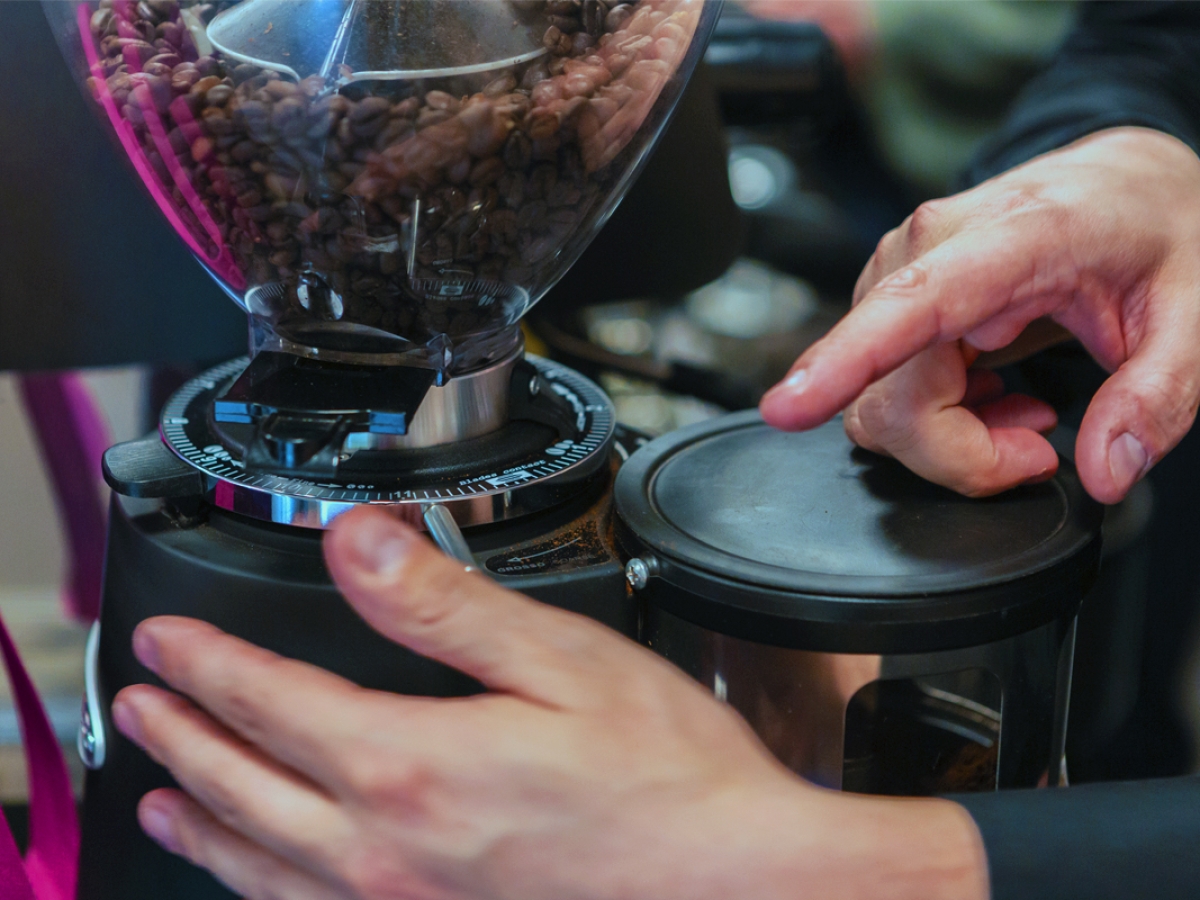
The importance of the grinder-doser - Adjustments and maintenance
Discover the importance of the grinder-doser: adjustments, mistakes to avoid, and maintenance tips to ensure a perfect espresso every time.
Read more
-
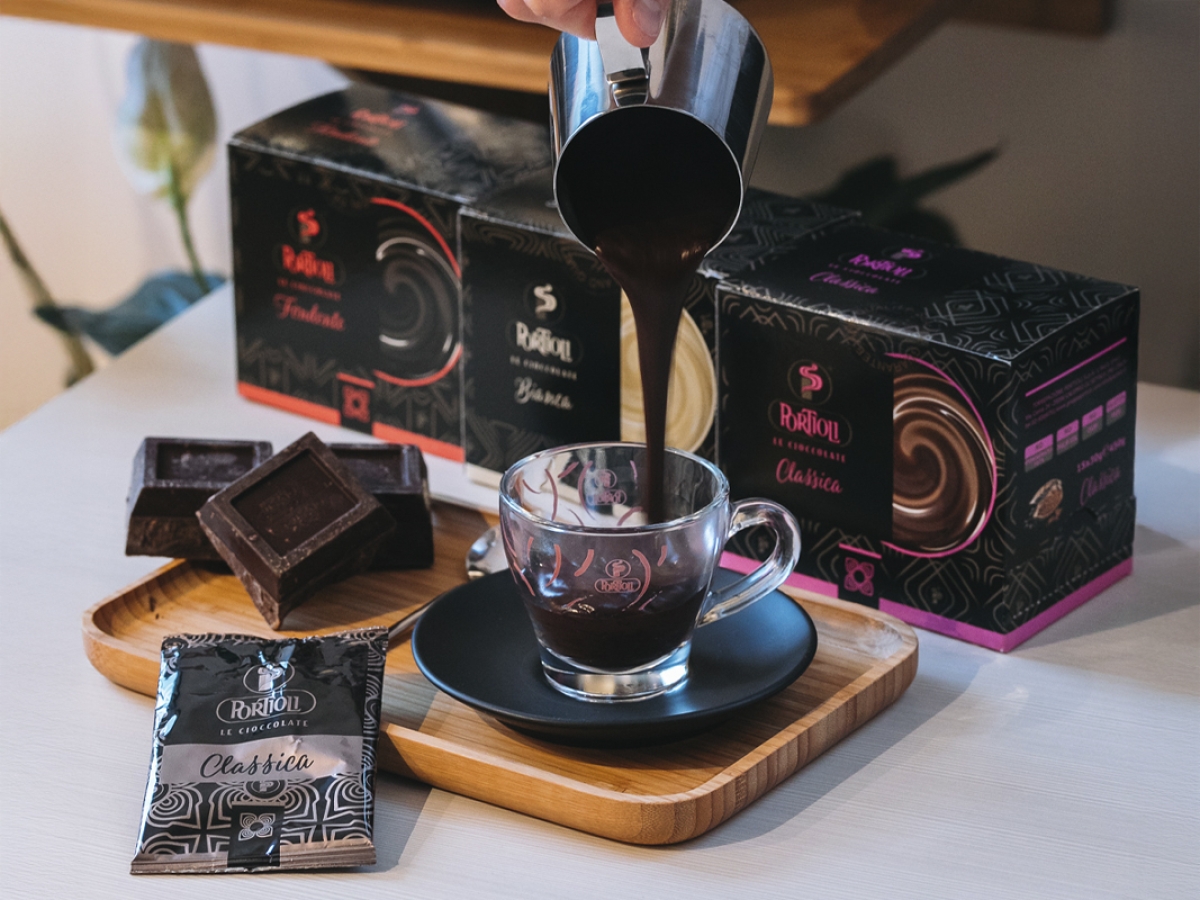
Christmas Special - Creating warm and indulgent holiday beverages
Discover Portioli Christmas hot drinks: creative recipes with coffee and chocolate, customizations, and ideas to impress your customers.
Read more
-
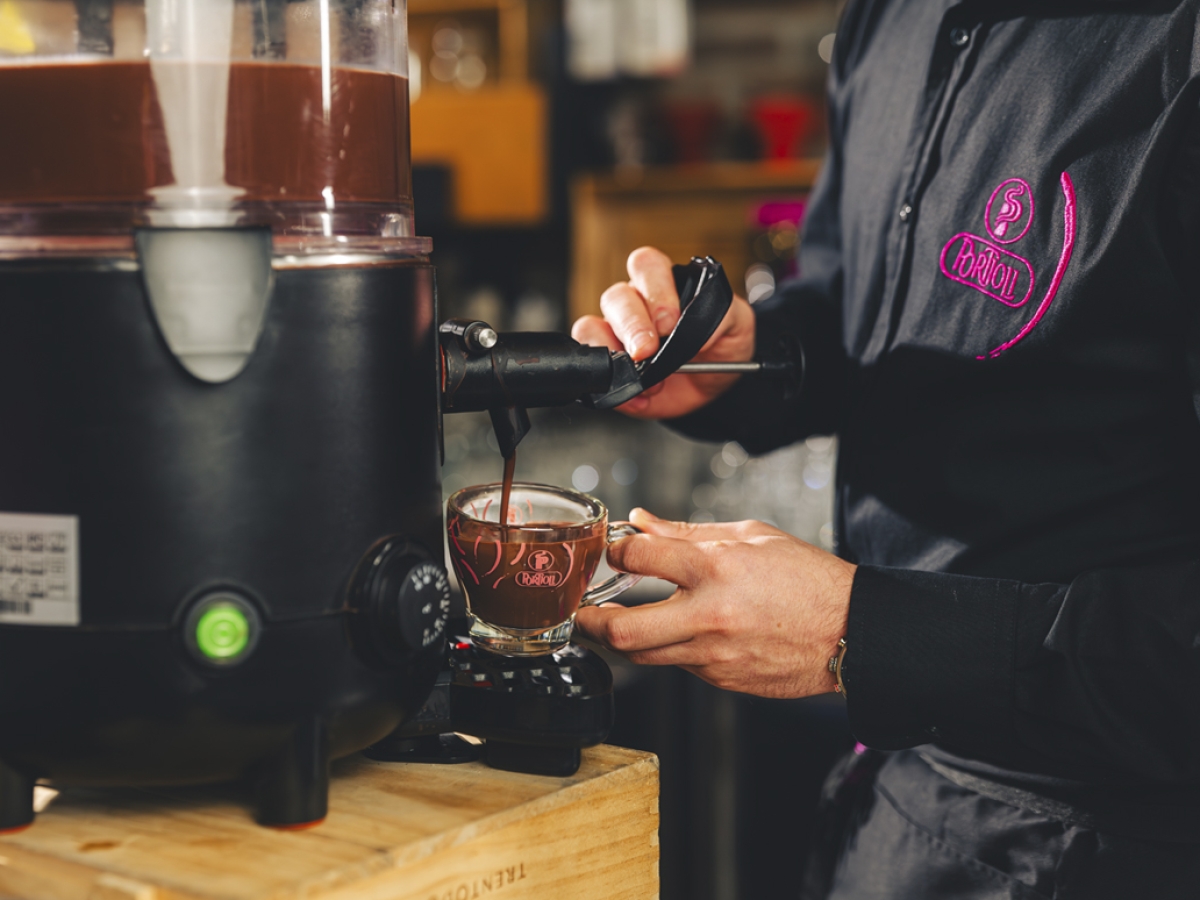
How to prepare hot drinks alternative to coffee
Discover the best hot drinks that can replace coffee: hot chocolate, matcha, chai latte, herbal teas, and spiced infusions to enrich your menu.
Read more
-

The evolution of out-of-home coffee consumption
Discover how out-of-home coffee consumption is changing: new trends, hybrid formats, and strategies to make your venue competitive and appealing.
Read more
-
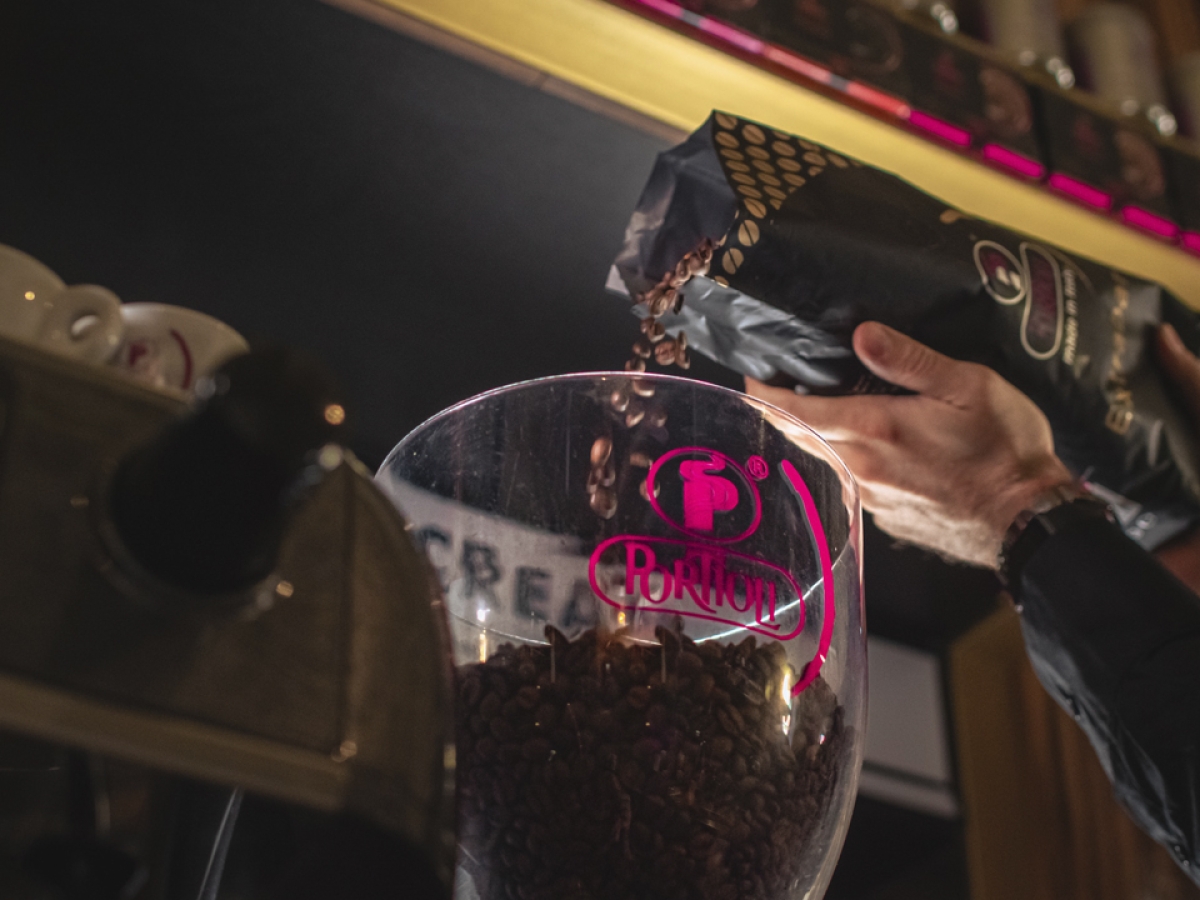
How to maintain consistent coffee quality at the counter
Discover how to maintain coffee quality at the counter with equipment control, blend freshness, and batch management. Standards and satisfied customers
Read more
-

Barista - Skills to develop in 2025
Discover the most in-demand barista skills in 2025: technique, hospitality, management, and continuous training to deliver quality service every day.
Read more
-
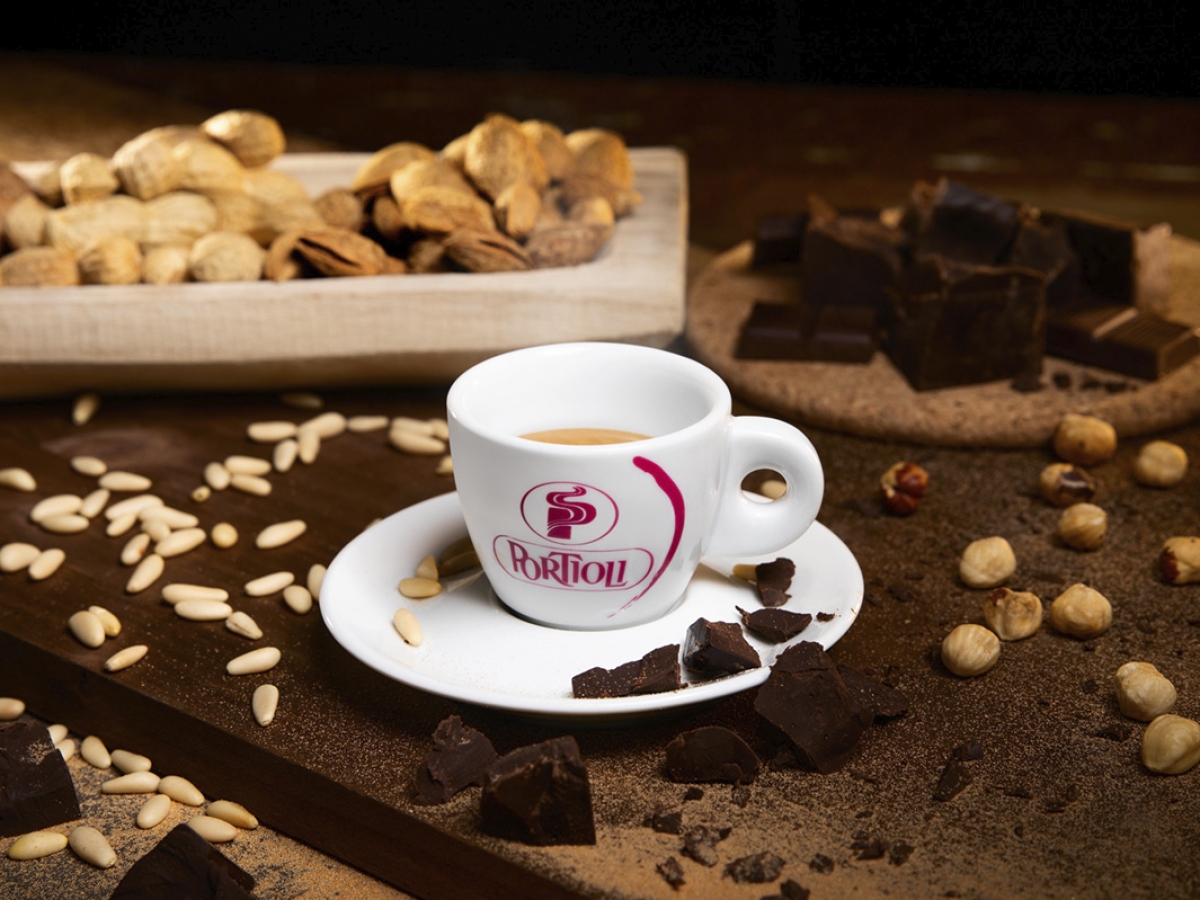
Coffee Pairing - Pairing coffee with sweets, fruit, and chocolate
Discover how to do coffee pairing with coffee, sweets, fruit, and chocolate. Creative ideas to enhance every blend and surprise your customers at the counter.
Read more
-
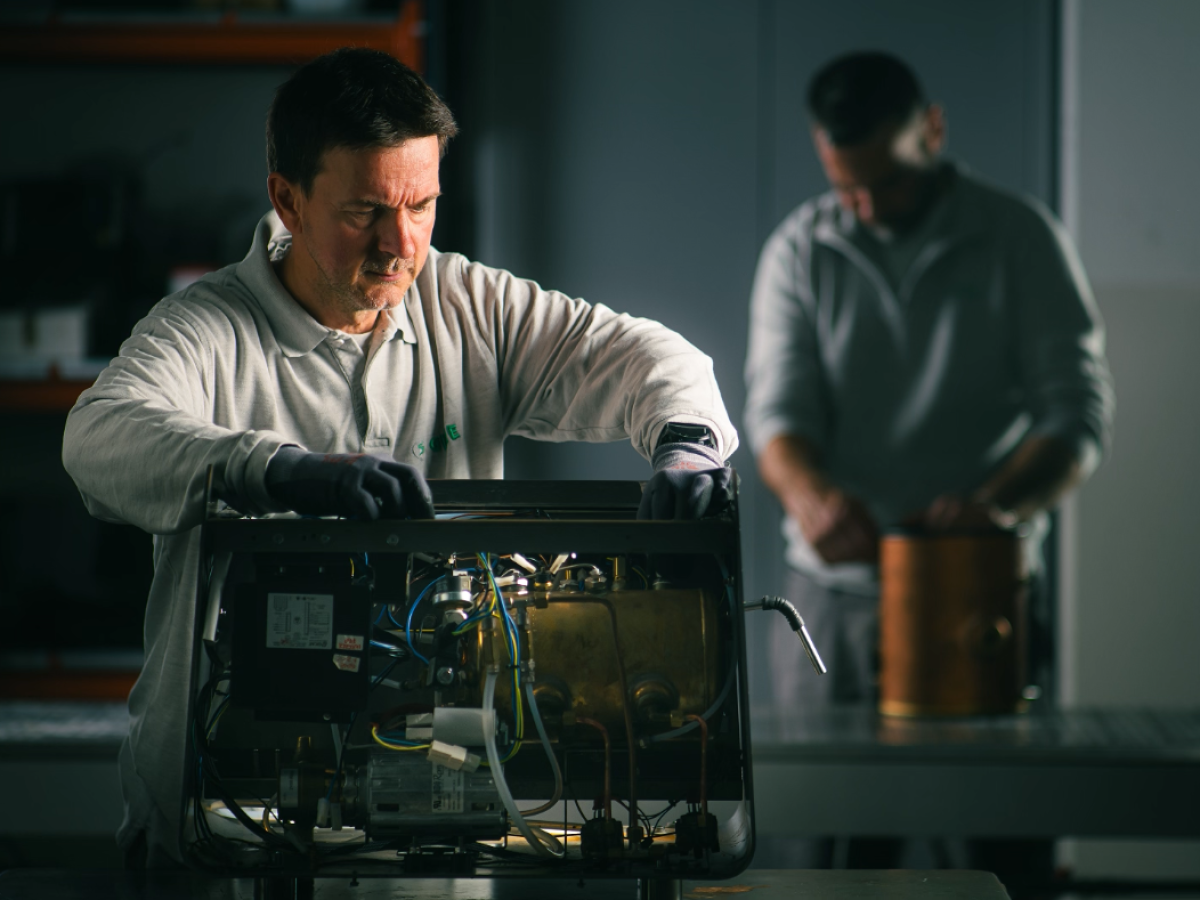
How to choose the perfect coffee machine for your café
Discover how to choose the perfect coffee machine for your café: capacity, size, support, and quality for an always impeccable espresso.
Read more
-
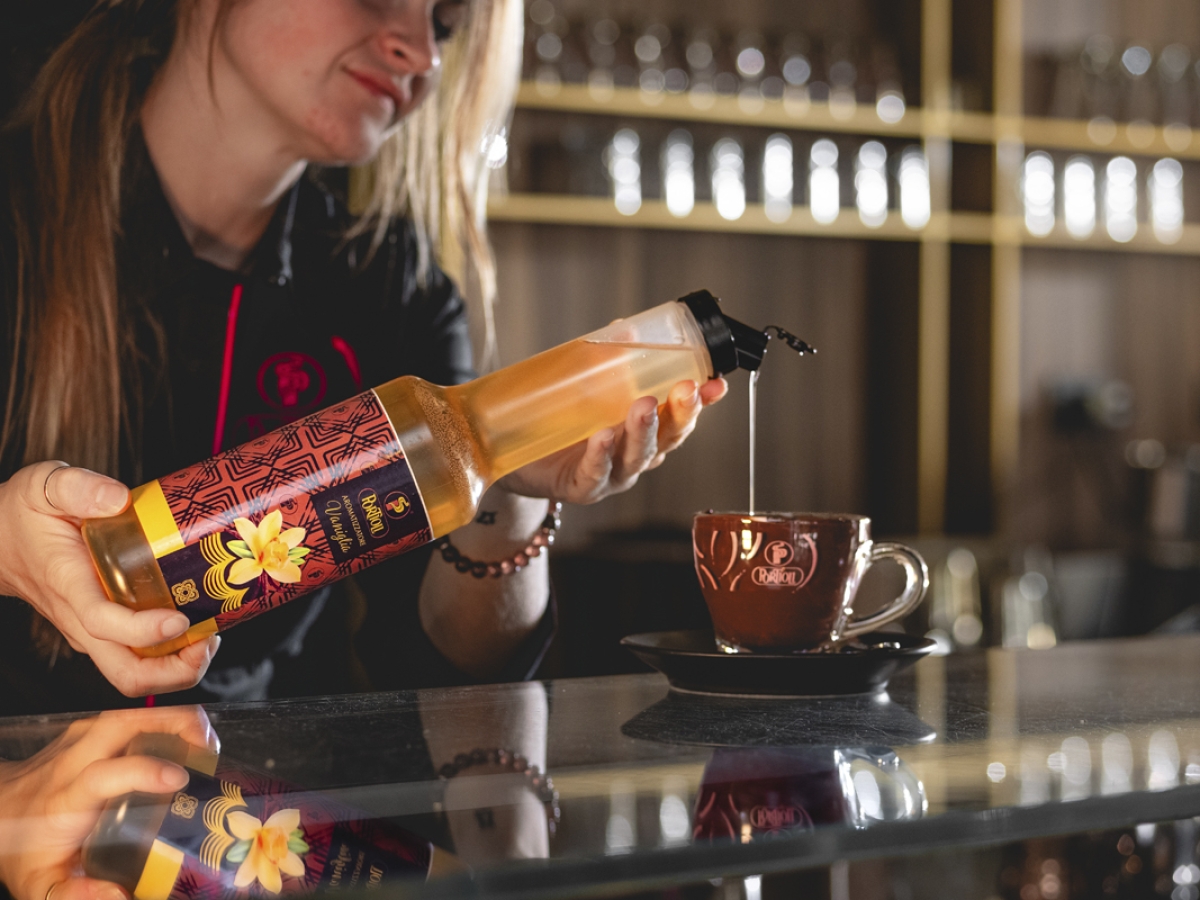
How to create a hot drinks menu for autumn
Discover how to create a hot drinks menu for cafés with chocolate, herbal teas, and flavourings. Seasonal ideas to surprise and retain your customers.
Read more
-
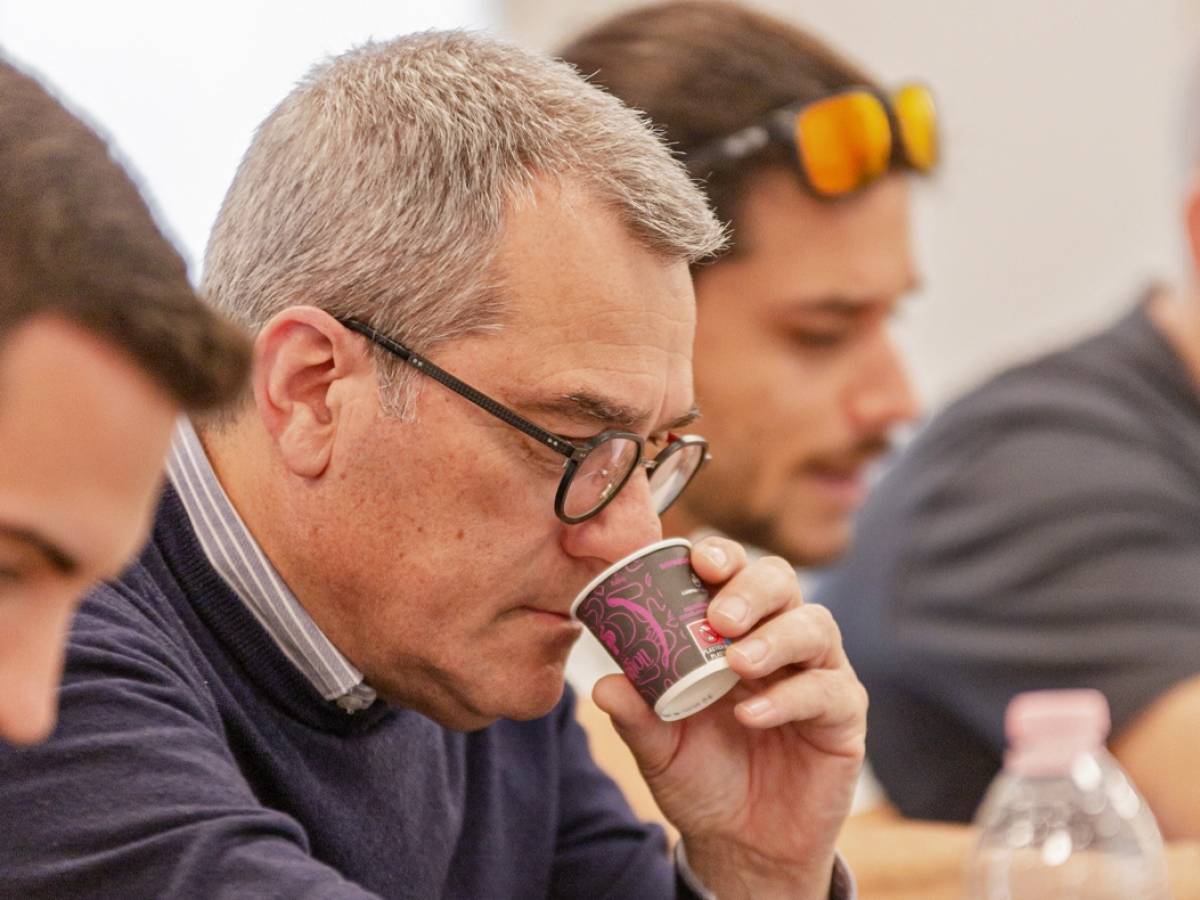
Coffee tasting - How to train your taste and smell
Discover the secrets of coffee tasting: techniques, aromas, and courses to refine your taste and smell, turning a cup into a unique experience.
Read more
-

Digital scale vs doser - Choosing the right tool
Digital scale or doser? Discover the advantages and differences to choose the right tool for your café and ensure quality and consistency at the counter.
Read more
-

Blend vs Single Origin - How coffee in the cup really changes
What’s the difference between blend and single origin coffee? Explore taste, usage, and origin to choose the perfect coffee for your style, brewing method, and every occasion.
Read more
-
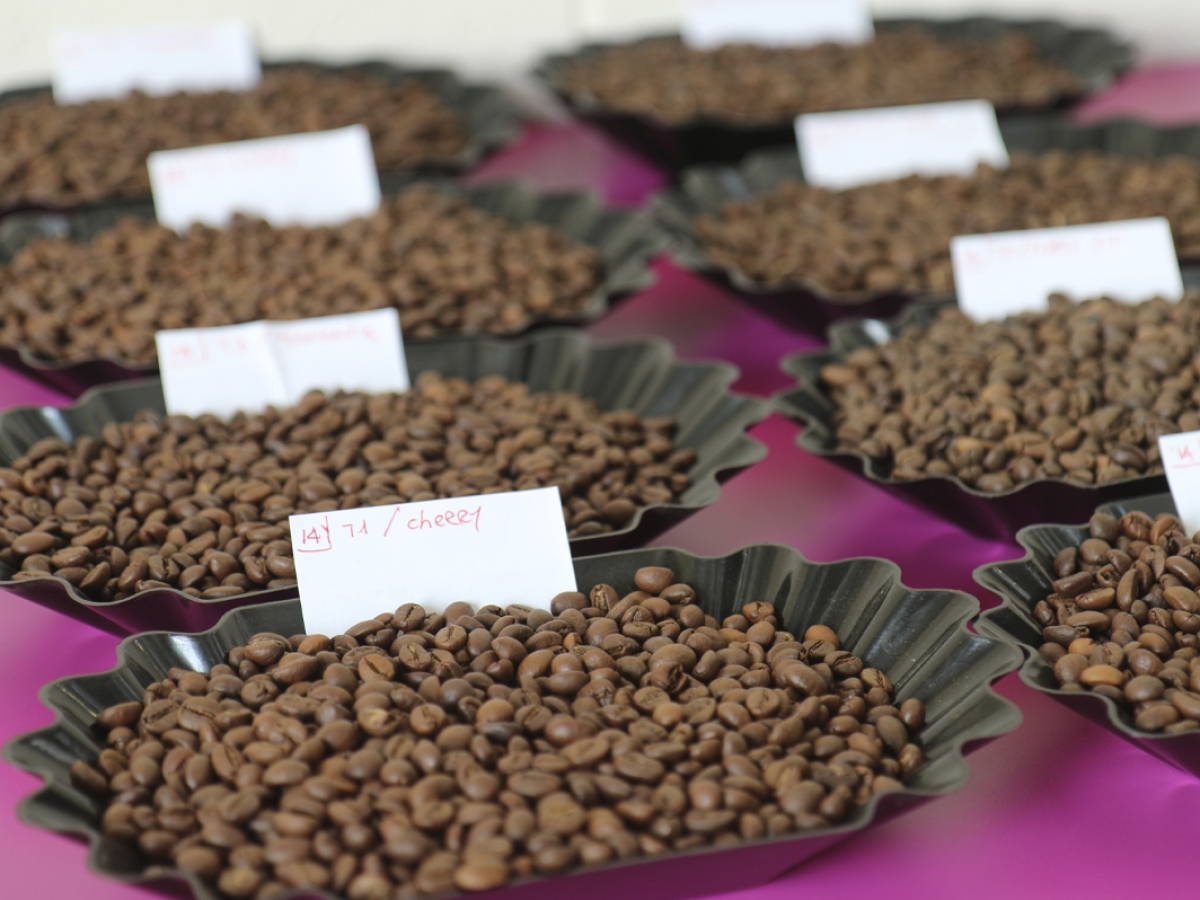
Italian roast vs international roast - A comparison of tastes and cultures
Discover the differences between Italian and international roasting: flavour profiles, techniques, and how to choose the right one for your coffee audience.
Read more
-

Coffee smoothies and energizing summer drinks
Discover how to make the perfect coffee smoothie: refreshing recipes, healthy ingredients, and ideas to revamp your summer menu with flavour and creativity.
Read more
-
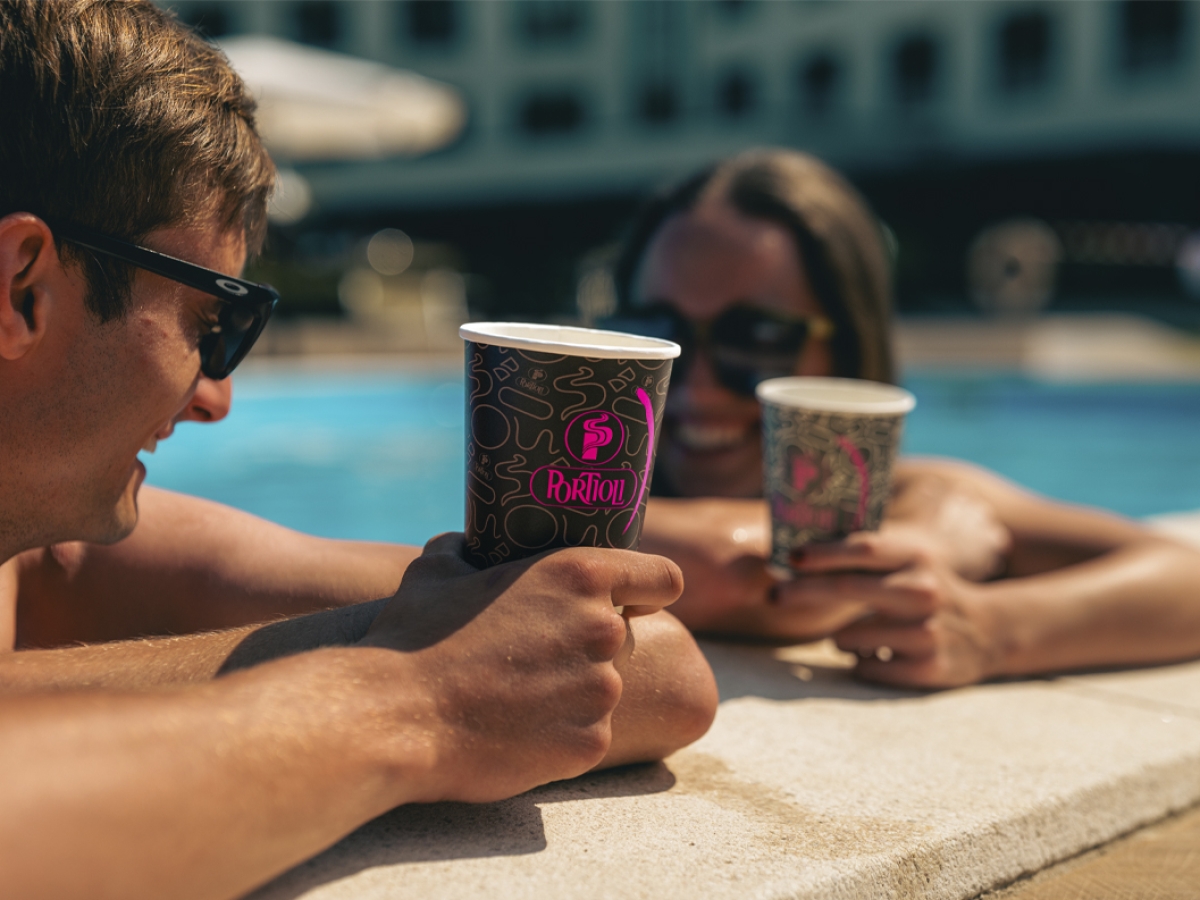
Summer merchandising ideas for coffee shops and cafés
Discover how to refresh your summer merchandising for coffee shops: seasonal packaging, creative displays, and promotions to share on social media too.
Read more
-
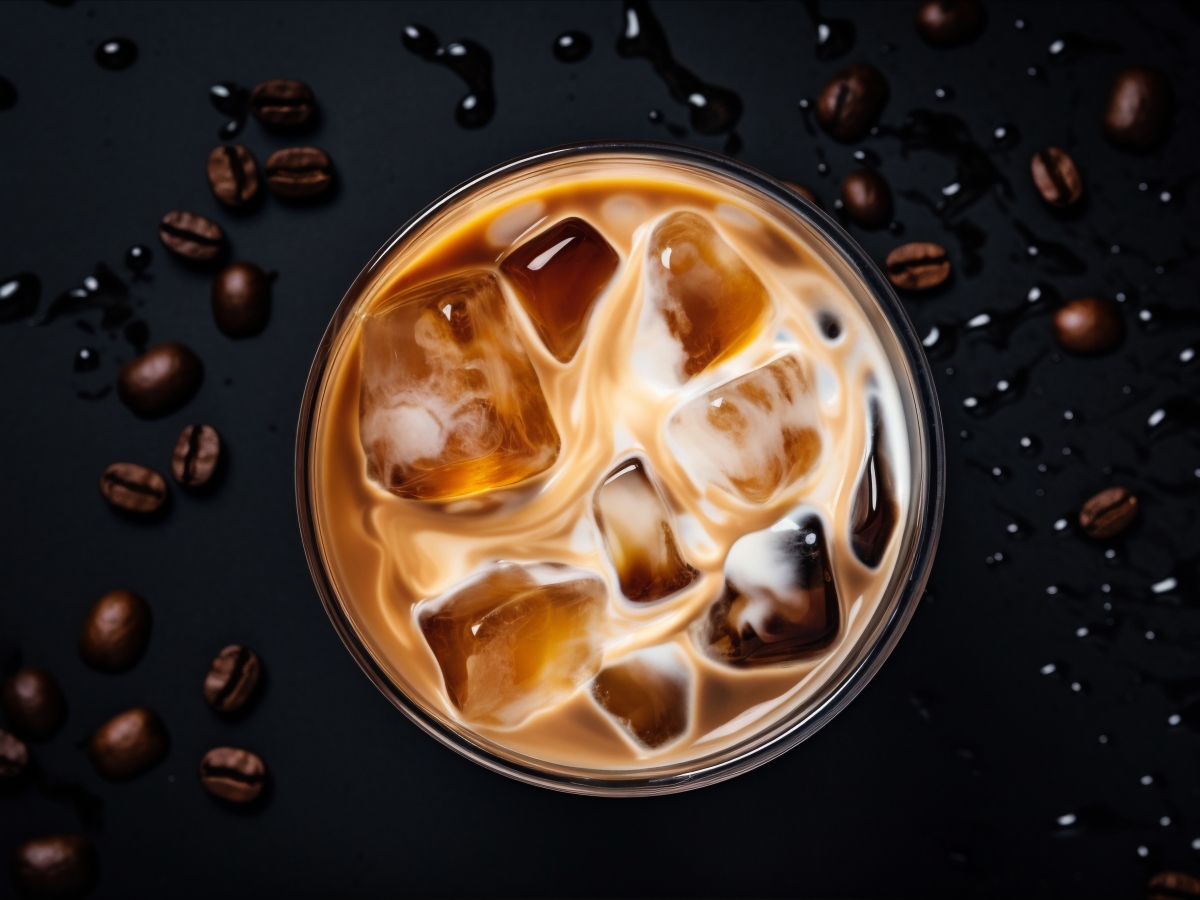
Perfect iced coffee - Techniques and summer proposals
Discover how to prepare the perfect iced coffee: from cold brew to shakerato, recipes, equipment, and creative tips for your espresso-flavoured summer.
Read more
-
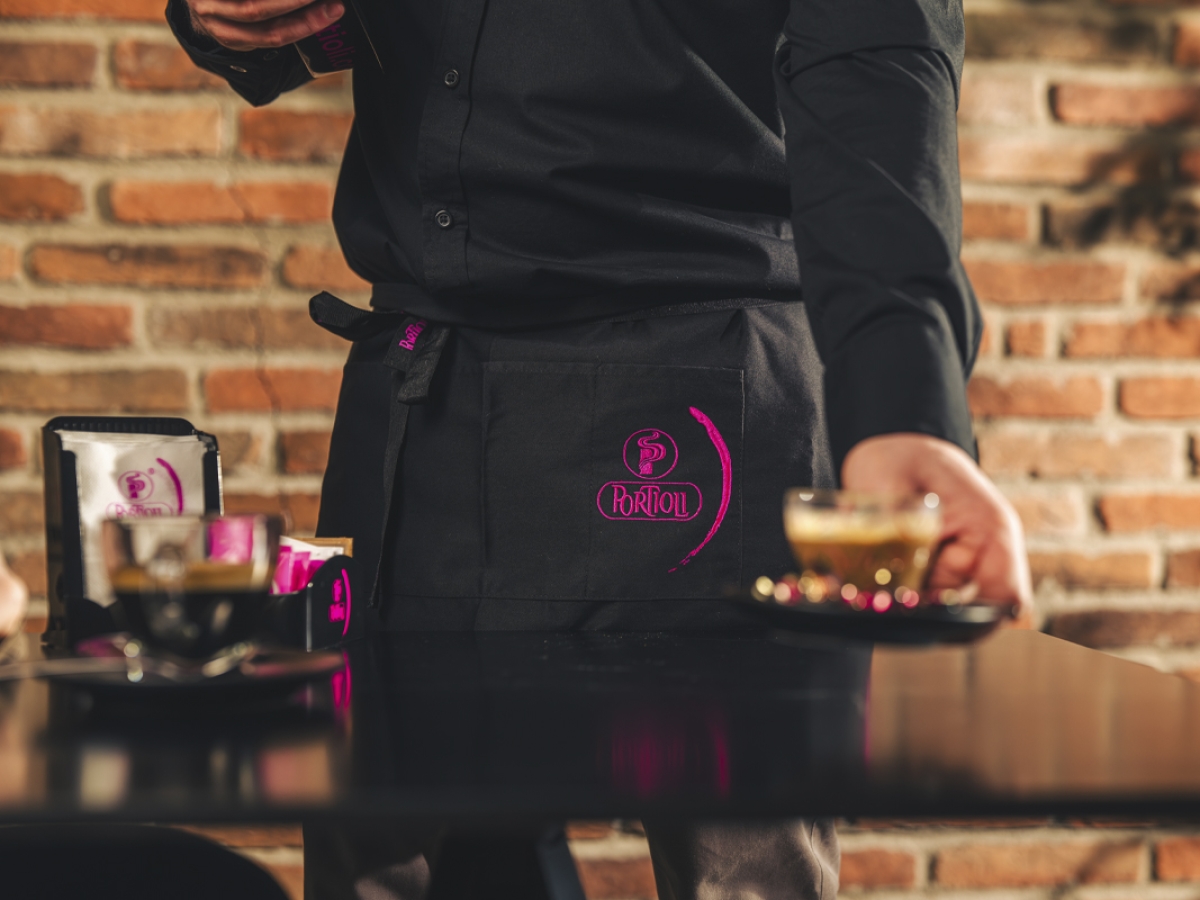
Barista courses in Milan - Which course should you choose?
Discover the best barista courses in Milan: basic or advanced, theoretical and practical, to become a coffee professional with Accademia Portioli.
Read more
-
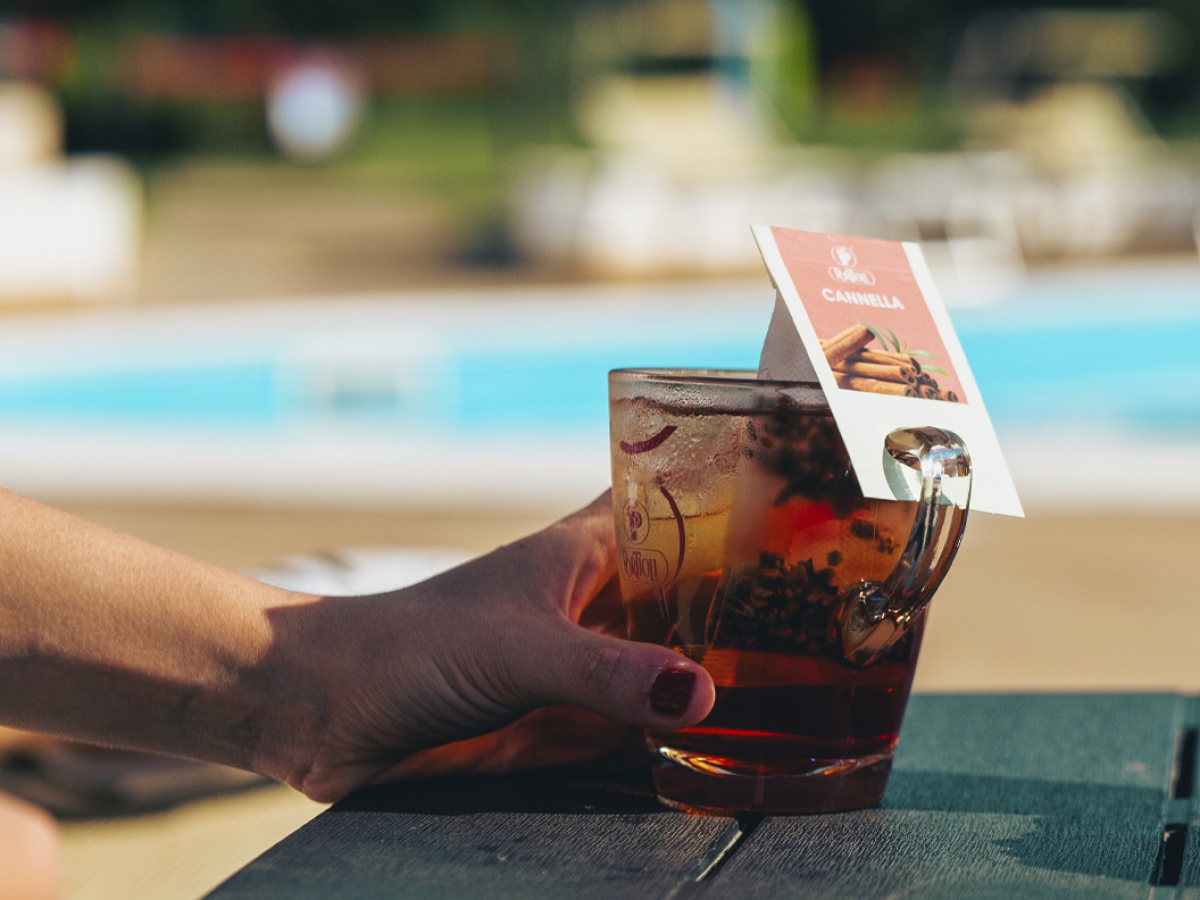
Summer alternative to coffee: refreshing herbal teas and infusions offer something for every taste
Discover the best summer drinks as an alternative to coffee: natural, refreshing and tasty herbal teas and infusions for a light and healthy summer.
Read more
-
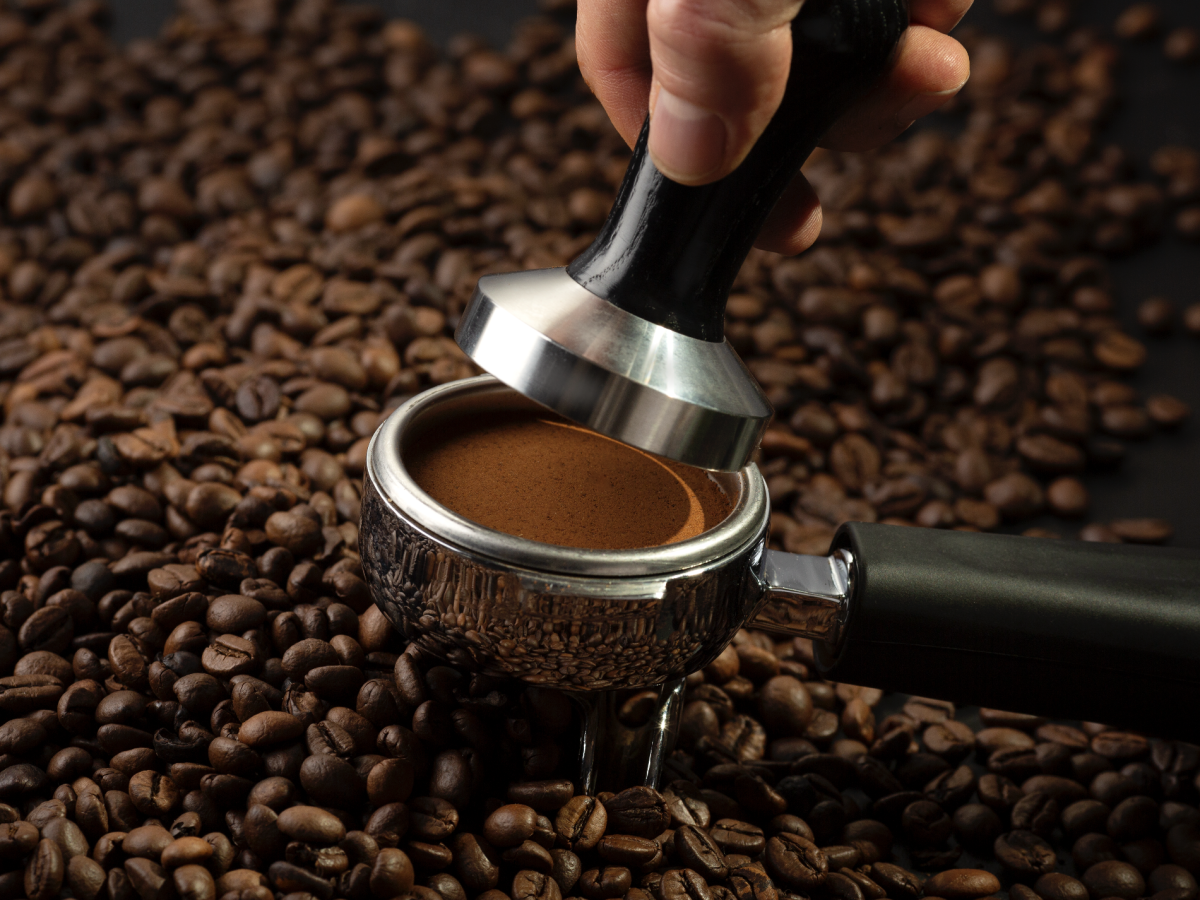
Why coffee has a bitter aftertaste
Discover what causes the bitter aftertaste of coffee, the most common mistakes in preparation and how to obtain a balanced and pleasant cup.
Read more
-
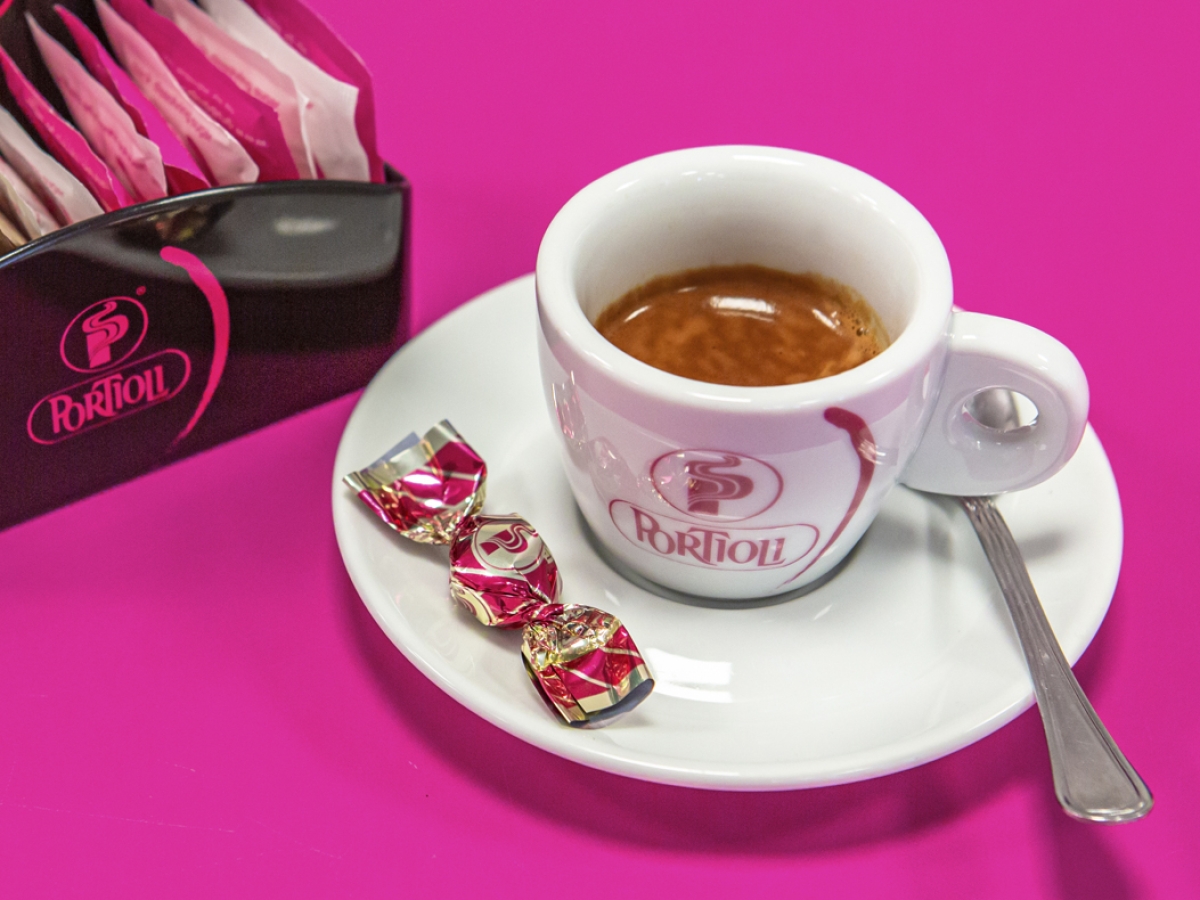
Coffee cream: what it depends on and how to improve it
Find out what coffee cream depends on and how to improve it with correct techniques, suitable blends and professional equipment for a flawless espresso.
Read more
-
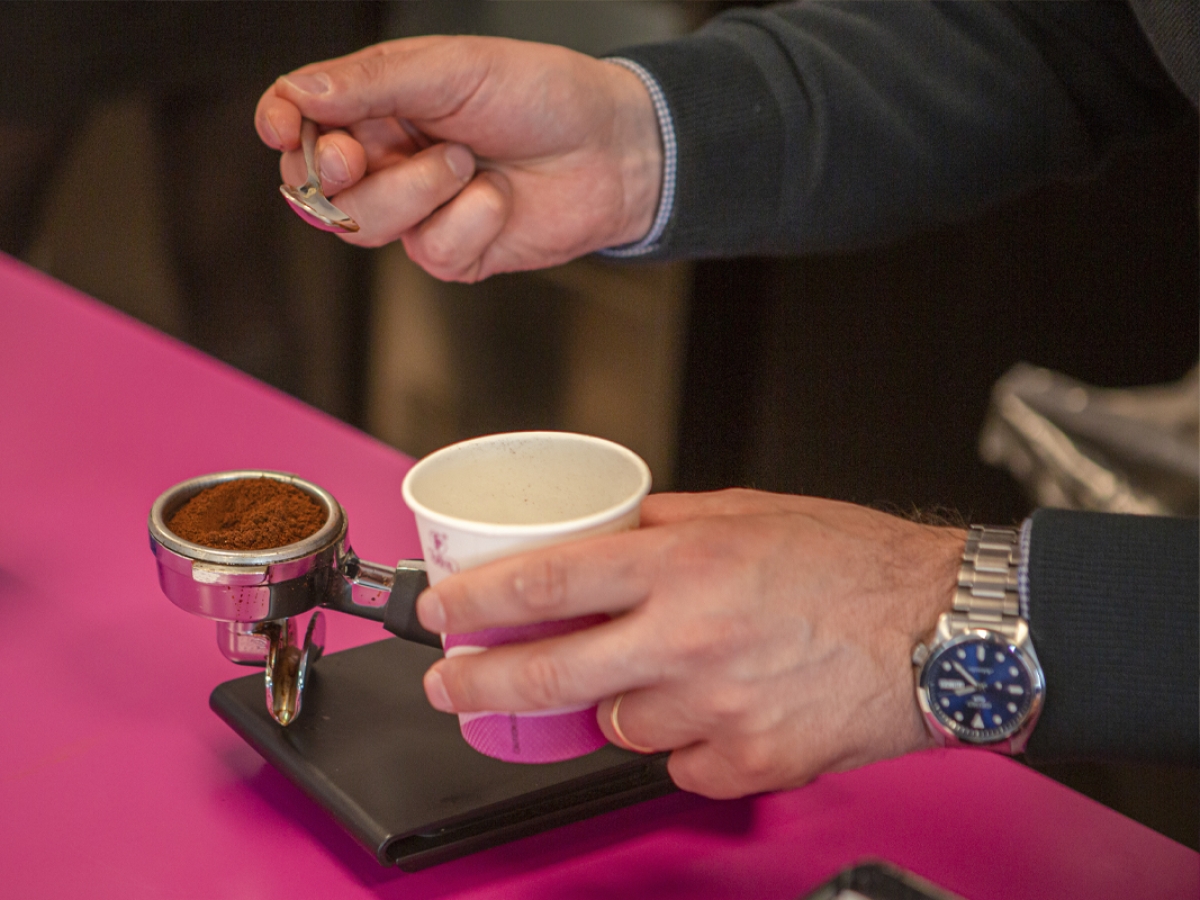
How many grams of coffee for a perfect espresso?
Find out how many grams of coffee for an espresso to use, how the dosage affects the aroma, and which tools help to achieve consistent results.
Read more
-
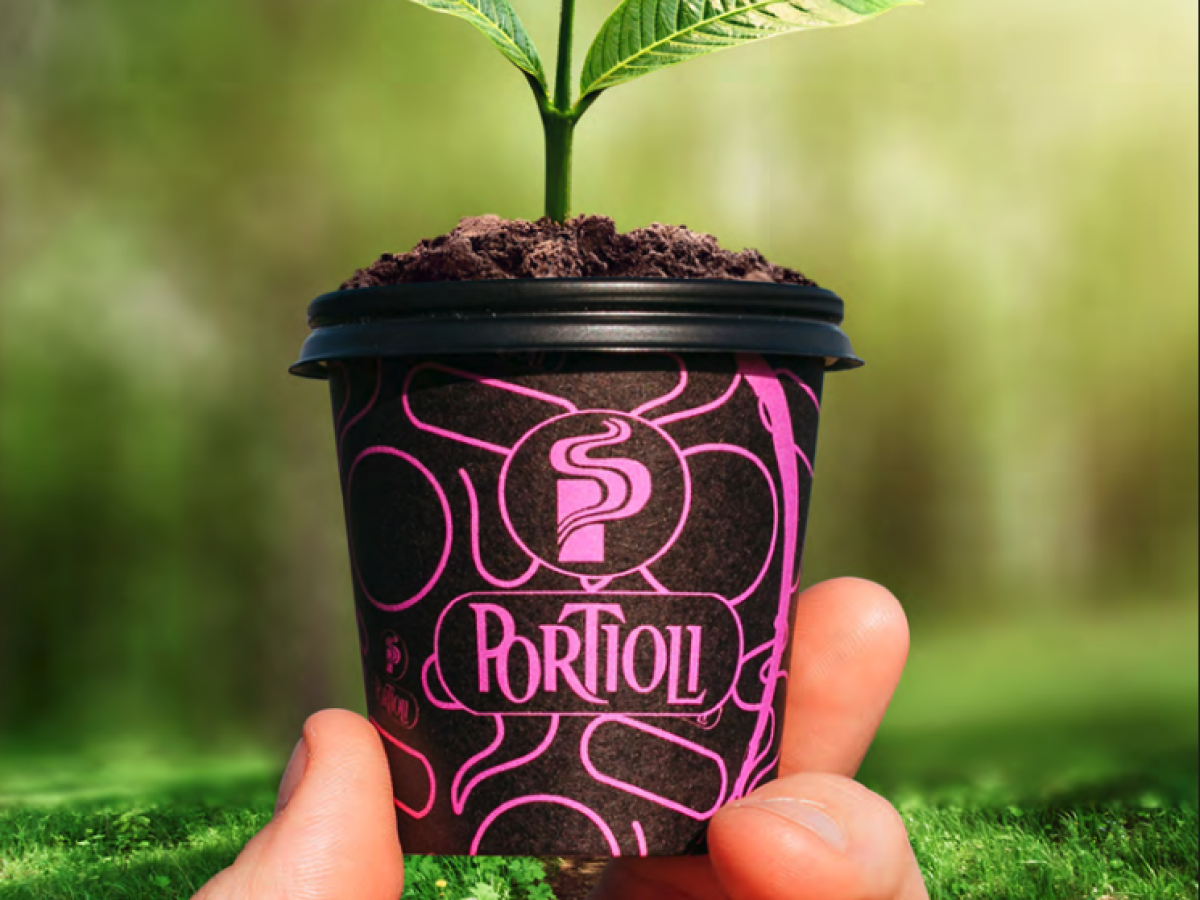
Sustainable coffee - What it really means and why choose it today
Find out what sustainable coffee means and why choosing environmentally friendly blends, packaging and production processes makes all the difference in your café.
Read more
-
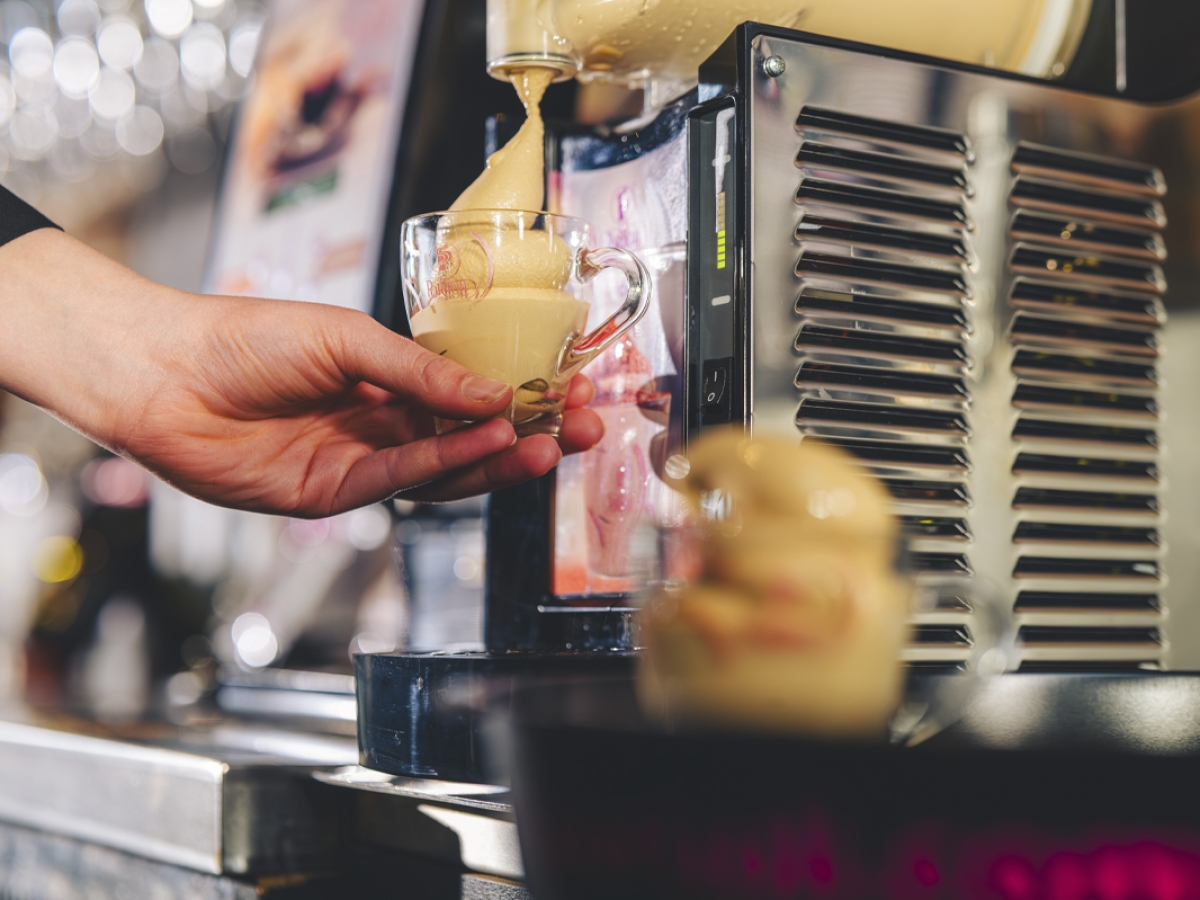
Velvet coffee creamer - The ultimate velvet-smooth and refreshing summer break
Discover Portioli Velvet coffee cream: ideal for summer, ready to use and perfect to serve as a cold dessert or a mouth-watering break in your café.
Read more
-
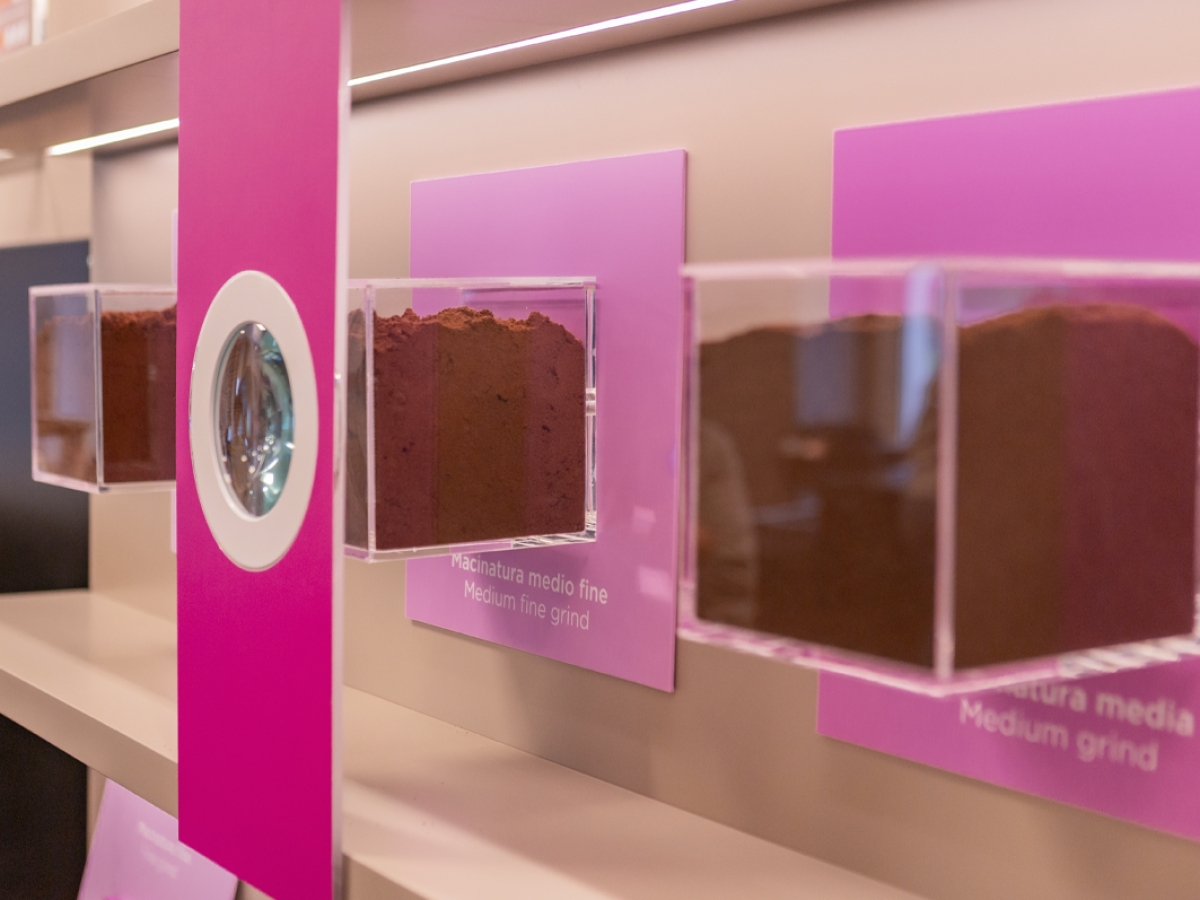
Perfect grind for coffee
Learn all about coffee bar grind: how to choose the right grain size, avoid common mistakes and improve the quality of your espresso.
Read more
-
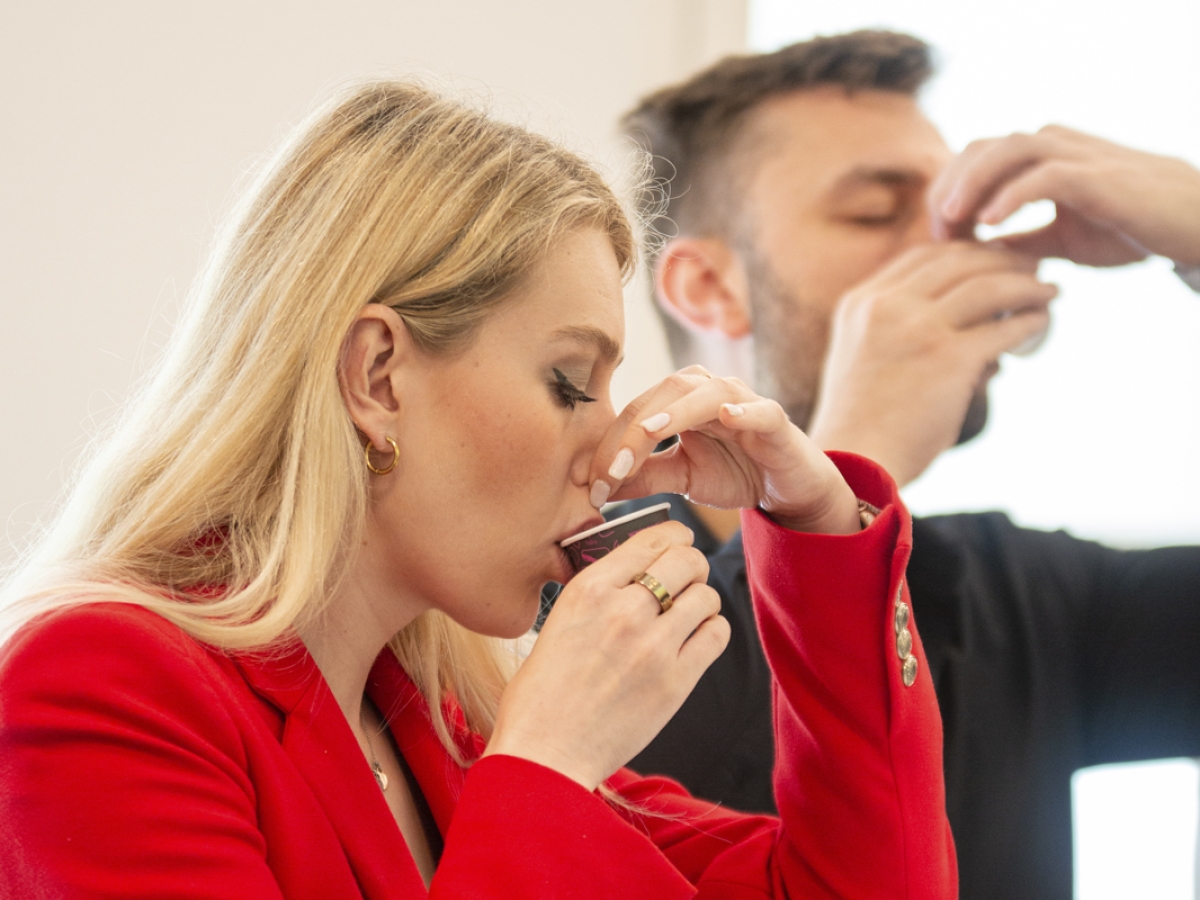
Professional tasting techniques - How to refine sensory analysis
Discover the techniques and secrets of coffee sensory analysis: from scents to aftertastes, learn to distinguish nuances and aromas for a tasting experience.
Read more
-
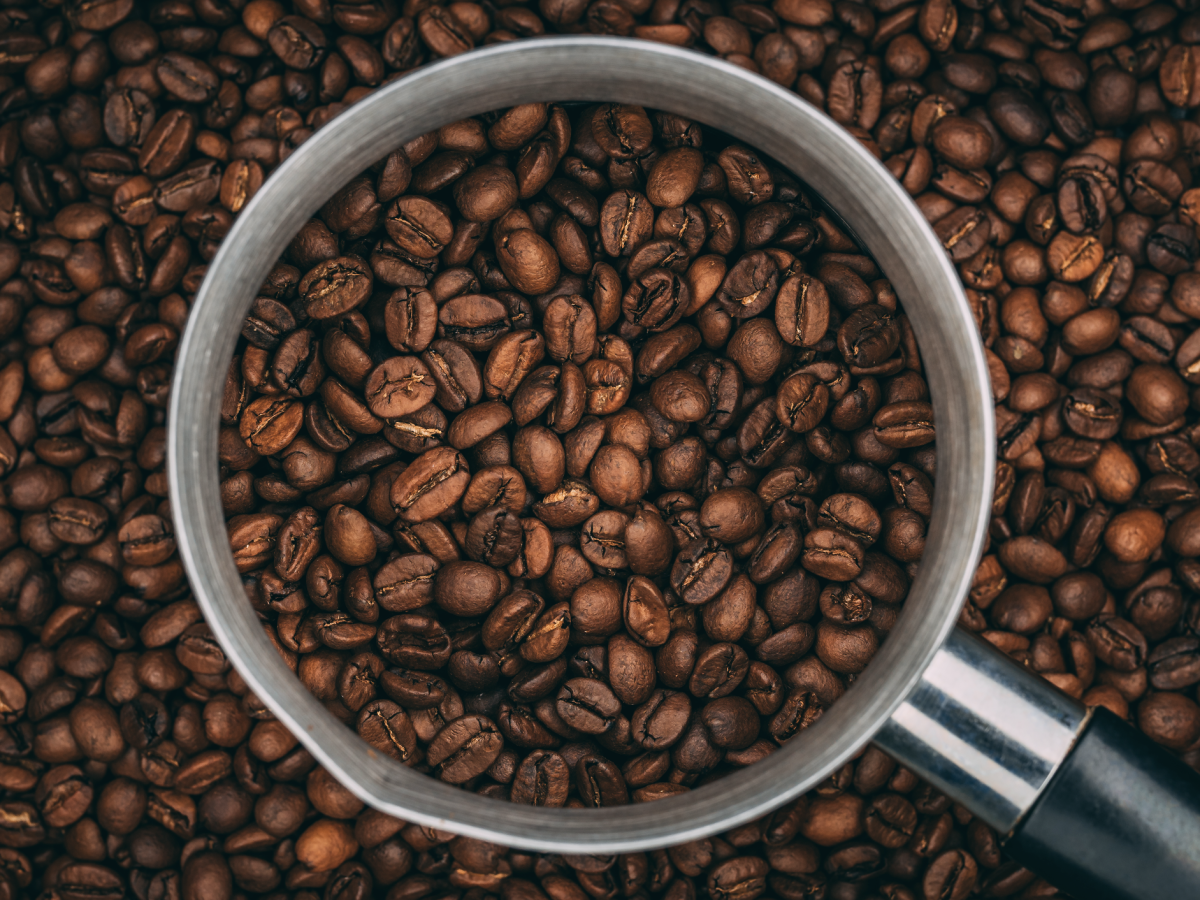
The most appreciated blends at the moment - Sensory analysis and trends
Discover how coffee blends are created and which are the most popular blends at the moment, including sensory analysis, trends, and new flavor perspectives.
Read more
-
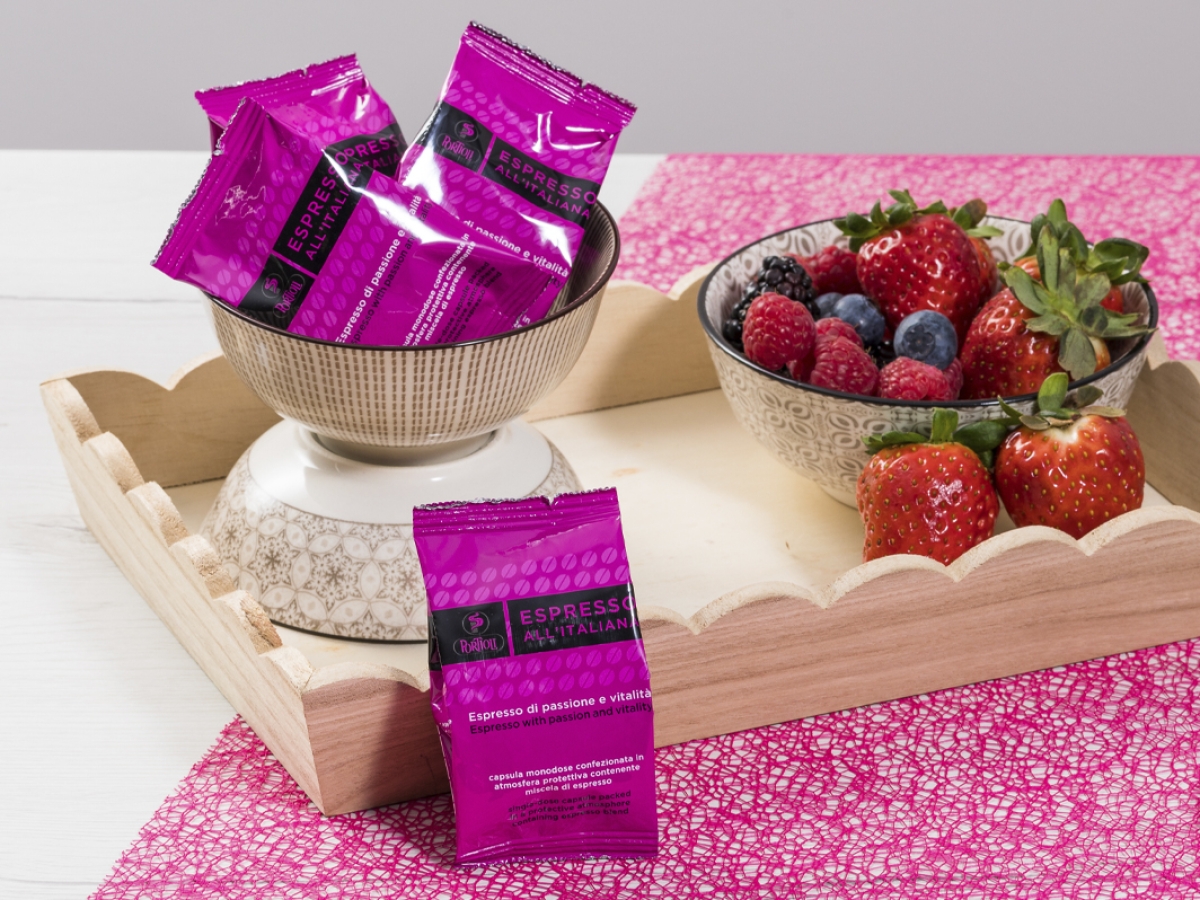
Compatible coffee capsules for bars - Convenient and quality alternatives
Discover how compatible coffee capsules for bars offer taste, savings, and convenience. Try quality blends for a perfect espresso.
Read more
-
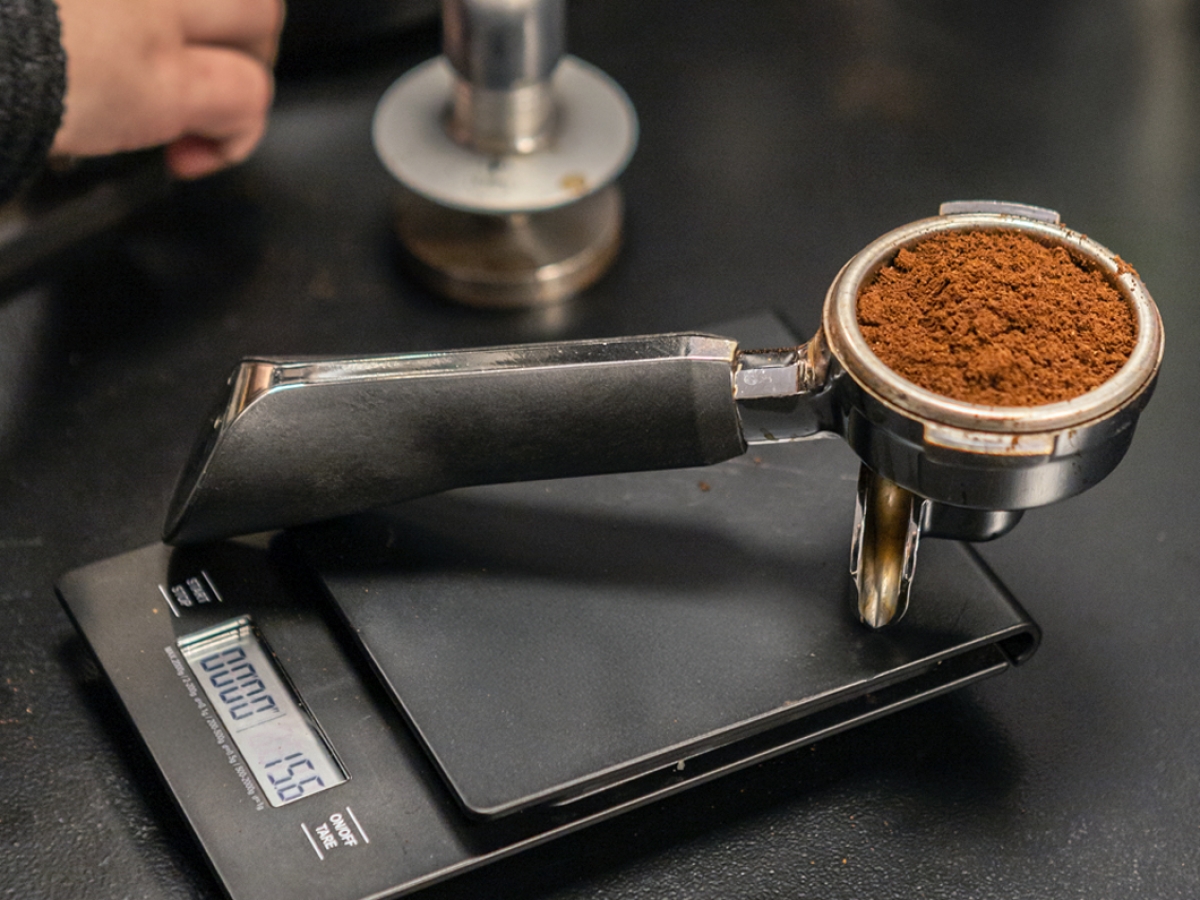
Measuring spoons and coffee dispensers - Precision and professionalism behind the counter
Discover the best coffee dispensers and ensure a perfect espresso. Choose professional tools and learn how to keep them in top condition with our tips.
Read more
-
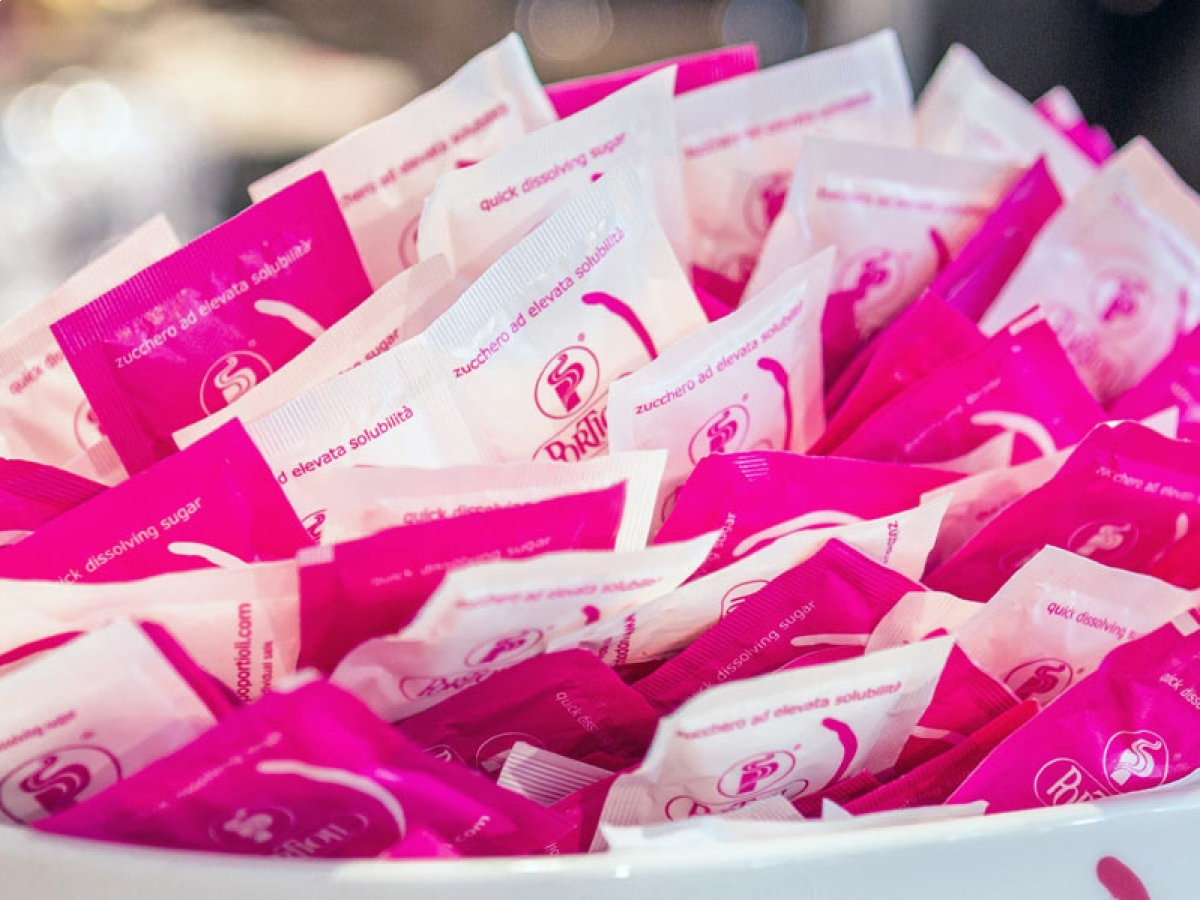
Alternative sugars and natural sweeteners - New solutions for discerning customers
Discover the best natural sweeteners: unrefined sugars, honey, stevia and agave to satisfy your customers with taste and well-being.
Read more
-
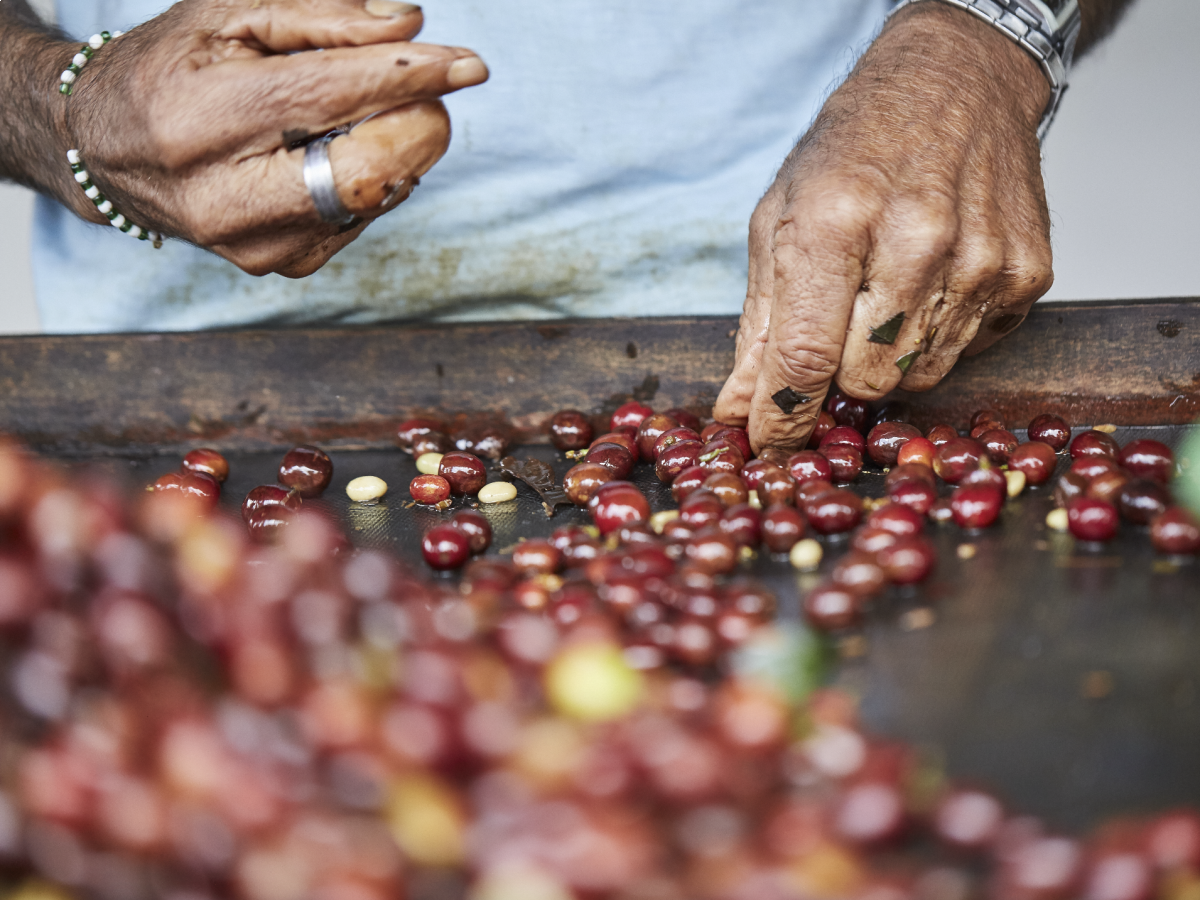
Single-origin coffee for bars - When and why you should offer it to your customers
Offer single-origin coffee for bars: exclusive quality and unique flavors to surprise your customers. Discover the perfect blends and the advantages for your bar.
Read more
-
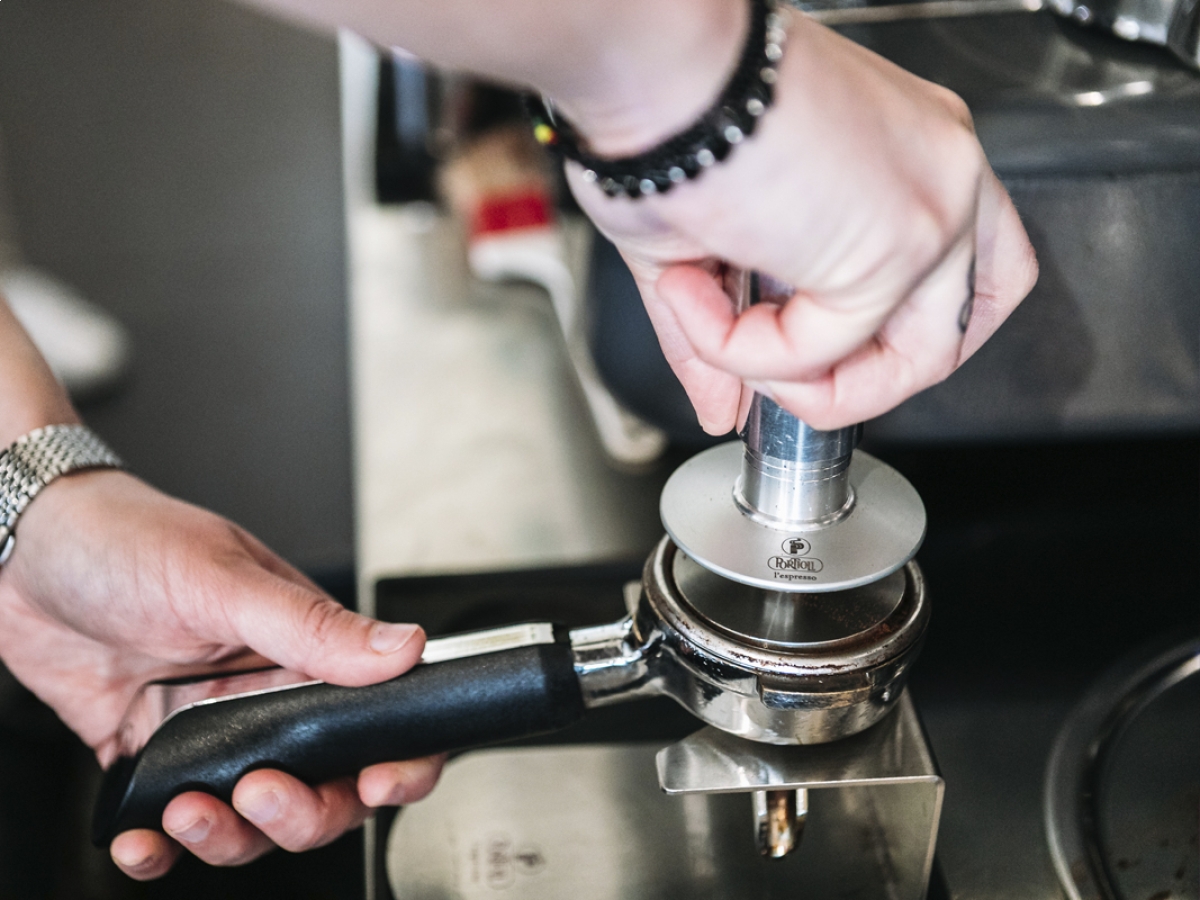
Coffee machine accessories - Optimize your service with the right tools
Discover how coffee machine accessories improve every extraction. Select the right tools and maintain them regularly for consistent, flawless results.
Read more
-
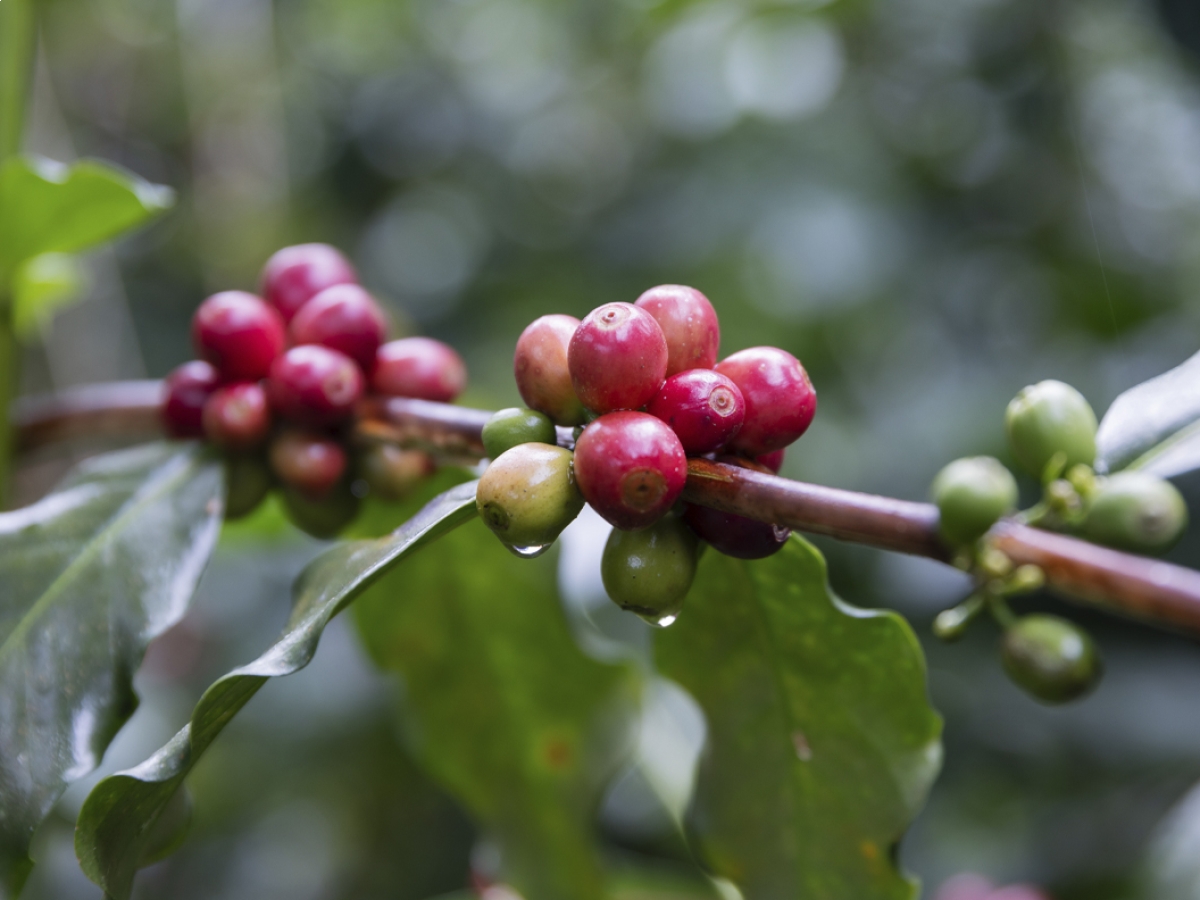
Coffee and microclimate - Understanding how the environment affects the bean
Coffee and microclimate: discover how altitude, humidity and temperature influence the flavour of the bean, for a unique taste, rich in nuances and intensity.
Read more
-
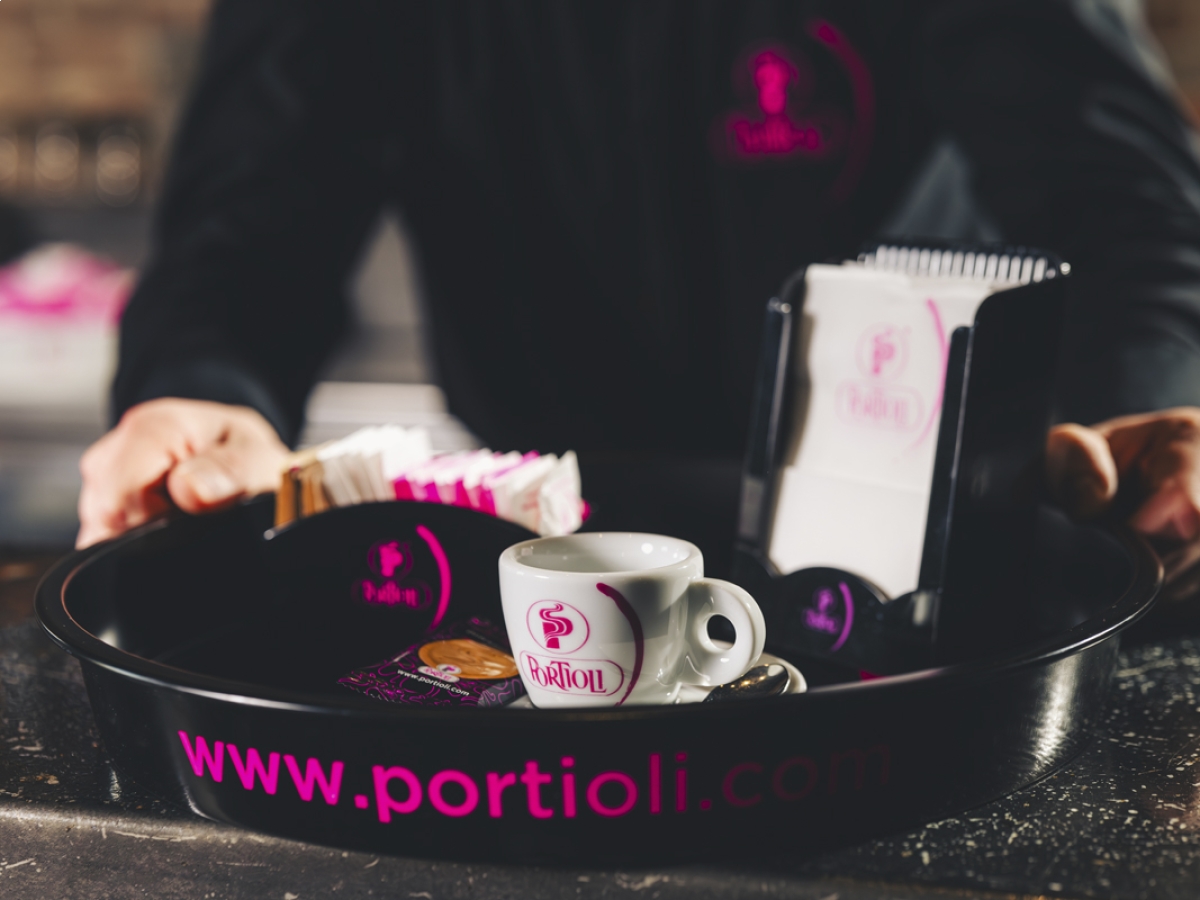
Barista Supplies - Essentials for High-Quality Service
The perfect solution for professional bartenders: explore top-tier bartending supplies, equipment, accessories, and raw materials for an exceptional service
Read more
-
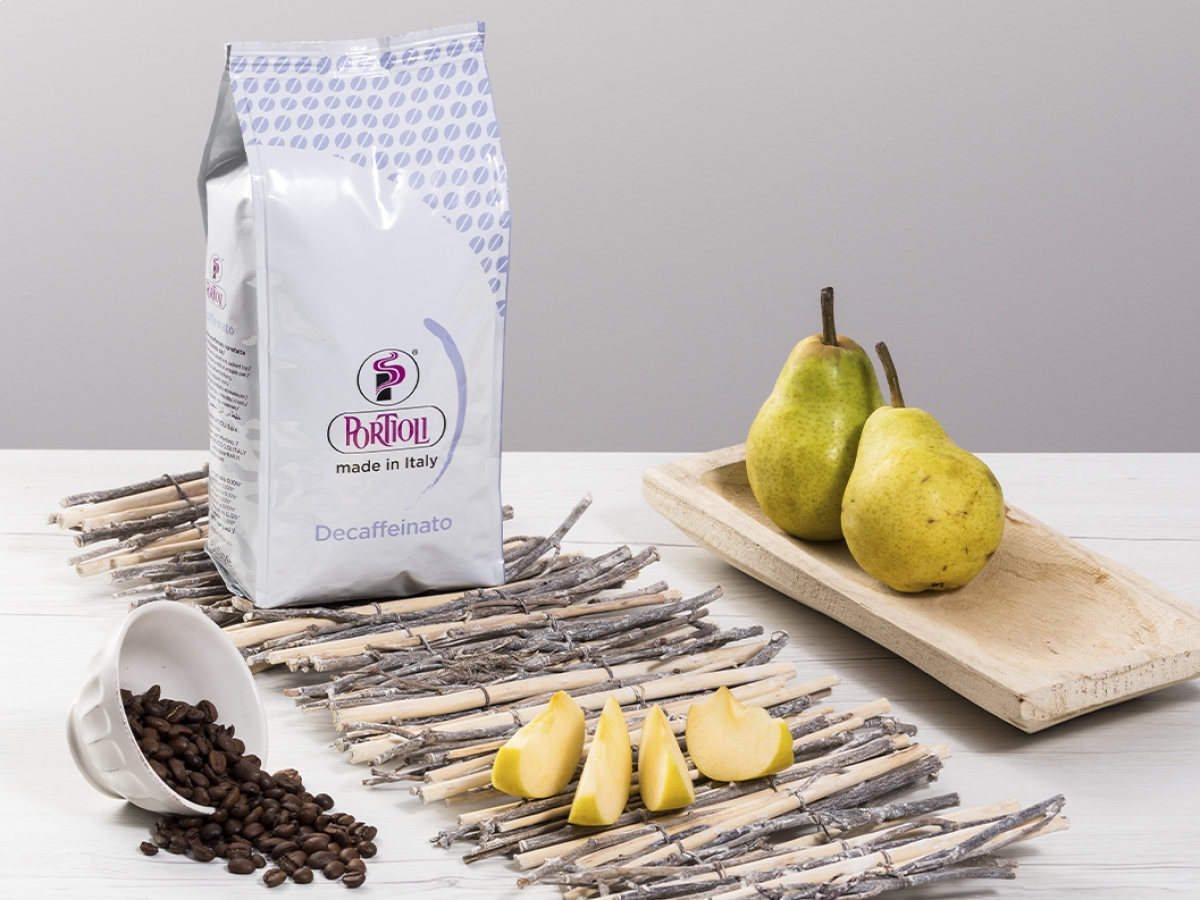
Decaffeinated coffee for bars - How to choose the perfect blend for your customers
Discover how to choose the best decaffeinated coffee for bars. A guide to offering your customers a quality espresso with an authentic taste.
Read more
-
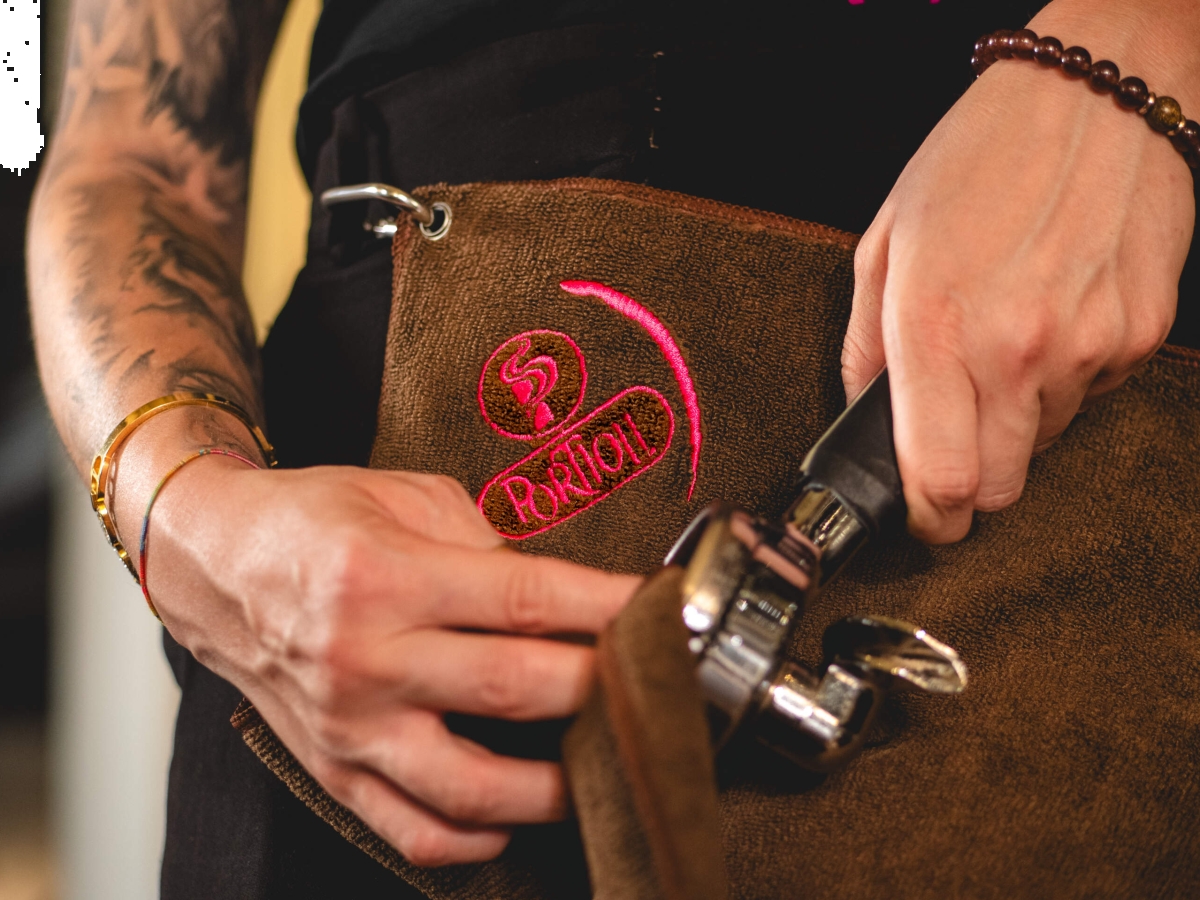
Accessories for professional baristas - The must-have for an impeccable service
Must-have accessories for professional baristas for an impeccable service. Give style and quality to your bar with essential tools.
Read more
-

The role of coffee in the hospitality industry for the customer experience
Discover how coffee in hospitality enriches the customer experience, from quality to sustainable value, creating welcome moments and loyalty.
Read more
-
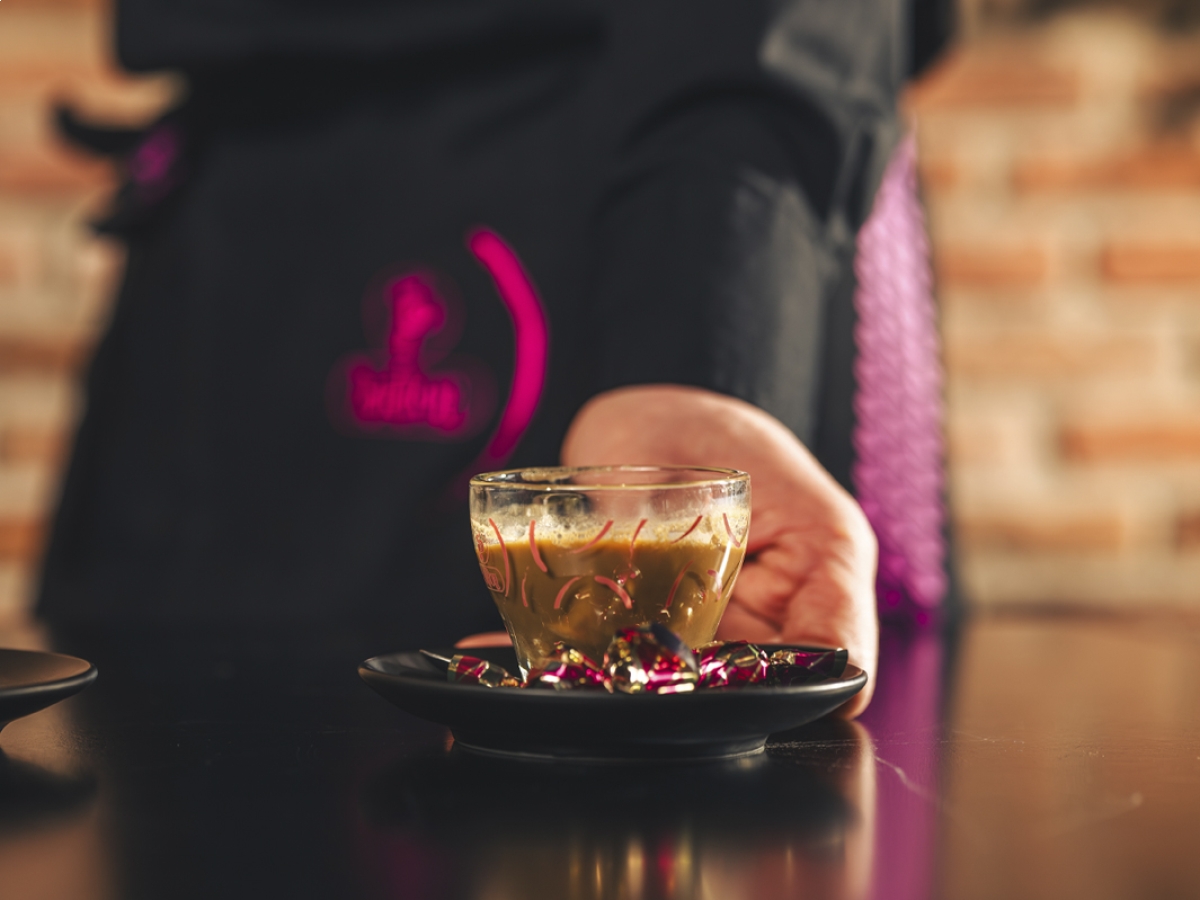
Ginseng coffee - Energy and taste in a unique break
Try Portioli GMO- and gluten-free ginseng coffee for a break full of flavor and natural energy every day. Portioli
Read more
-
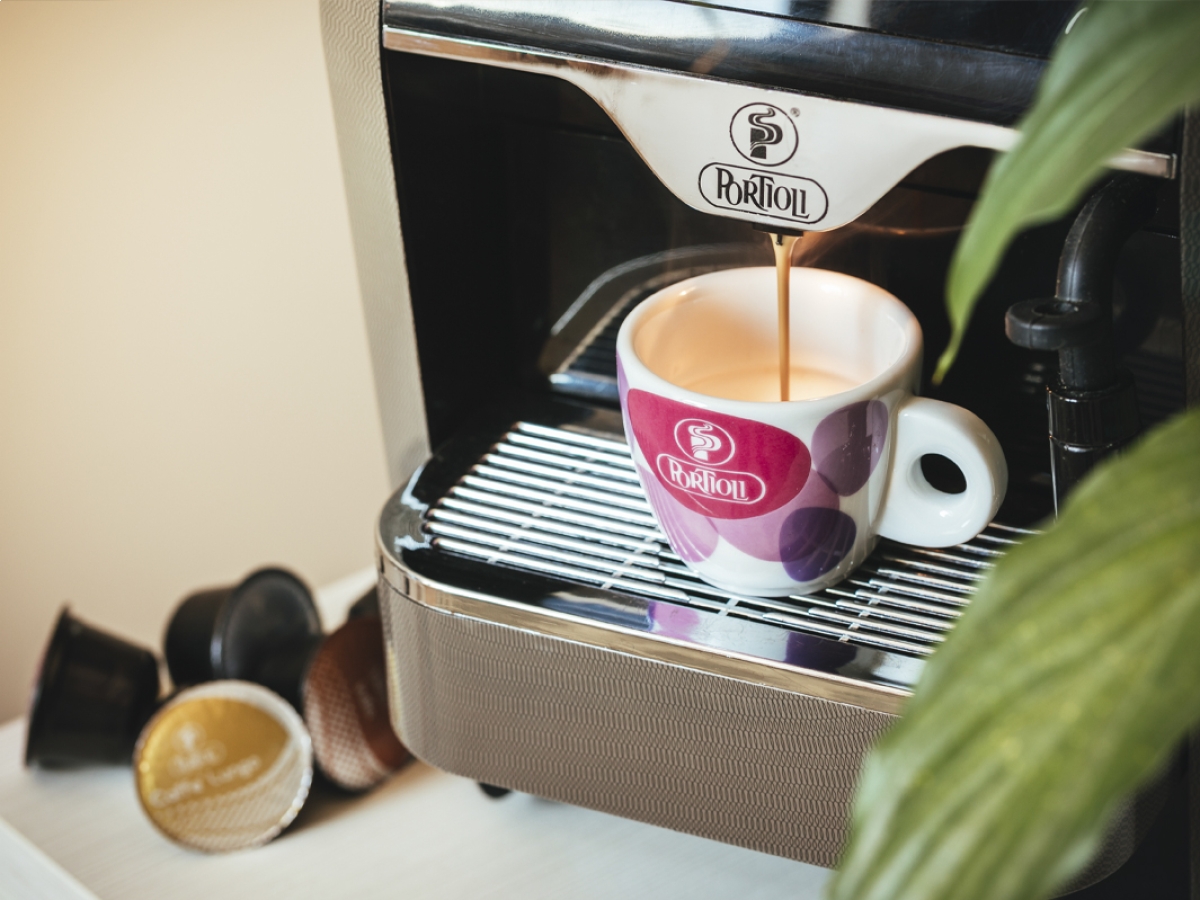
Portioli Long Coffee Capsules - A sensory journey in every cup
Discover Portioli long coffee capsules, a balanced blend with low caffeine content and enveloping aroma, perfect for every break.
Read more
-
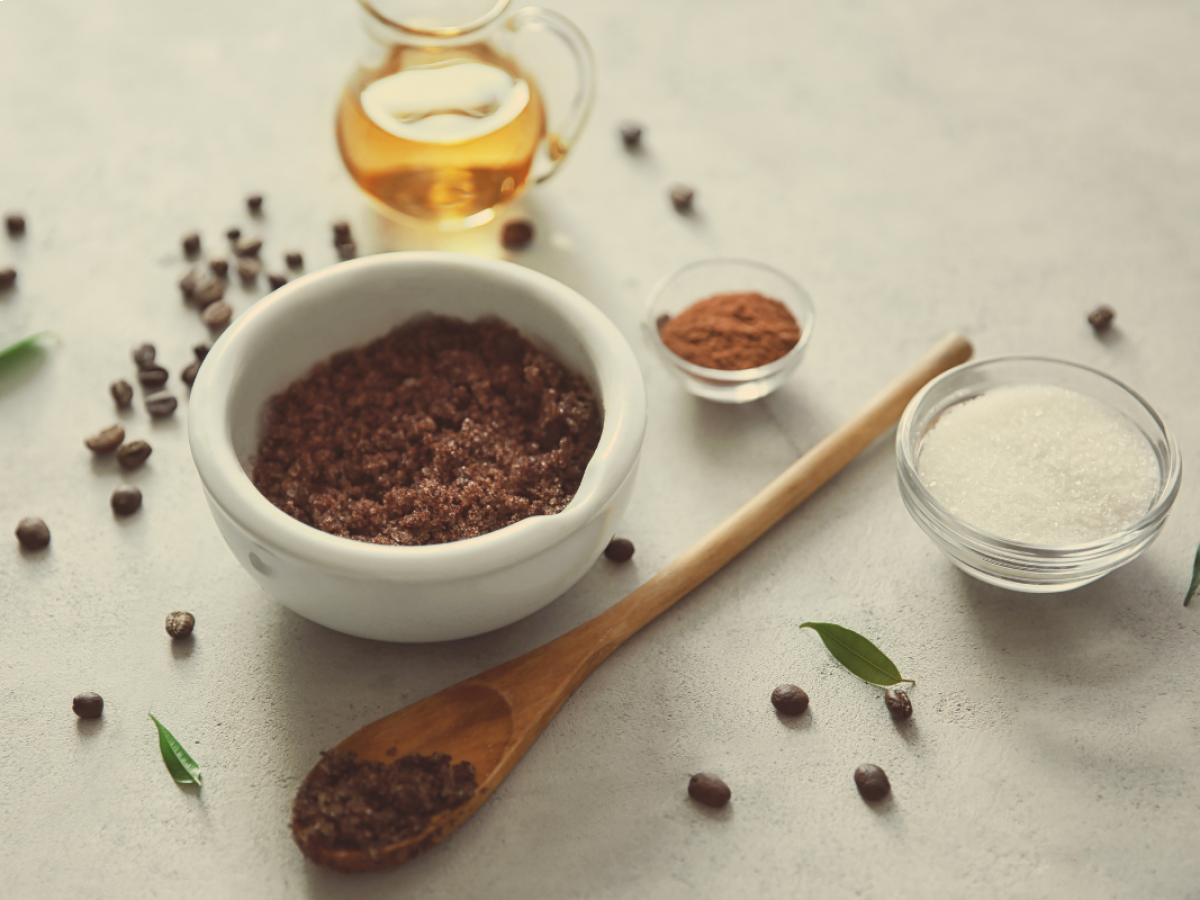
Functional Coffee - The conscious evolution of daily coffee
Discover functional coffee, the drink that combines flavor and energy with healthy ingredients to improve your daily well-being.
Read more
-
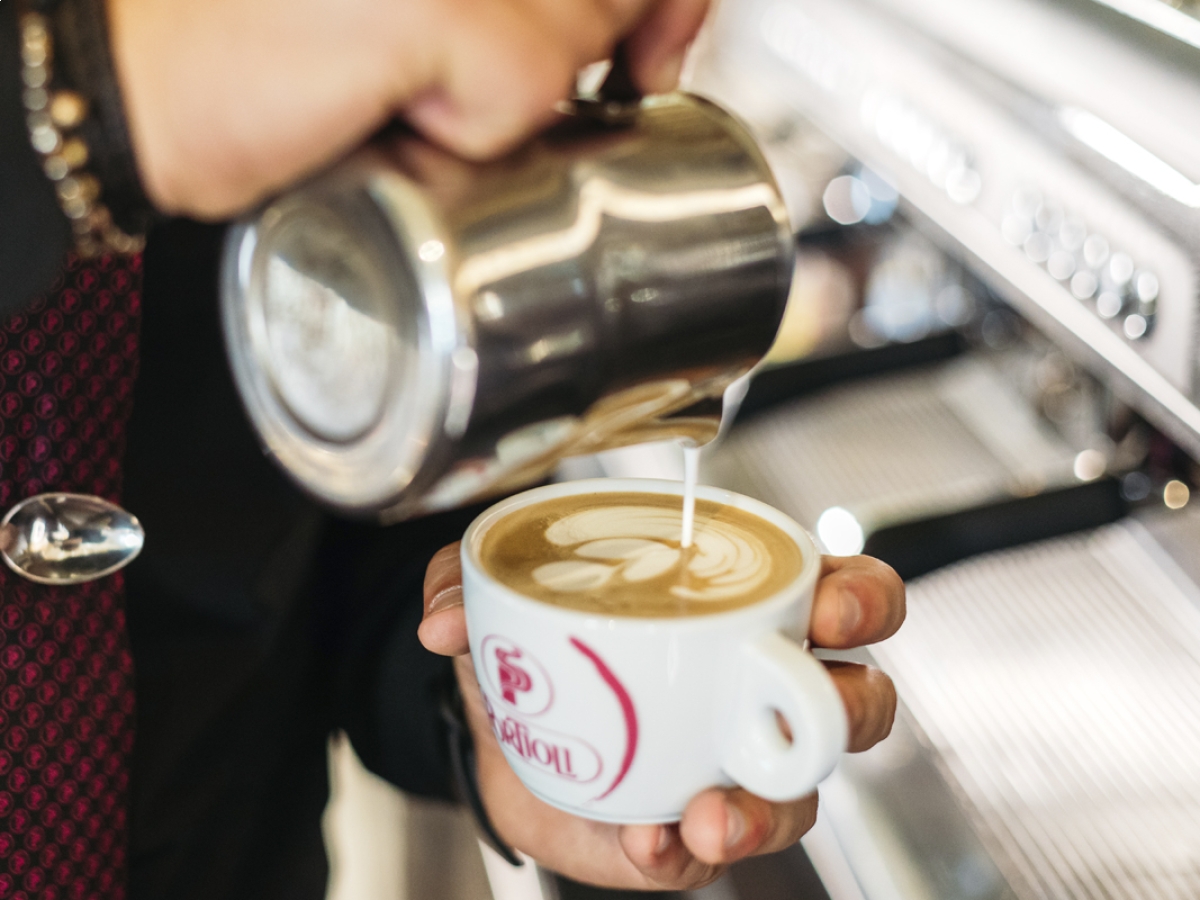
Become a master of Latte Art thanks to our Cappuccino d'Artista Course
Learn advanced decoration techniques with Portioli Cappuccino d'Artista Course. Get certified and distinguish yourself in your barista career.
Read more
-
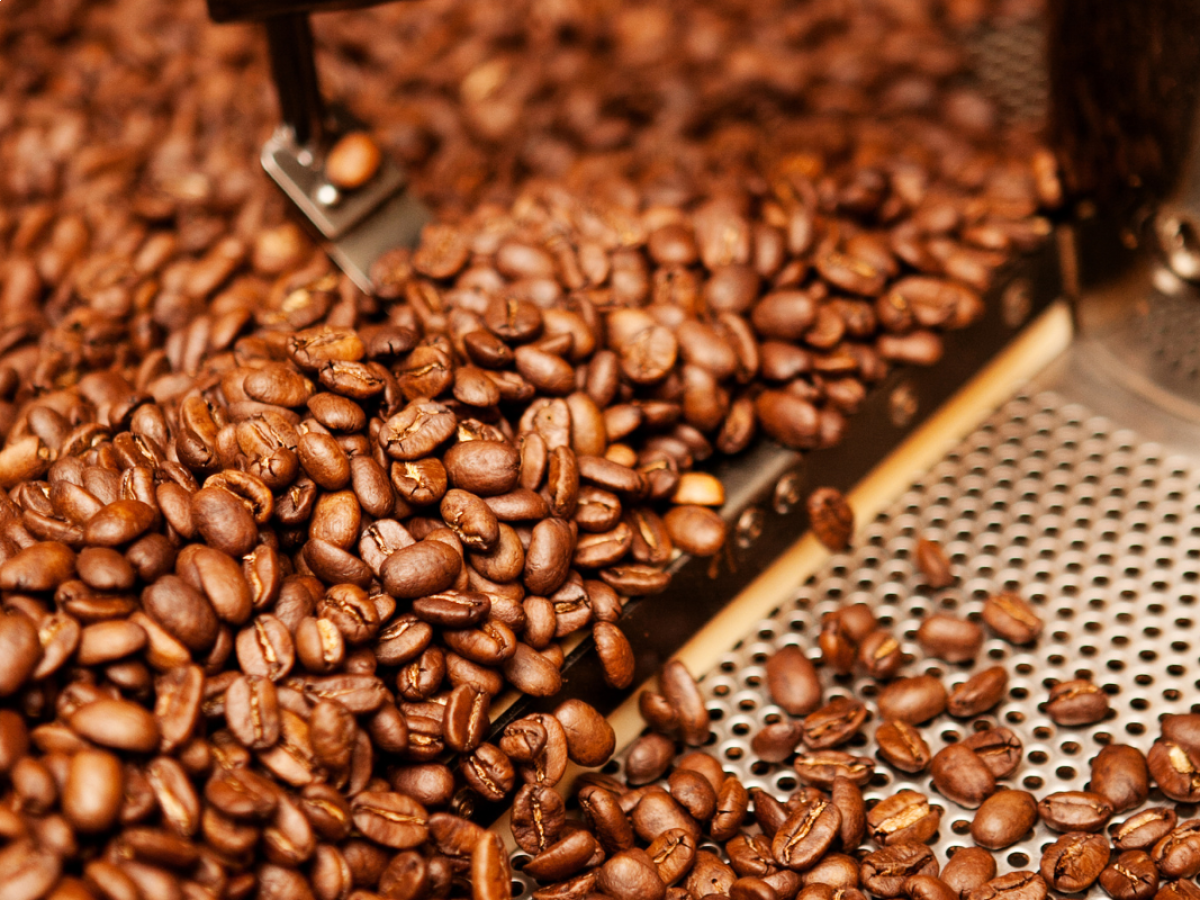
Coffee roasting - Science and art in the perfect bean
We believe that coffee roasting is an art that requires respect, care and passion. We want to enhance the diversity of our coffees.
Read more
-

The ready-to-drink coffee boom - A revolution that speaks to Gen Z
Ready-to-drink coffee is not just a passing fad, but a deep transformation in the way consumers relate to this iconic beverage.
Read more
-

Artificial Intelligence - The new frontier in the world of coffee
Discover how artificial intelligence in coffee is revolutionising cultivation, production and preparation, for an innovative coffee.
Read more
-
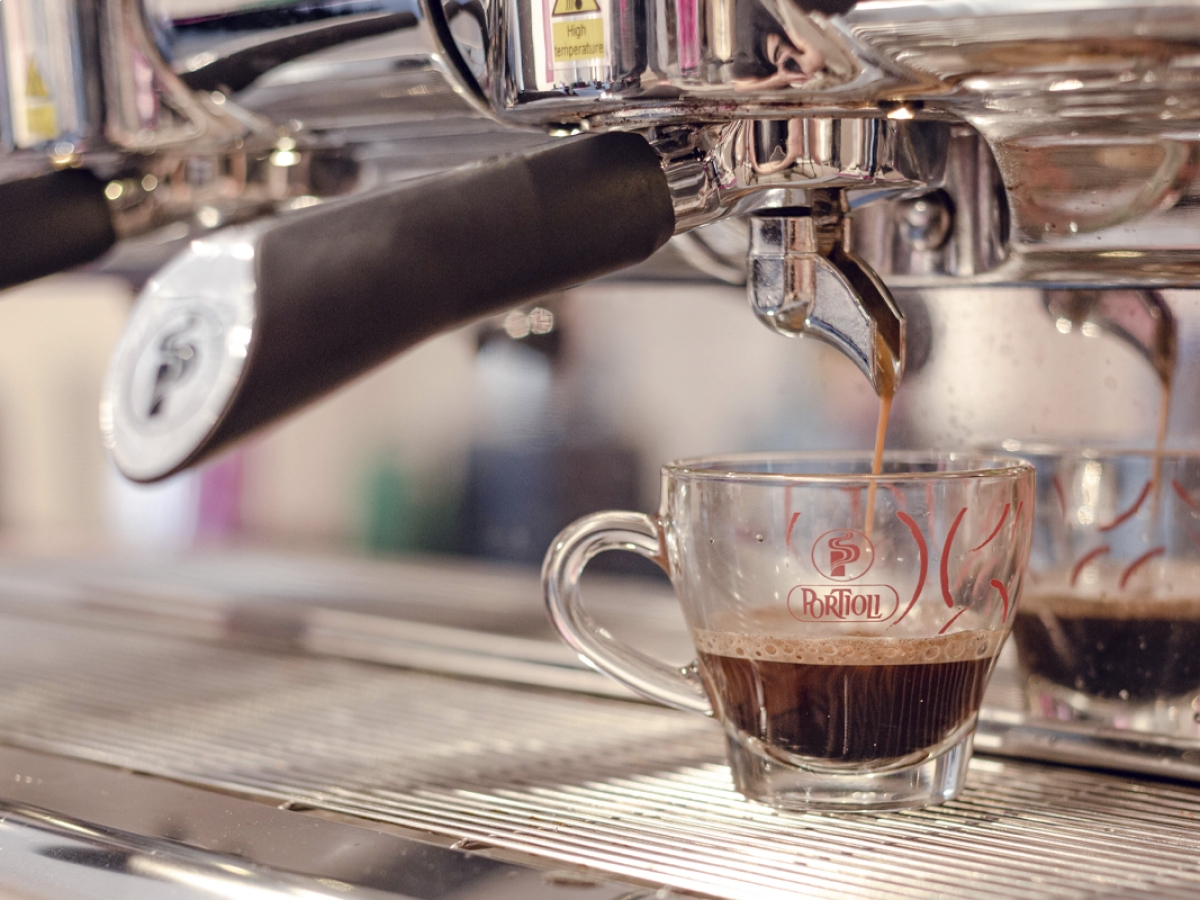
Barley fap capsules - A caffeine-free experience
Portioli barley fap capsules, the delicious caffeine-free alternative. Perfect for adults and children, with a unique taste and quality.
Read more
-
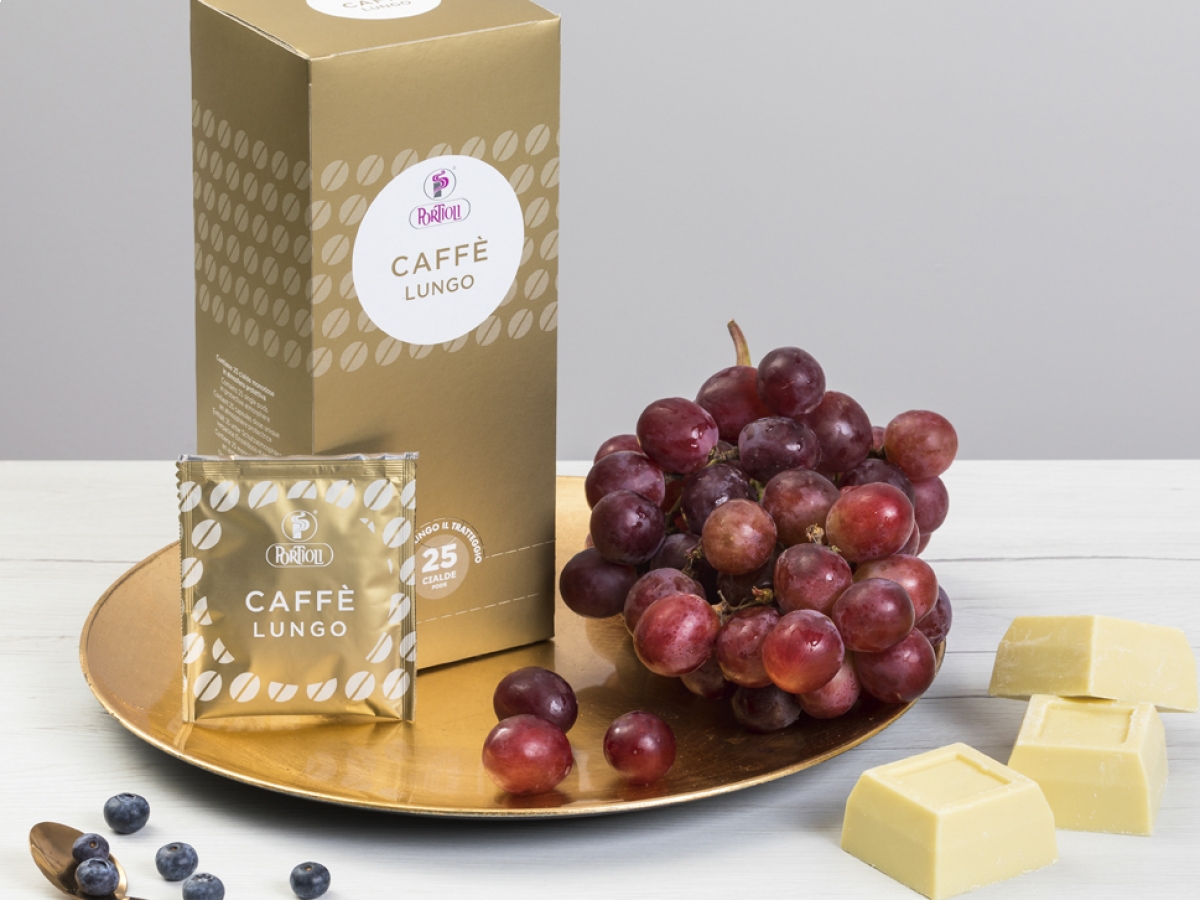
Portioli Lungo coffee pods - Discover the enveloping taste
Enjoy the rich and velvety taste of Portioli Lungo Coffee Pods, perfect for every moment of the day. Intense aroma, guaranteed pleasure.
Read more
-
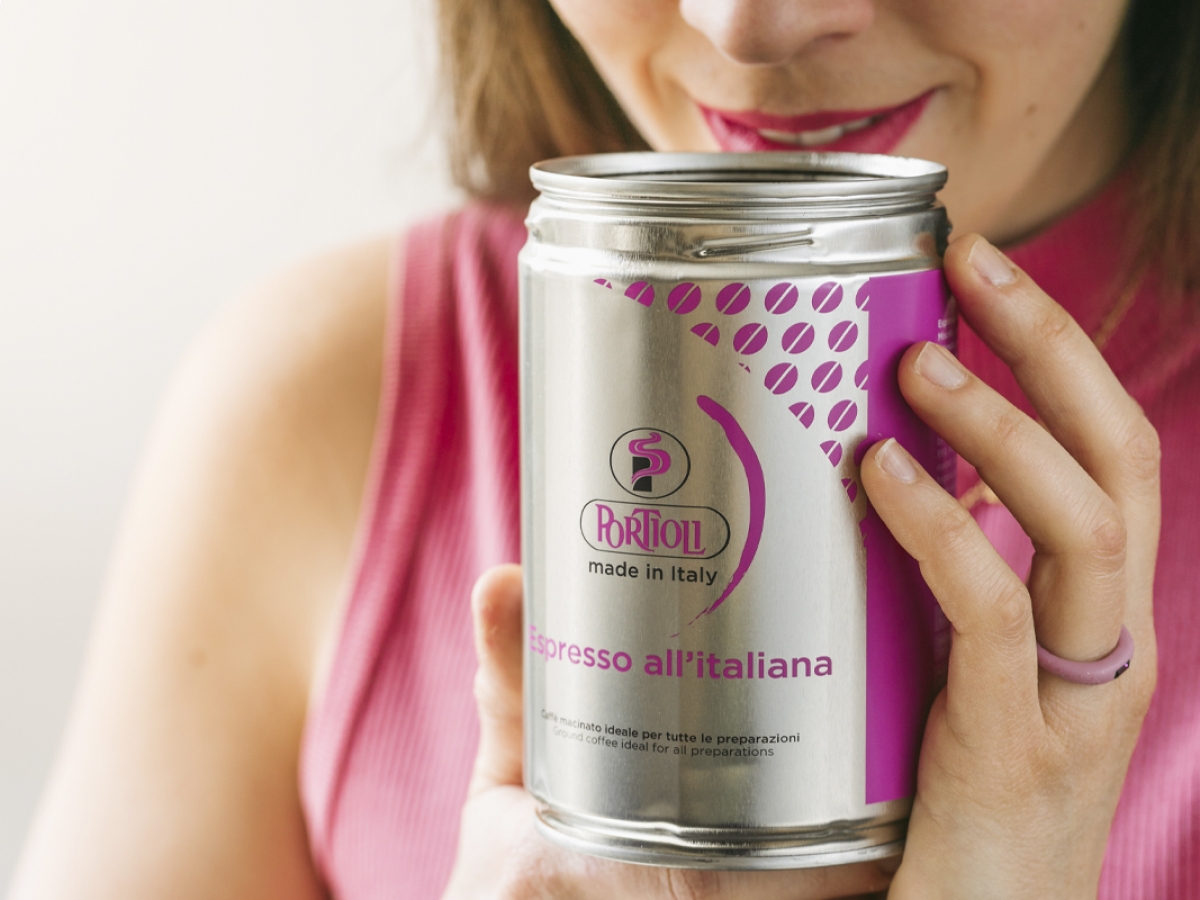
Ground coffee tins for baristas - Portioli Italian-style espresso
Discover Portioli tin of Ground Coffee for Baristas: the secret of the perfect Italian espresso with an irresistible aroma.
Read more
-

Digital Coffee - How social media is transforming the coffee experience
Explore how digital coffee is transforming coffee culture through social media, blogs and e-commerce. Discover.
Read more
-
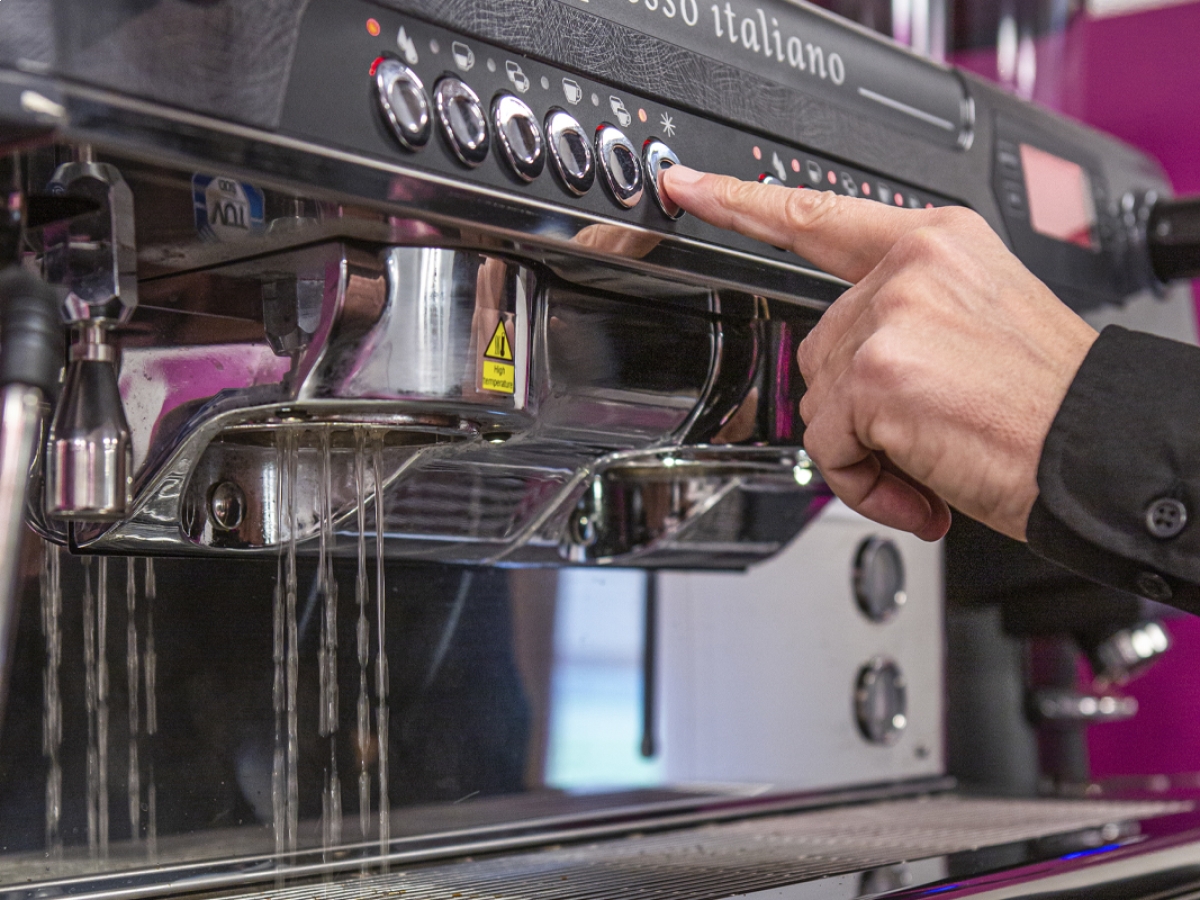
How to clean the coffee machine at the café
Find out how to clean the coffee machine at the bar with simple but effective techniques to ensure the best coffee every day.
Read more
-
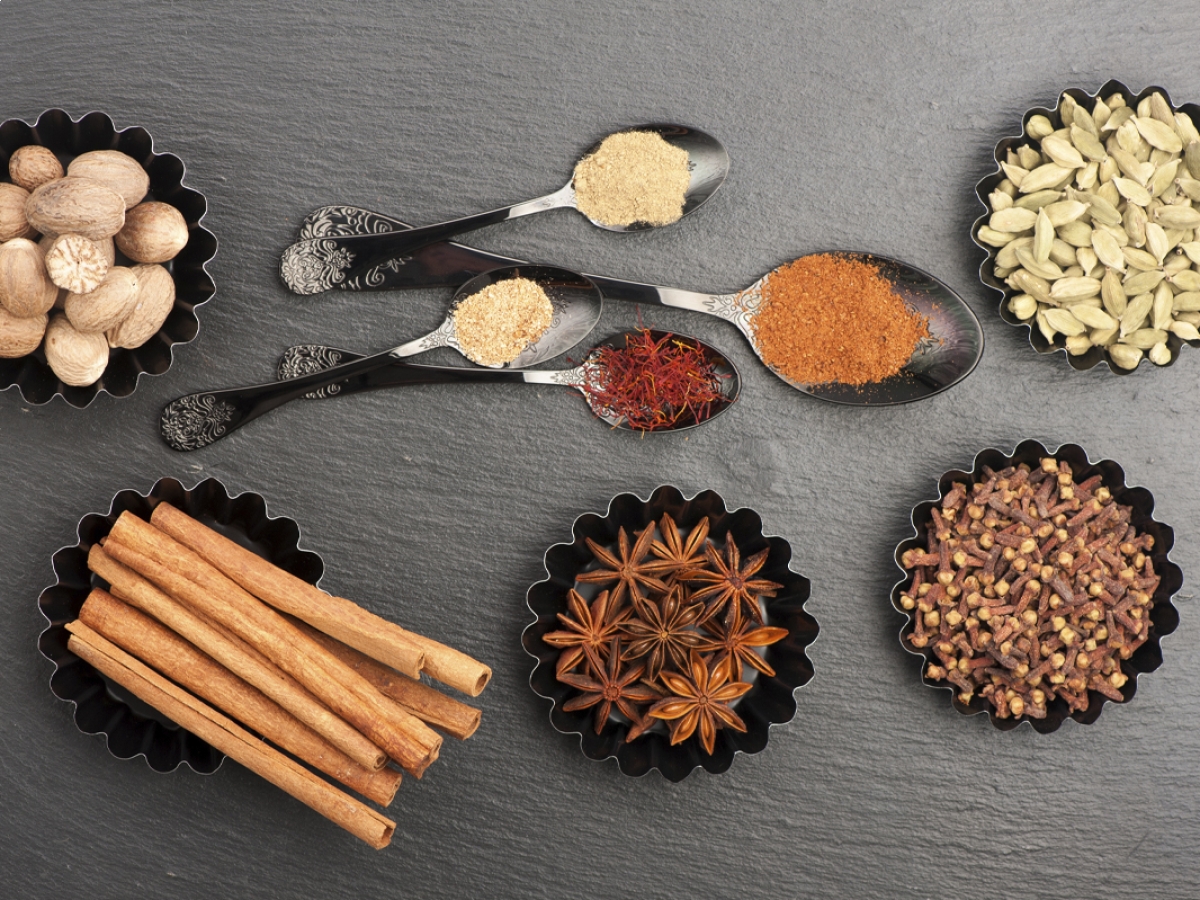
Spices in coffee to pamper yourself
Explore how to add spices in your coffee to create unique and aromatic drinks. Try our delicious recipes to pamper yourself every day.
Read more
-
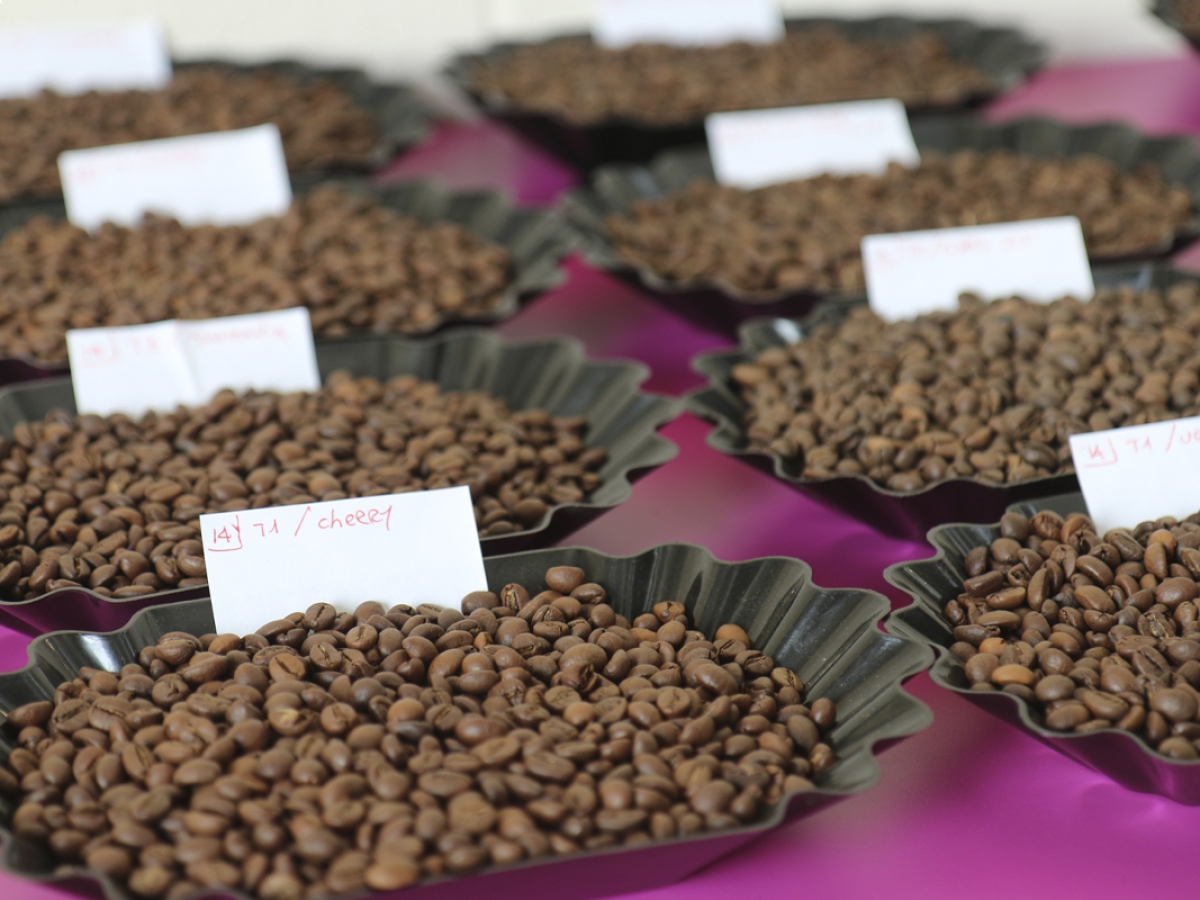
The essence of Portioli Coffee blends The perfect blend
Discover Portioli coffee blends: careful selection, perfect roasting and skilful blending for an unforgettable tasting experience.
Read more
-
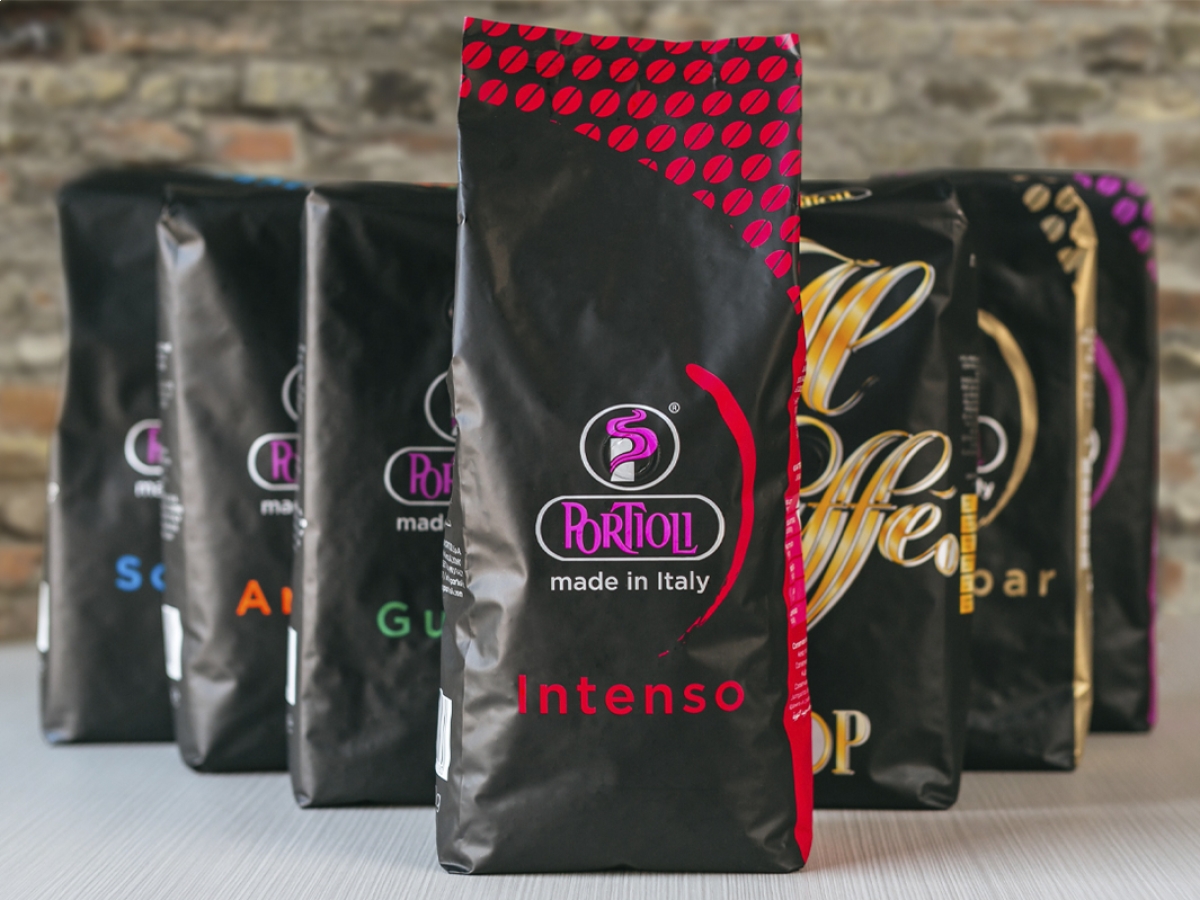
Robusta coffee beans for bars
Discover Portioli robusta coffee beans for bars: an intense and acid-free blend, perfect for professionals.
Read more
-
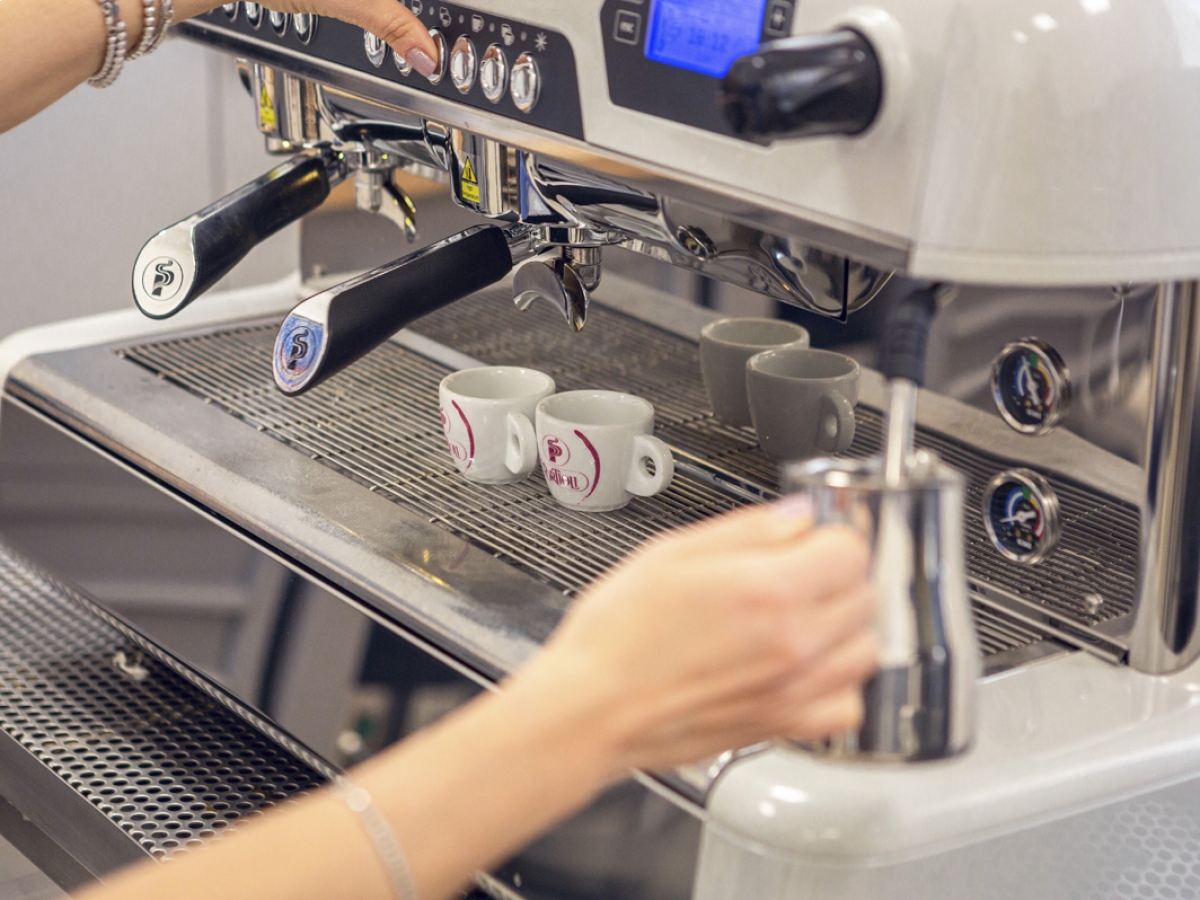
Professional coffee machines for bars - Which one to choose
Discover GIME professional coffee machines for bars, with innovation, Italian design and quality to enhance Portioli blends.
Read more
-
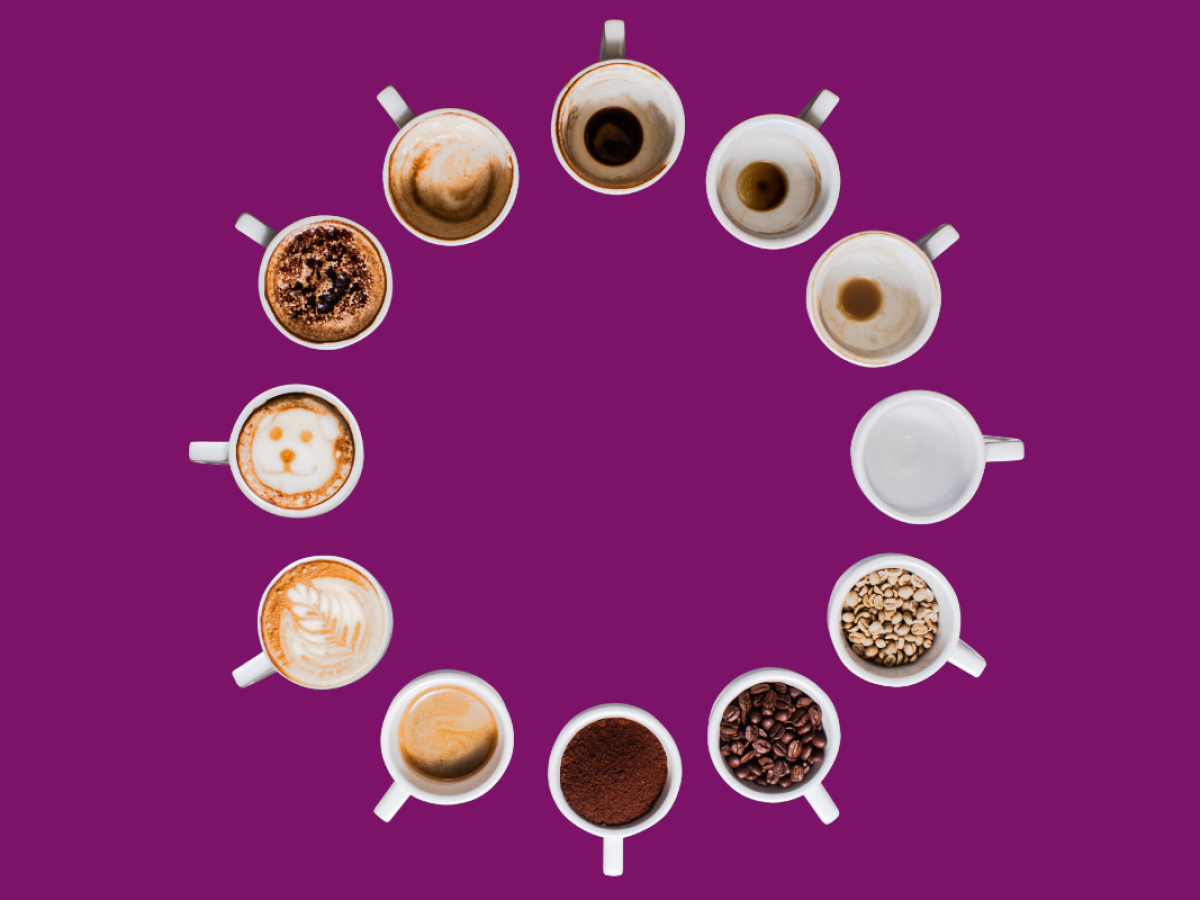
The right time - When to drink coffee to optimize your energy
Let's unveil the secret: when drinking coffee can make a difference! Discover the ideal time to maximize the benefits on your energy
Read more
-

What does coffee for Italians mean?
Discover the deep meaning of coffee for Italians, a daily ritual that links, cheers and drives every moment of the day
Read more
-

The Swedish solution for a return to well-being at the office
The Swedish tradition of Fika can reduce work-related stress and improve productivity. History and best places for a real Fika.
Read more
-
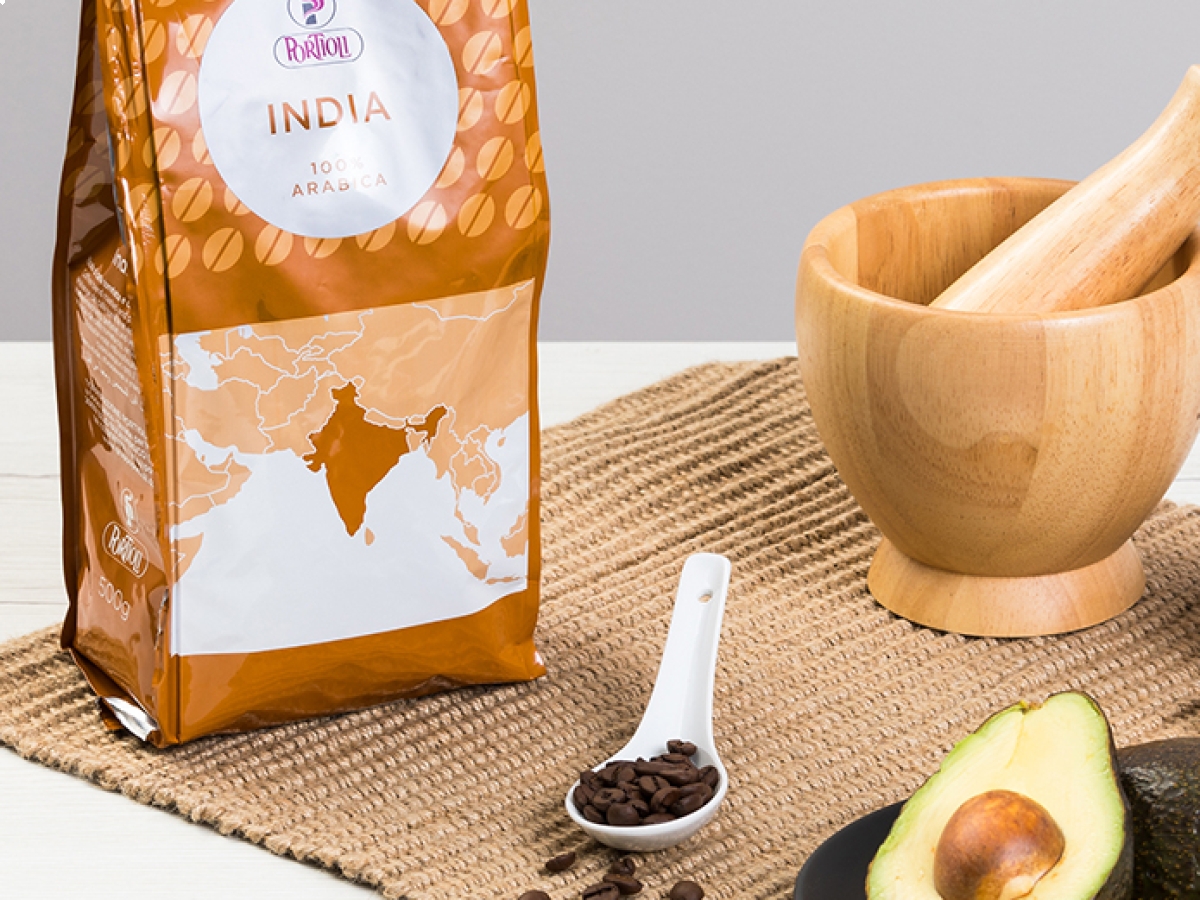
Unique sensory experience with single-origin coffee from India
Explore India single origin coffee: 100% Arabica beans selected for a unique experience with spicy aromas, low caffeine and golden cream.
Read more
-
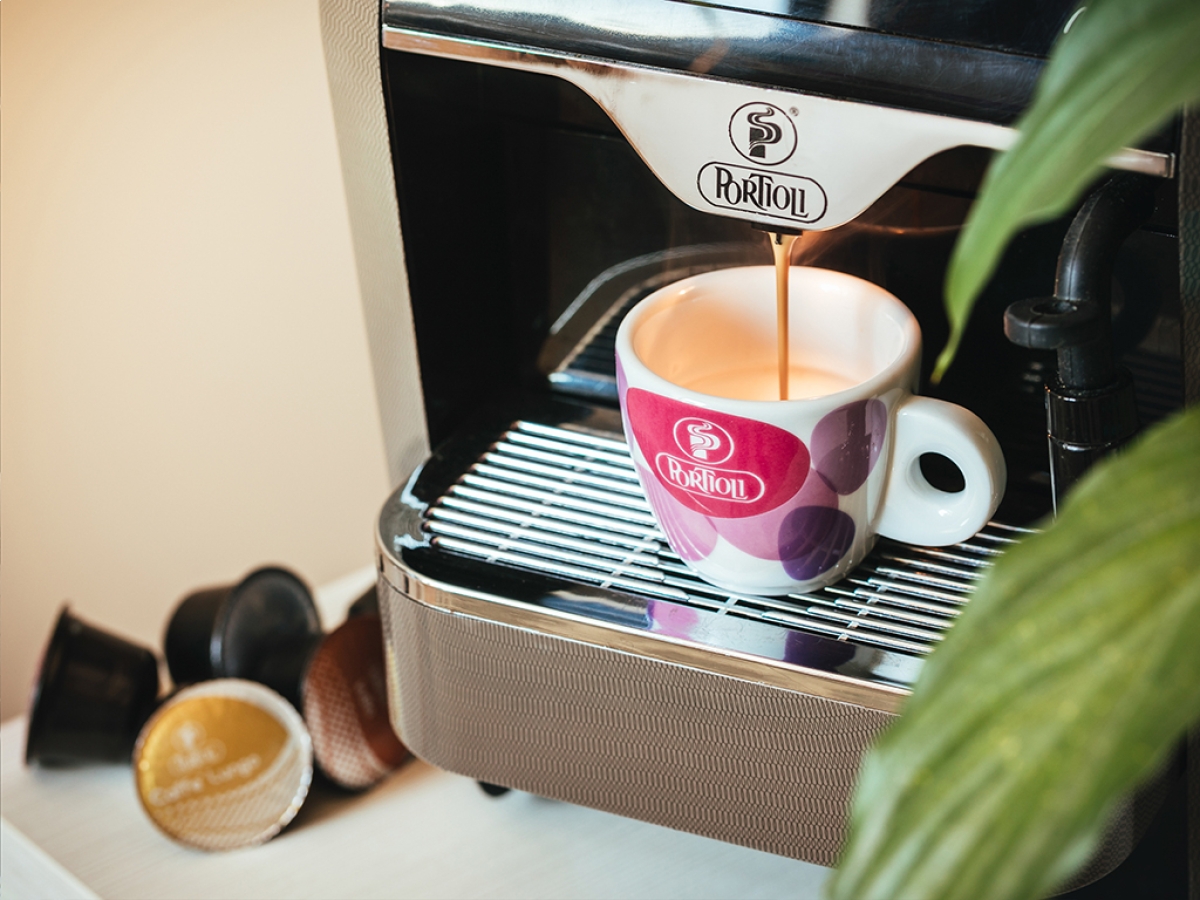
Portioli Espresso at home and in the office
Enjoy the aroma of Portioli Express, the excellence of Italian coffee. Order now and bring the real taste of coffee home!
Read more
-
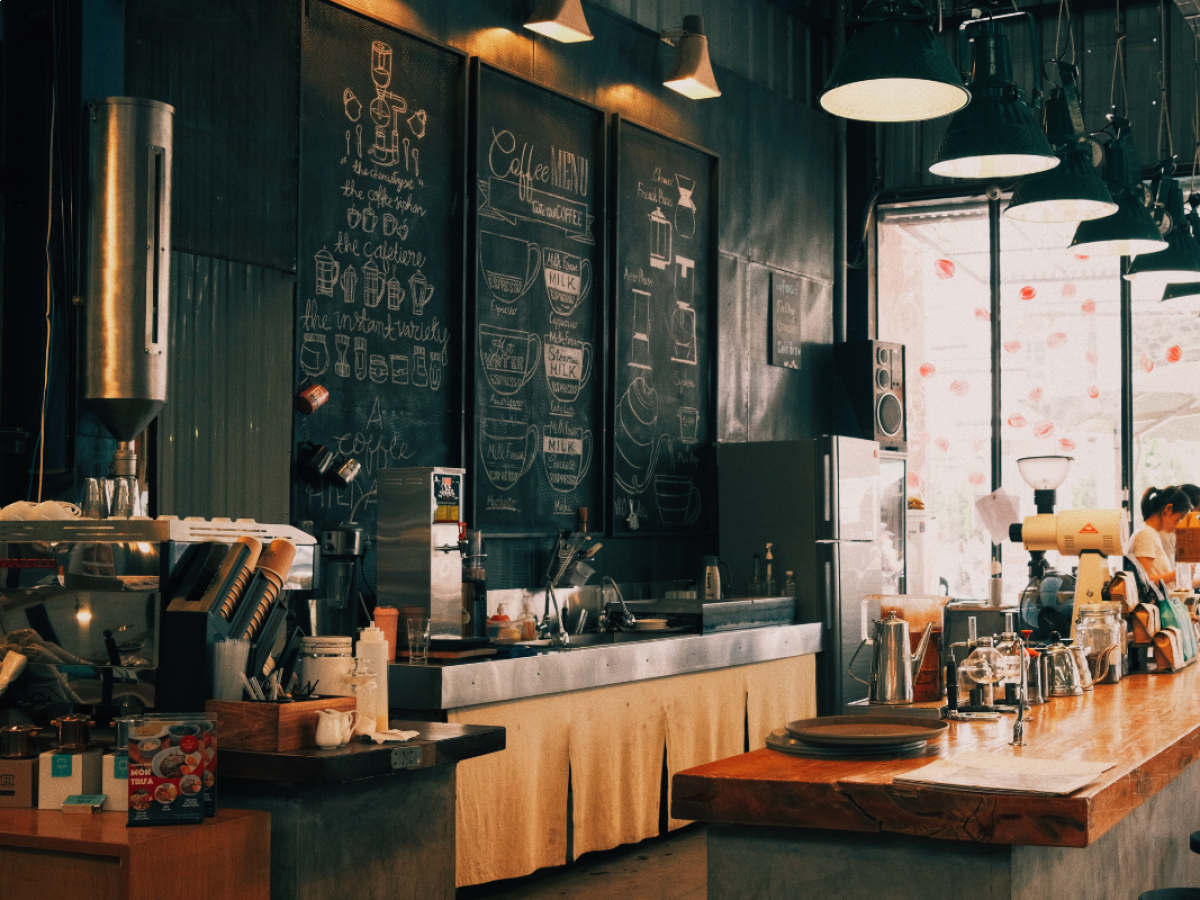
Food & Beverage Trends in Italian Bars - From Breakfast to Aperitif
Explore food&beverage trends in Italian bars, from nutritious breakfasts to gourmet aperitifs. Experiment the evolution of taste.
Read more
-
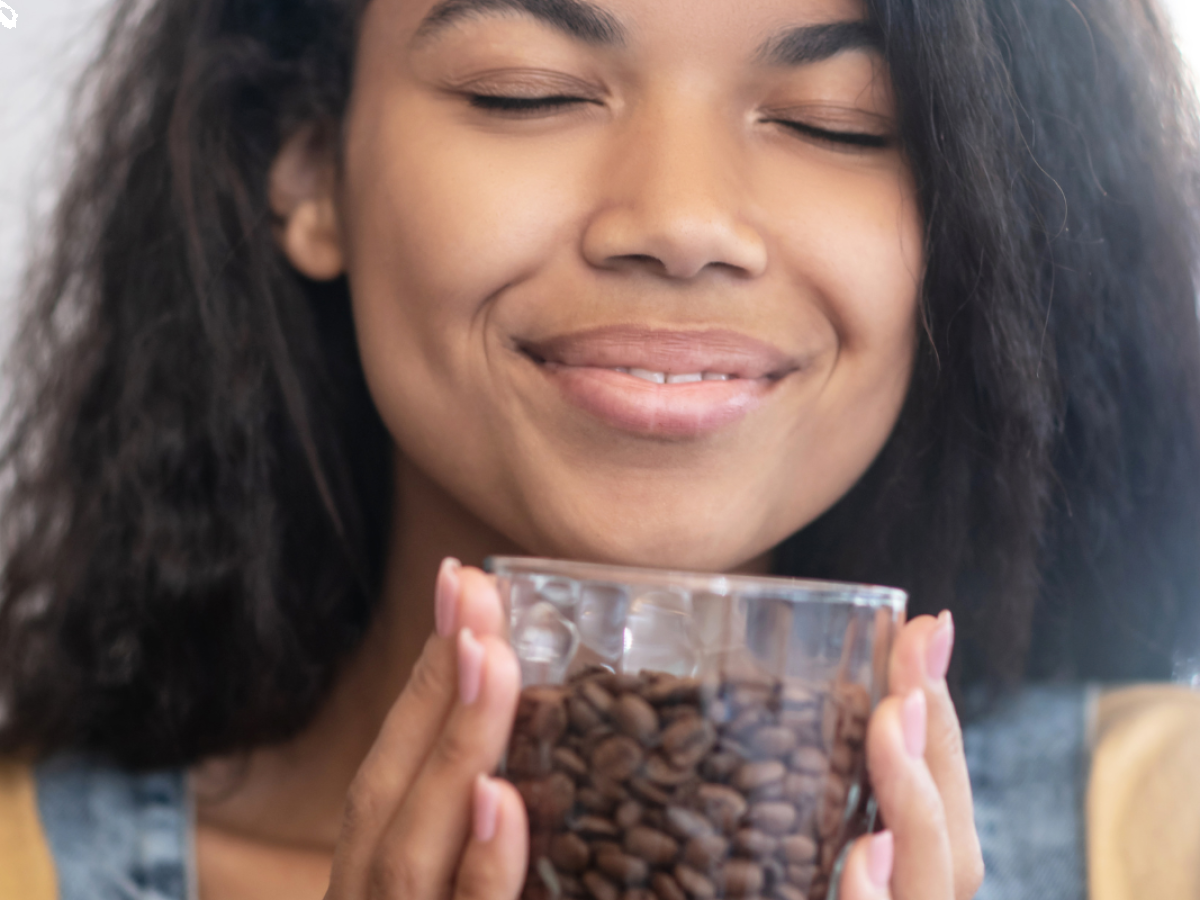
The power of coffee to reset the nose and recover the sense of smell
Do you want to know how to reset your sense of smell after sensory overload? The secrets to restoring your olfactory sensitivity with tricks.
Read more
-
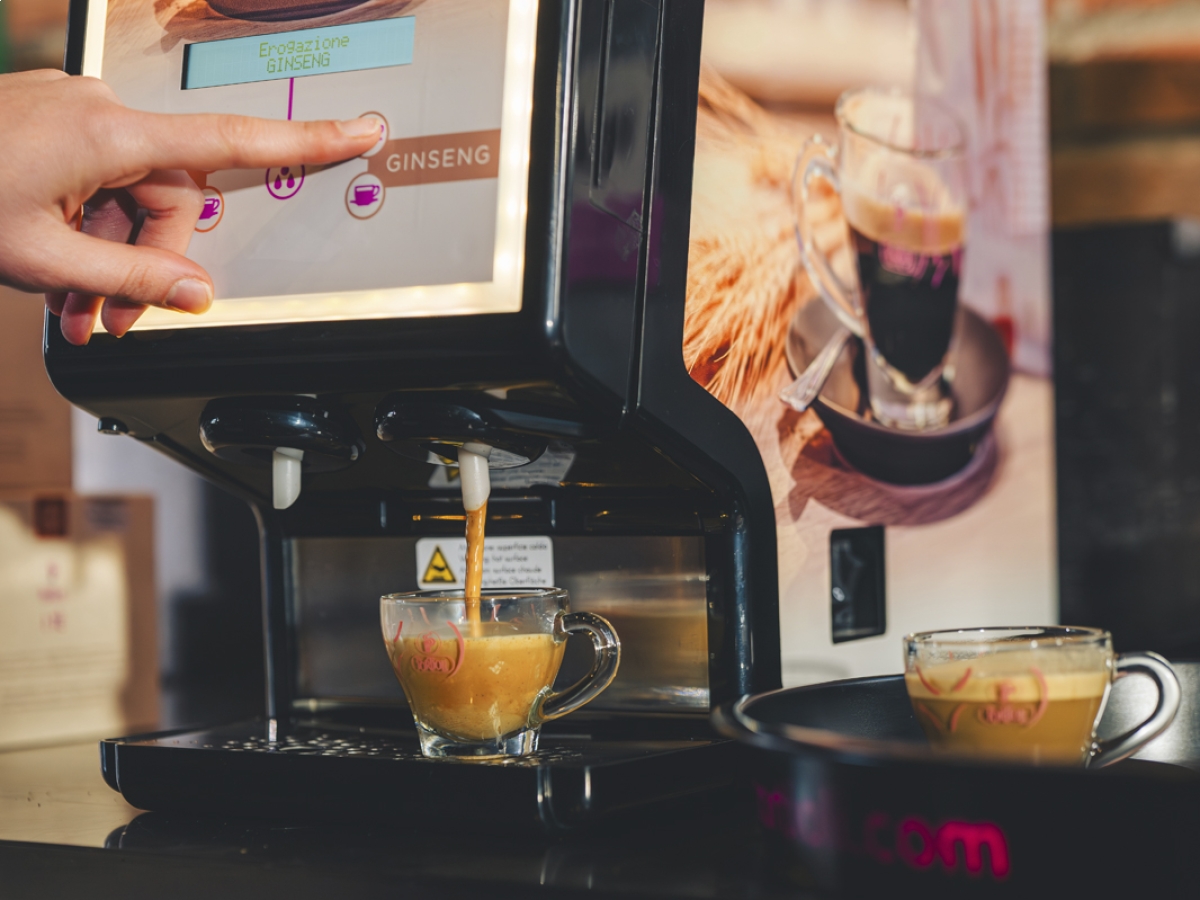
Discover the unique taste of Portioli freeze-dried ginseng coffee
Discover the perfect combination of intense taste and natural energy with Portioli freeze-dried Ginseng coffee. A delicious break every day.
Read more
-
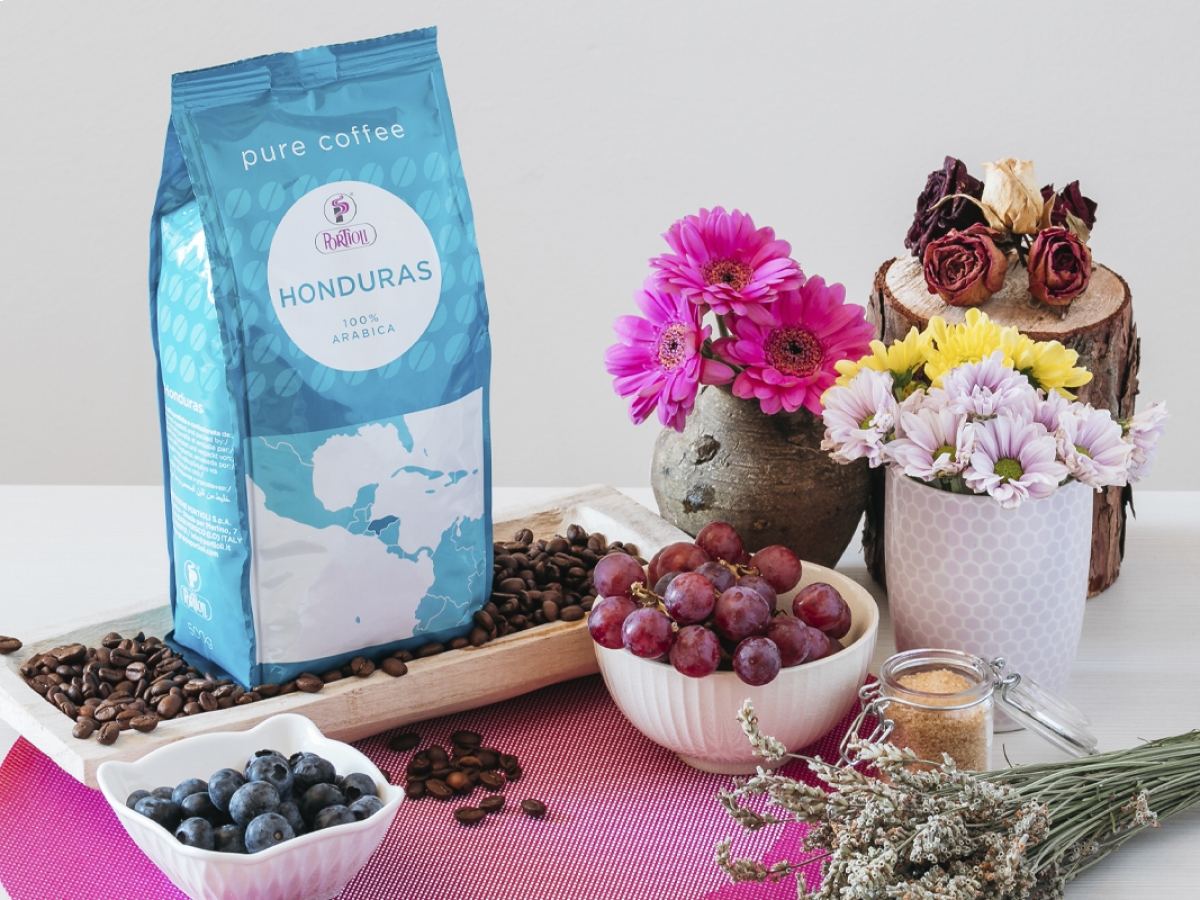
Journey through the Colors of Honduras with Portioli coffee
Discover Honduras coffee with its floral aromas and enveloping sweetness. A sensory journey through the lands of Central America.
Read more
-
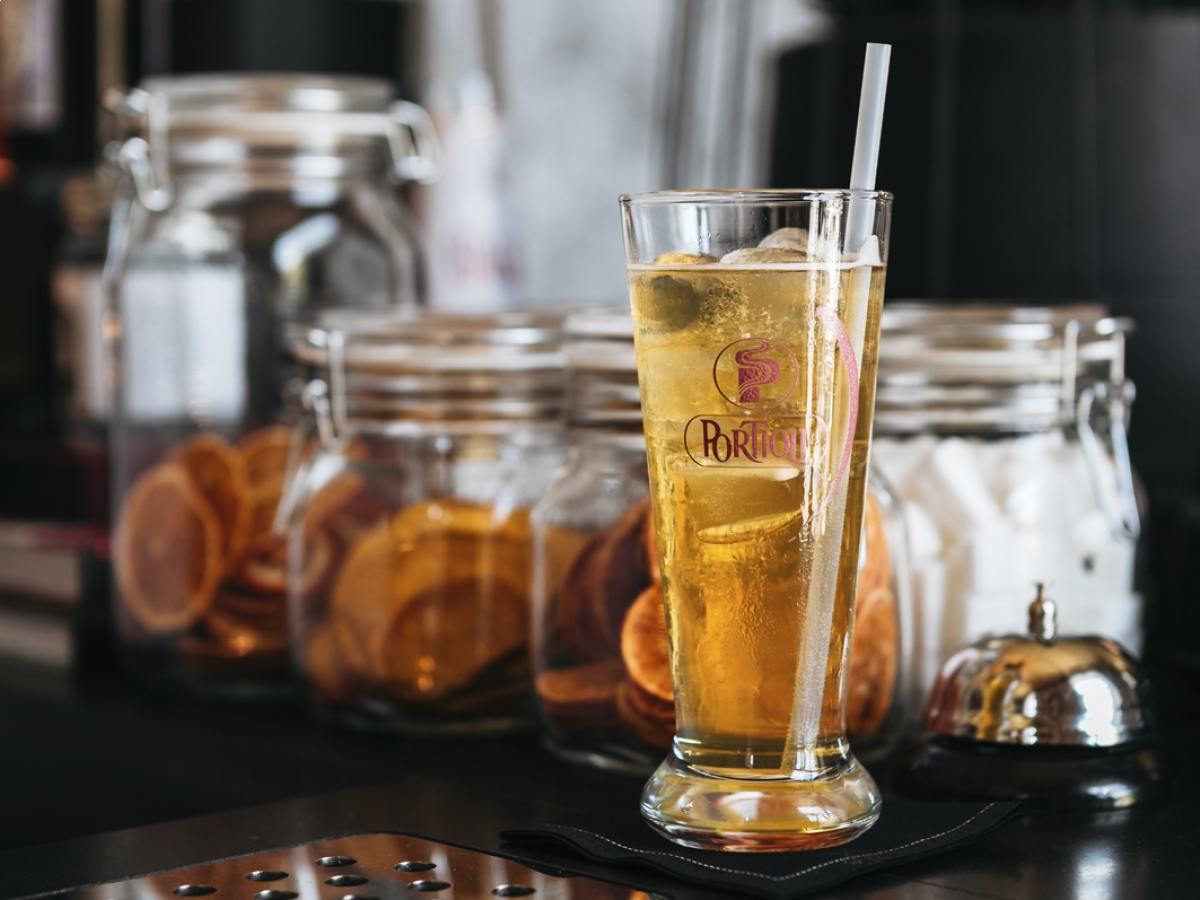
The new world of non-alcoholic cocktails - Pomo Tonic&more
Discover the perfect combination of intense taste and natural energy with Portioli freeze-dried Ginseng coffee. A delicious break every day.
Read more
-
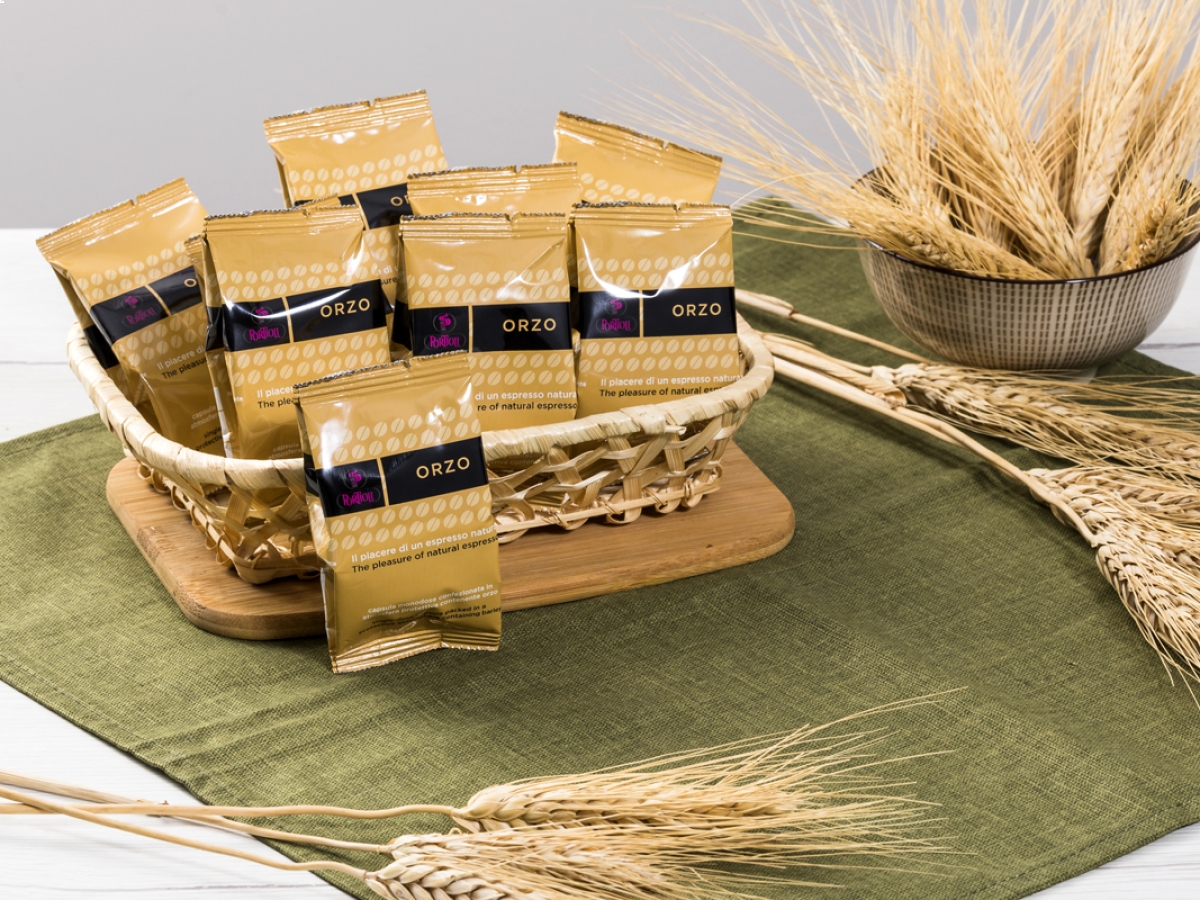
Barley coffee - Perfect for children, loved by grandparents
Discover the art of barley coffee with our capsules. Rich, caffeine-free taste. Every cup is an unparalleled sensory journey.
Read more
-
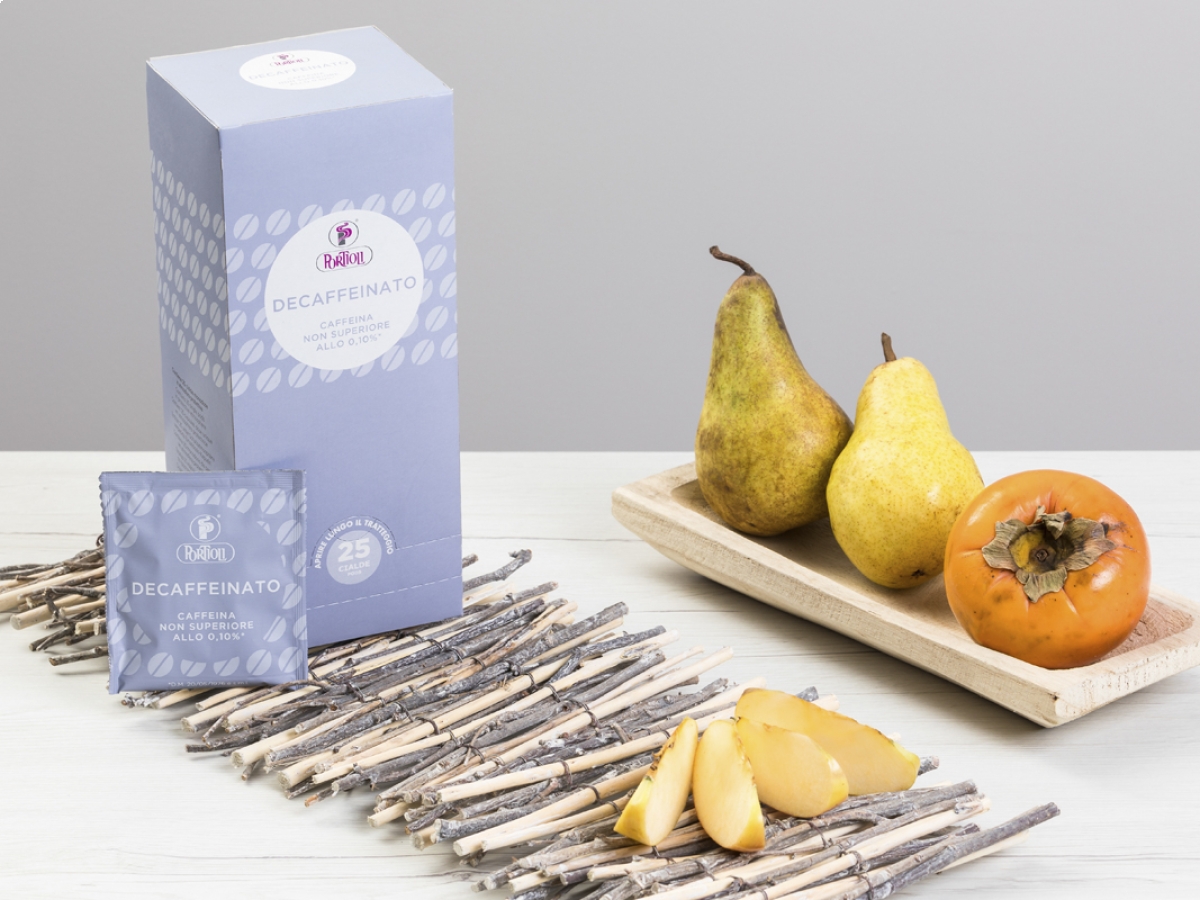
Decaf coffee - Pods and capsules for reduced consumption
Discover the authentic pleasure of decaf coffee. Rich taste, without caffeine. Pods and capsules for a delicious experience.
Read more
-
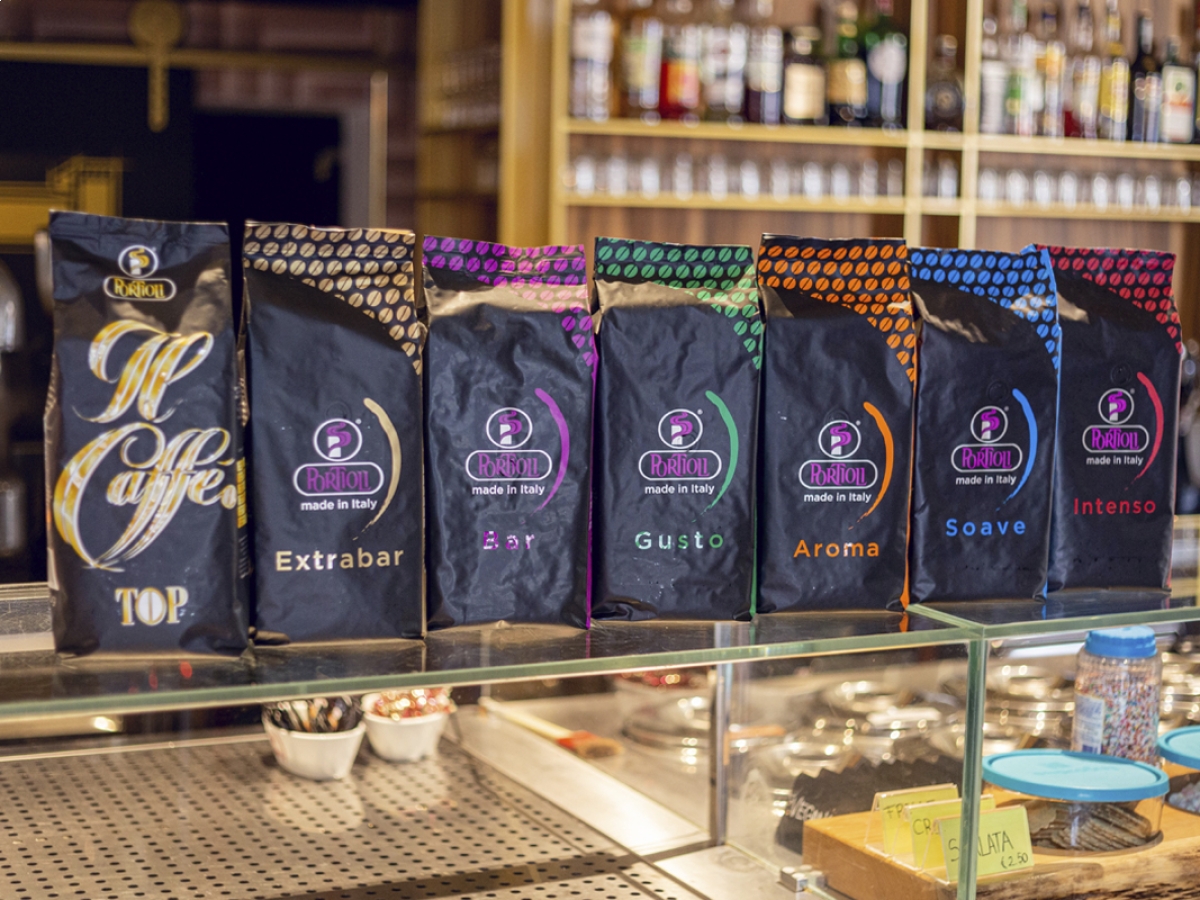
Best coffee for bars - Tips for choosing the best one
Discover Portioli coffee blends for bars: from intense taste to round aroma, the essence of the best coffee to delight your customers.
Read more
-
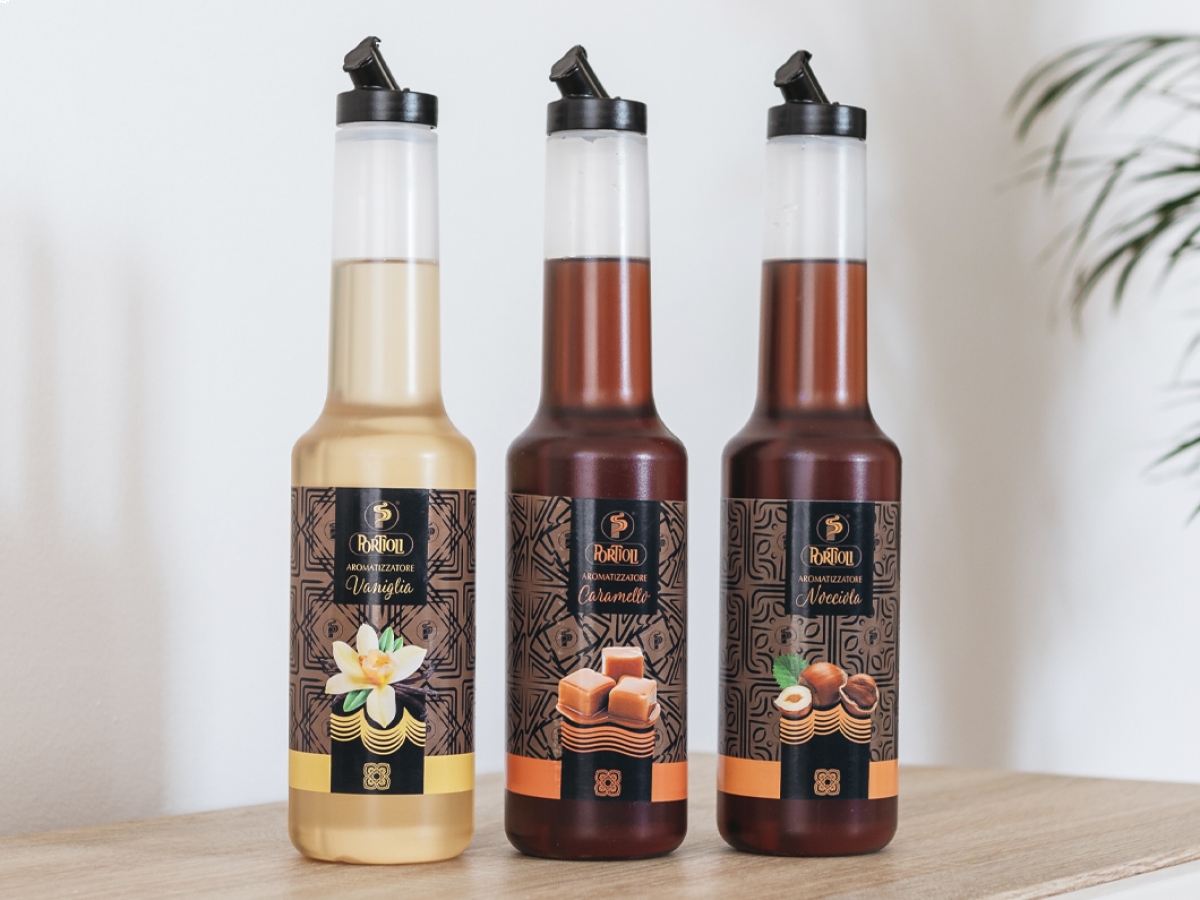
An all-American trend coming to Italy - Coffee flavourings
Renew your coffee with Portioli Coffee Flavourers. Experience new flavours, from intense to sweet, for a daily unique experience.
Read more
-
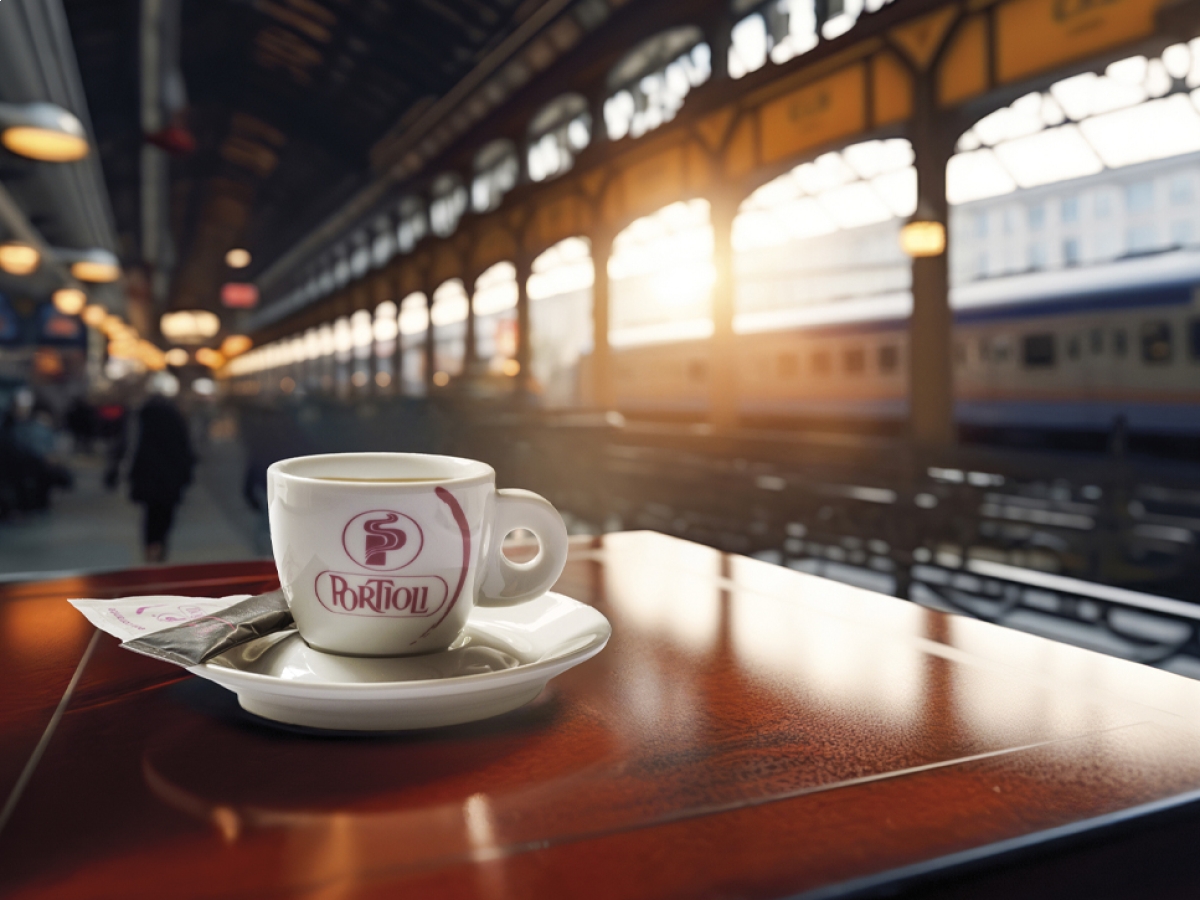
2024 Portioli Calendar - A12-month journey
Discover our 2024 Portioli Calendar, a journey through coffee moments enriched by traditional AI. A link between taste and innovation.
Read more
-
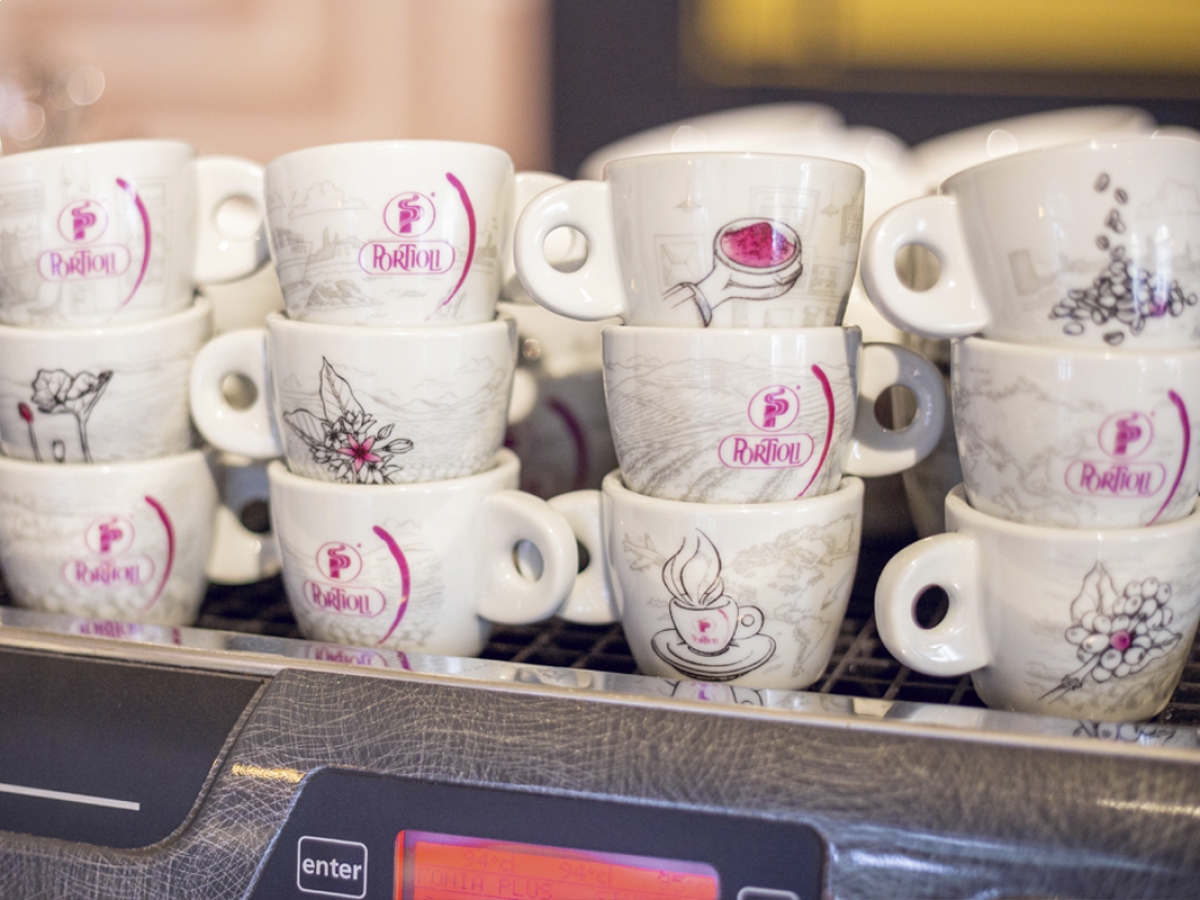
Beautiful and collectible - 2023 Portioli cups
Discover the extraordinary Portioli 2023 cups, a symbol of elegance and passion for coffee. Enter the world of espresso art.
Read more
-
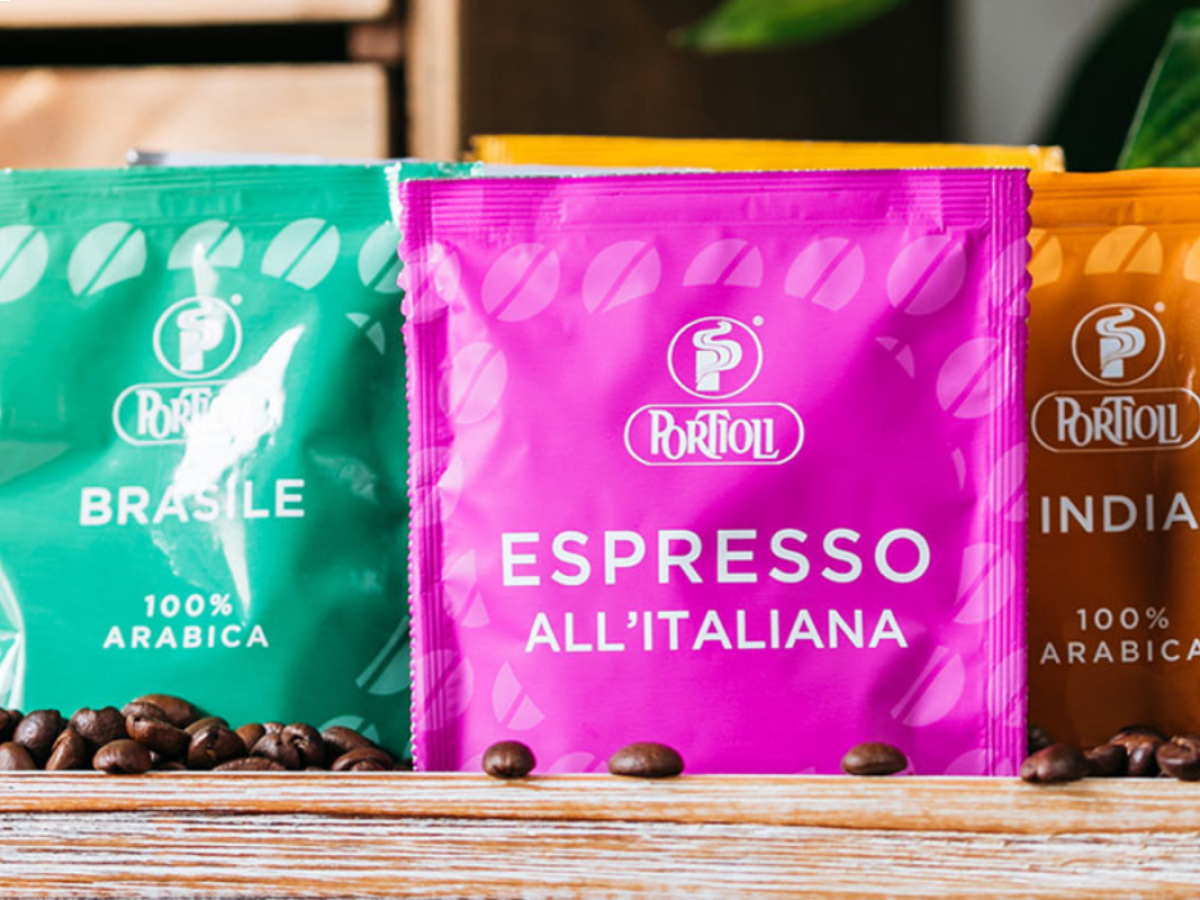
Blend or single-origin - How to choose it?
Discover the differences between blend and single-origin for a unique coffee. Choose your favourite one for a coffee experience.
Read more
-
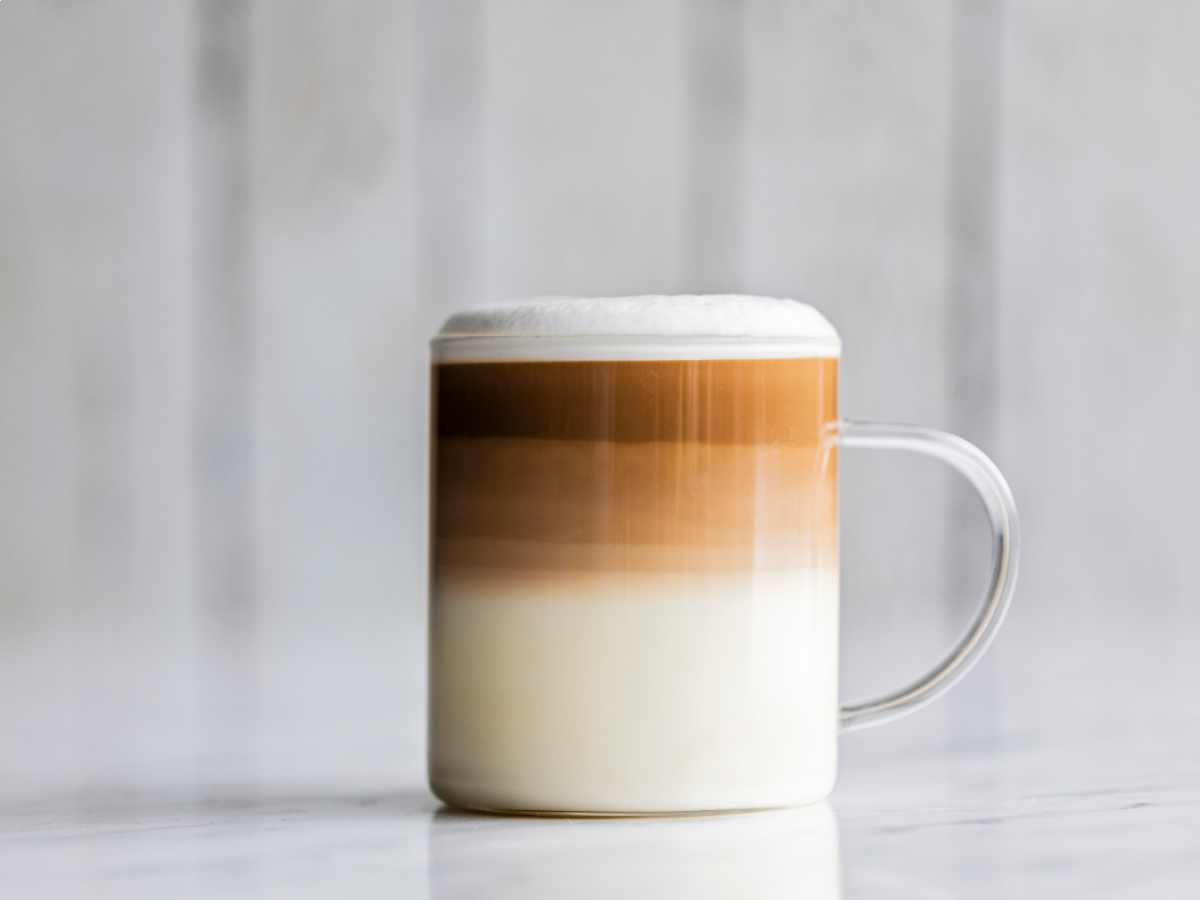
Not only coffee - The pleasure of latte
Find out how to prepare latte: prepare it like a professional and enjoy its delicious harmony of milk and coffee.
Read more
-
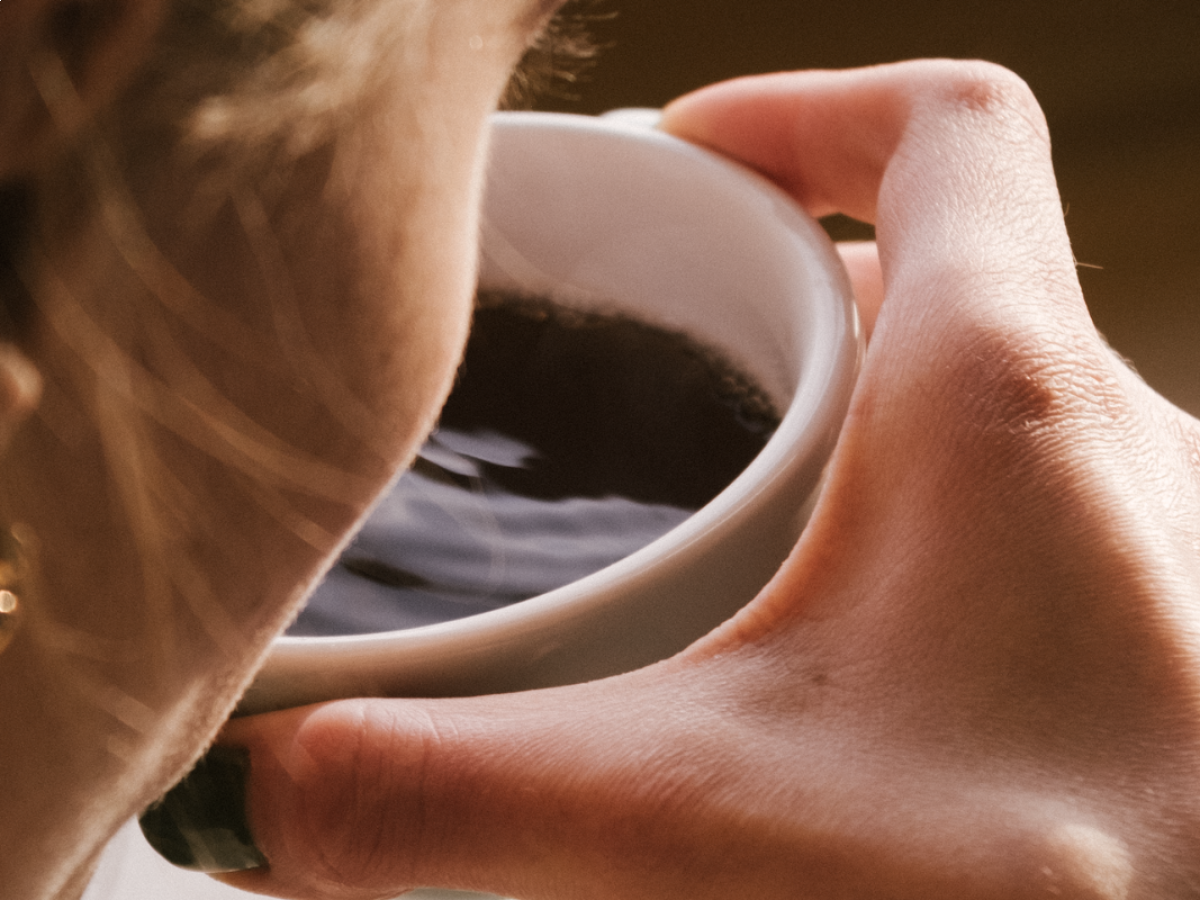
Coffee tasting - Difference between taste and aroma
Explore the subtle difference between taste and aroma in coffee, a unique and fascinating sensory tasting. Learn here more.
Read more
-
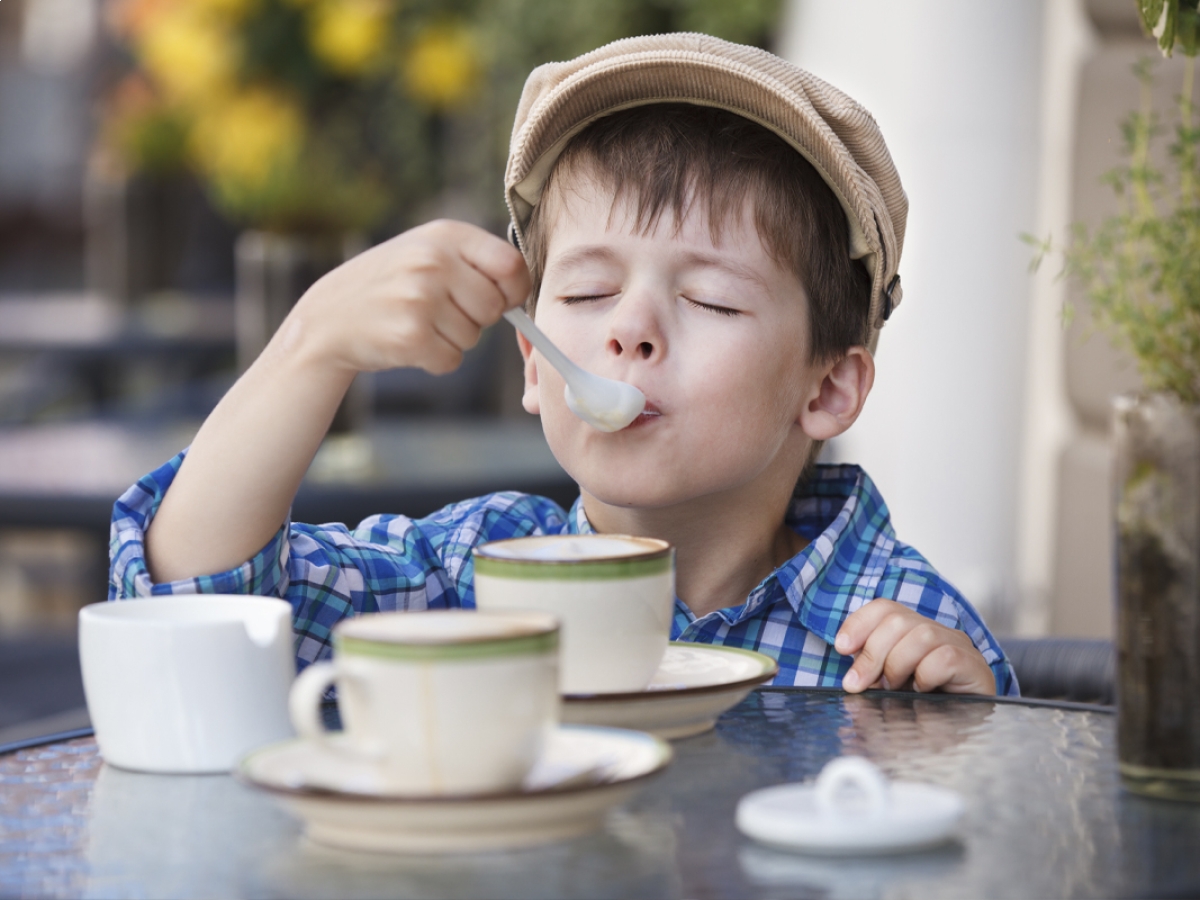
Are you familiar with Babyccino, the cappuccino for children?
Discover Babyccino, the caffeine-free drink that resembles cappuccino and delights the little ones. Immerse yourself in this delicious drink.
Read more
-

Burnt coffee or
Discover the secrets to avoiding burnt coffee or boring 'slop' during your coffee break. Read tips for getting a delicious espresso.
Read more
-

Coffee: the importance of not settling
Explore here coffee tasting trails and learn how to select the best coffee blends. Discover why you do not have to settle-down.
Read more
-

Selfie on coffee and cappuccinos - It happens in Varese, Italy
Discover the Selfie on coffee Varese: selfies printed on coffee and cappuccino cups. An experience that combines creativity and taste.
Read more
-
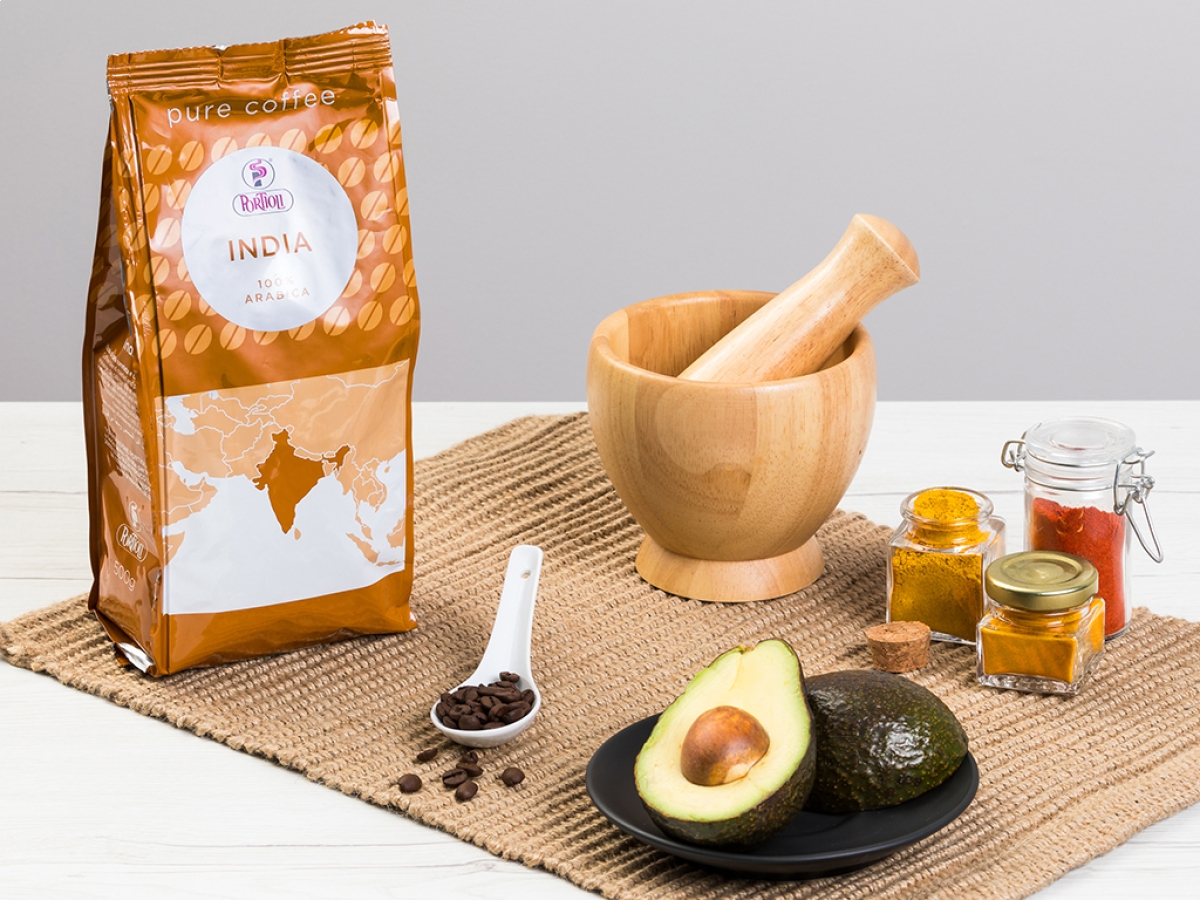
Fine coffees for connoisseurs - The single origin ones
Portioli alongside the Robusta and Arabica blends offers single origin coffees. These are varieties for specialists and connoisseurs.
Read more
-
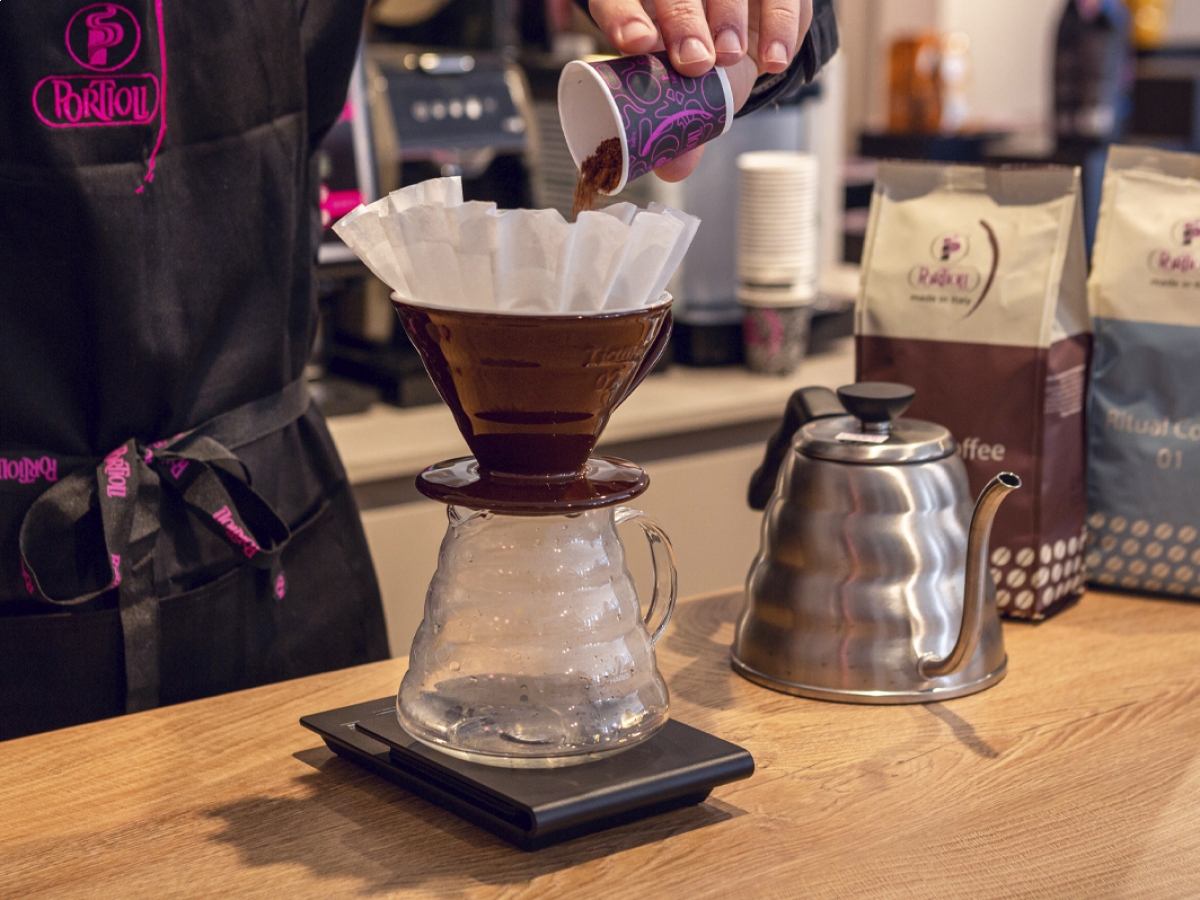
Filter coffee: Barista techniques for getting the most out of your coffee
Filtered coffee is a beverage made by a process of filtering hot water through a mixture of ground coffee and a filter.
Read more
-
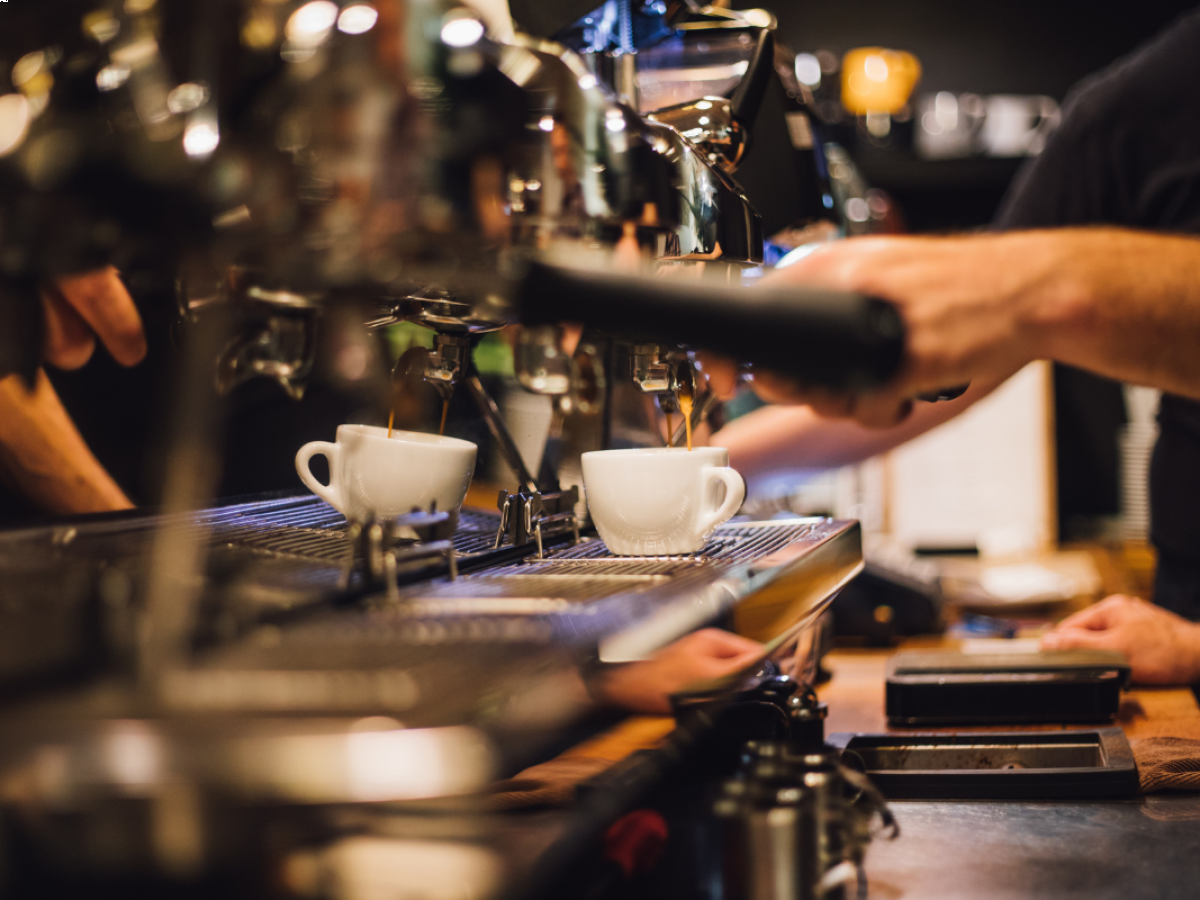
Barista - Between career and passion
Becoming a professional batender requires a combination of training, experience and passion. Here is what the barista does.
Read more
-
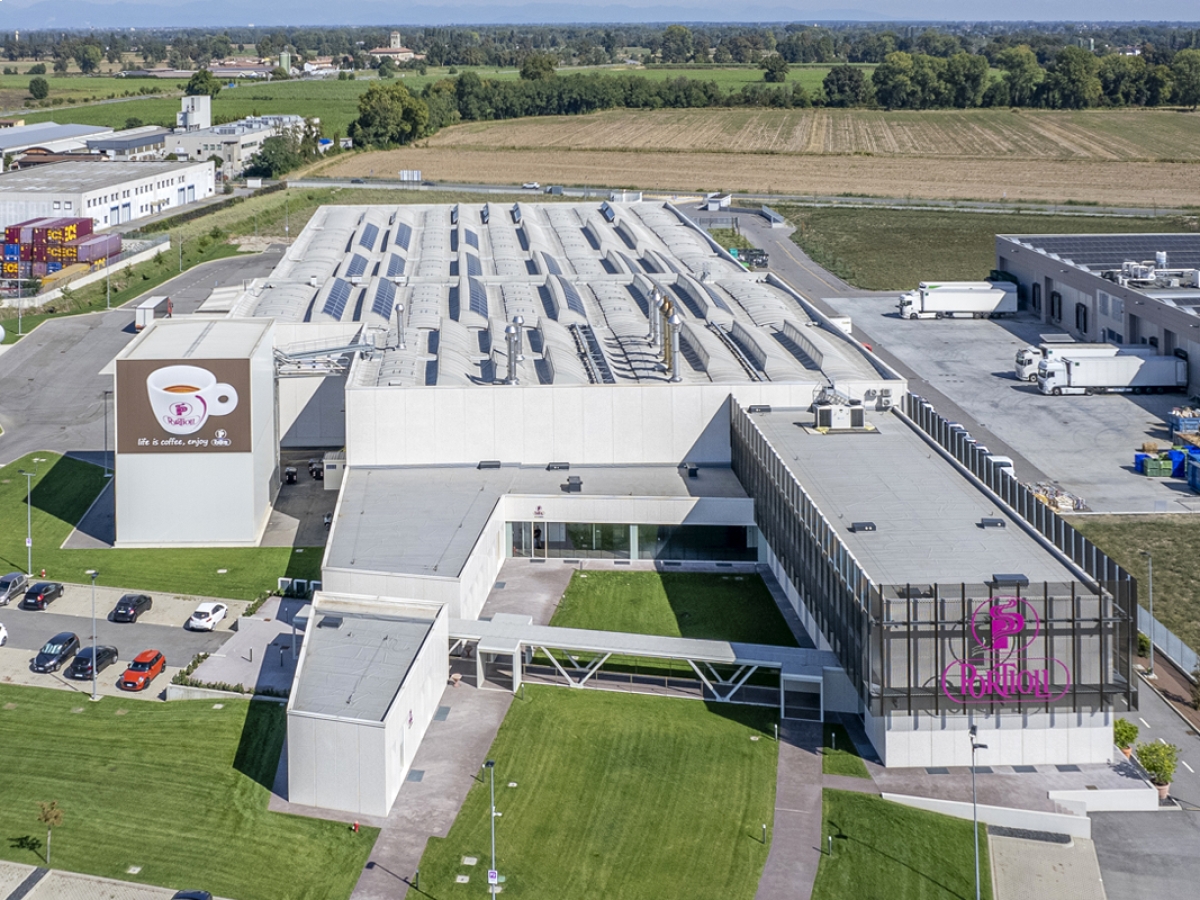
Sustainability in the coffee supply chain - Portioli commitment
Torrefazione Portioli puts a focus on the environment and has implemented several initiatives to reduce its environmental impact. Let us see.
Read more
-
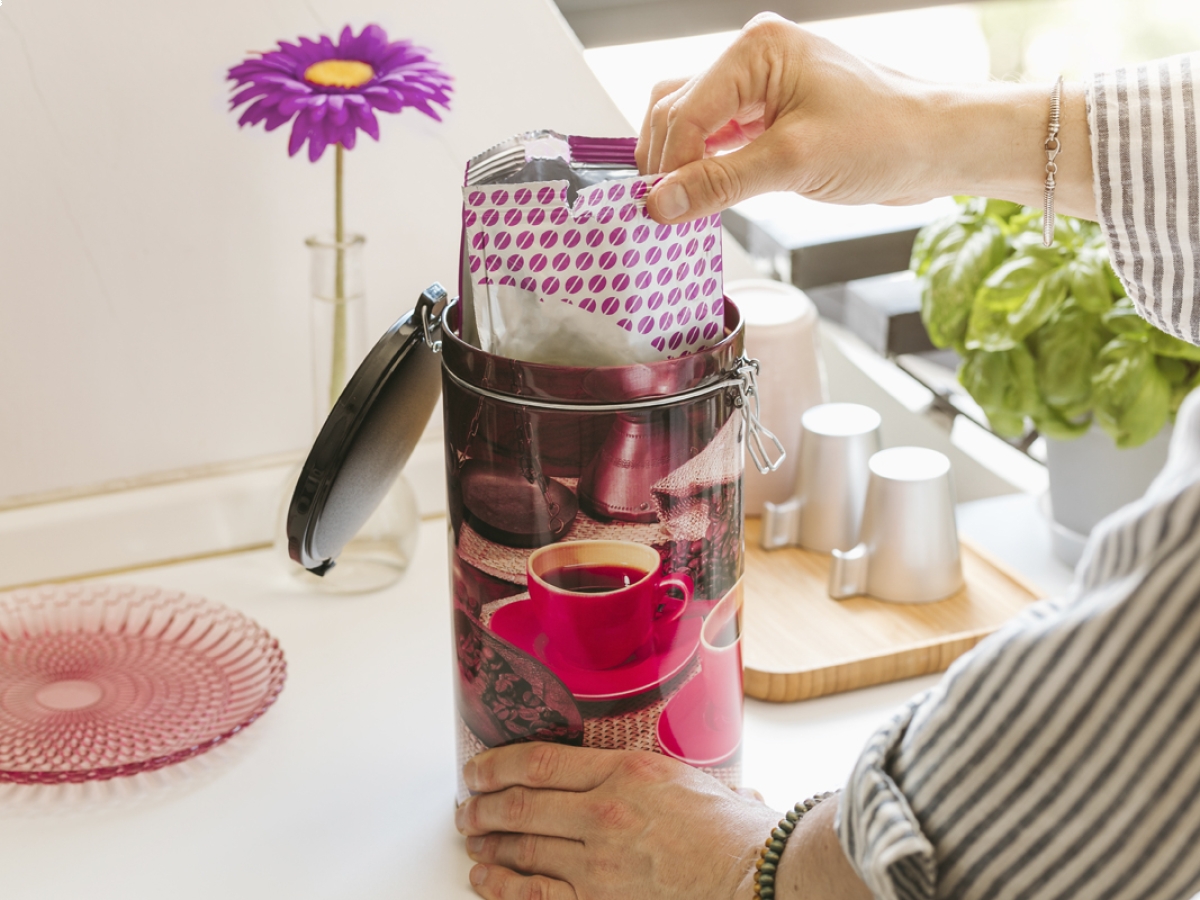
How to store coffee to maintain its freshness and aromas
We will look at how to store coffee to maintain its freshness and aromas, especially if we use ground coffee. Learn here more!
Read more
-
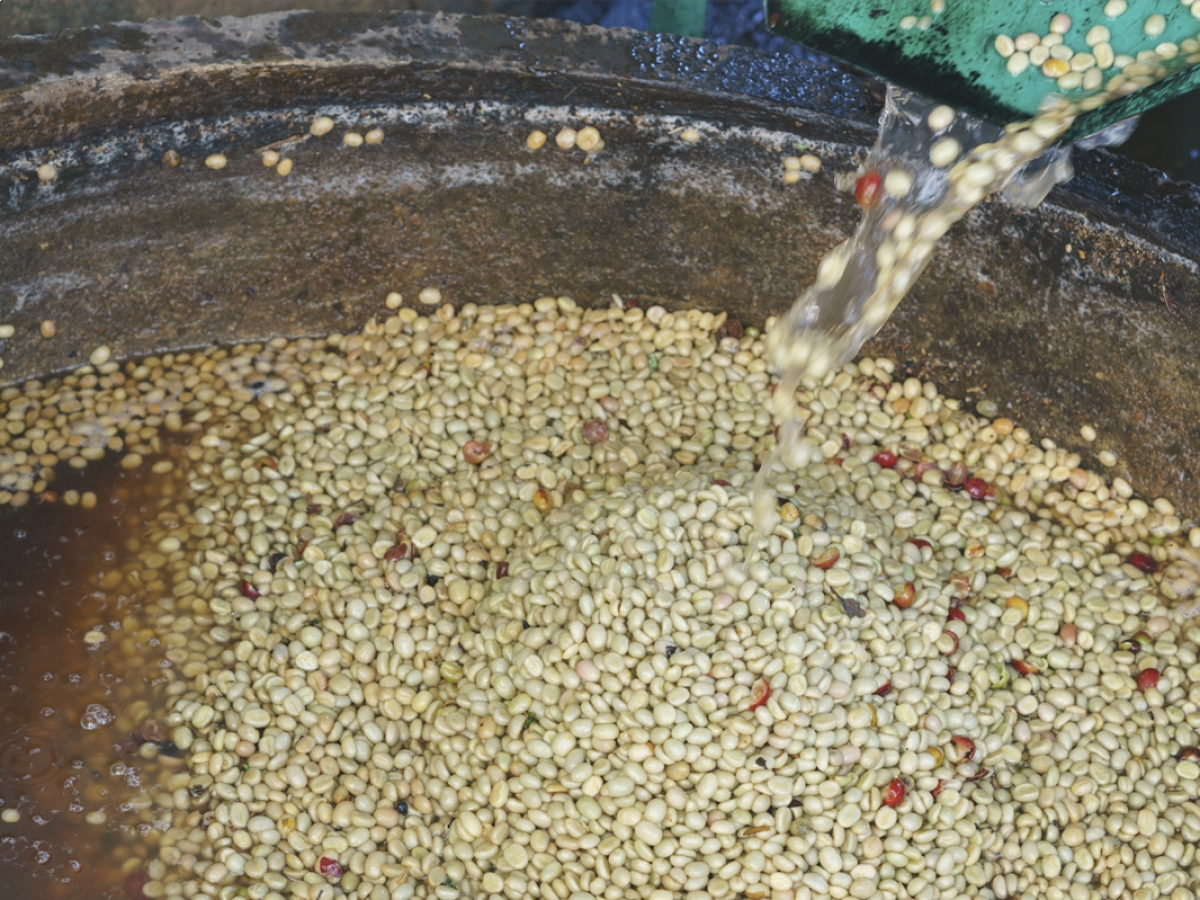
Main coffee processing methods
Working coffee is a true art that requires knowledge and passion: ingredients that Portioli makes available to its customers.
Read more
-
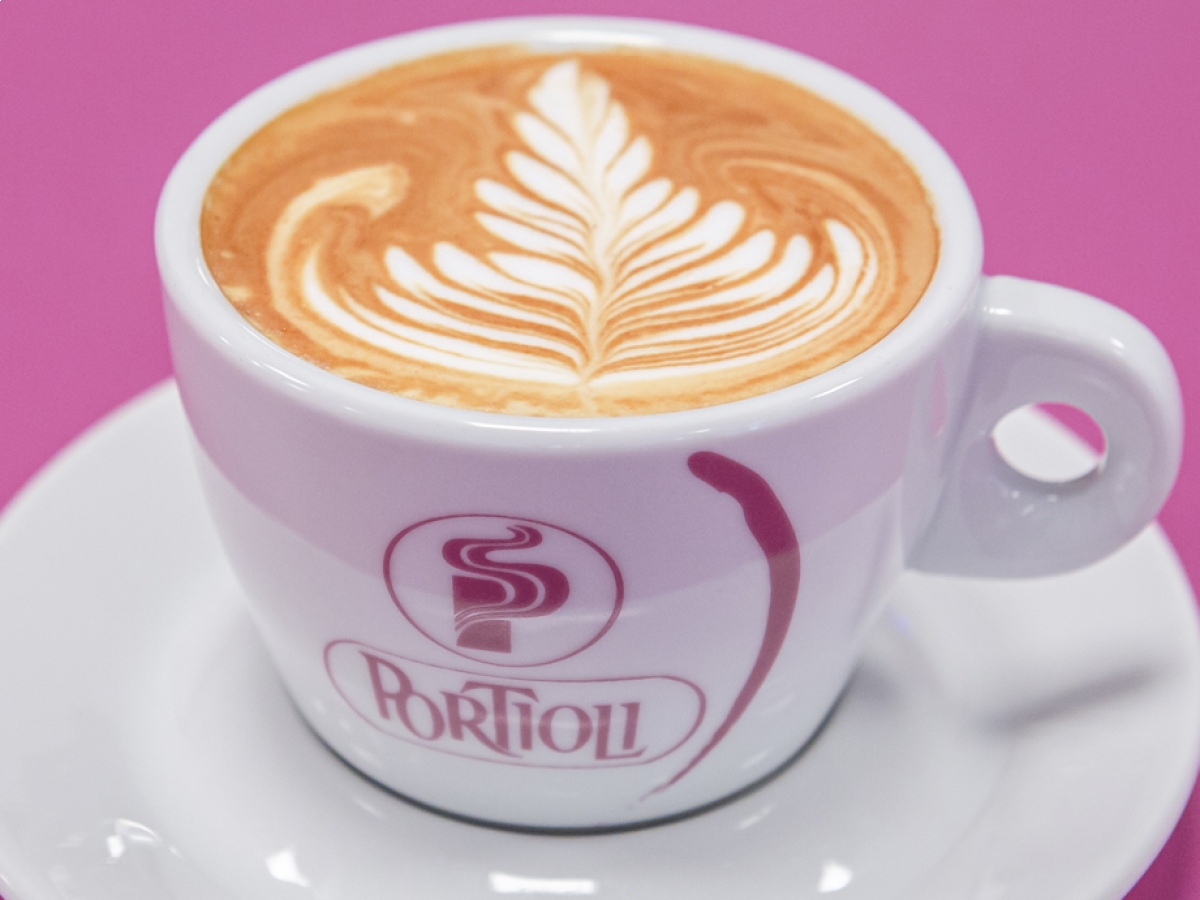
5 Ls of coffee preparation
The perfect cappuccino is the one the barista prepares from the best Portioli coffee blends and following the 5 L's rule of the Italian drink.
Read more
-
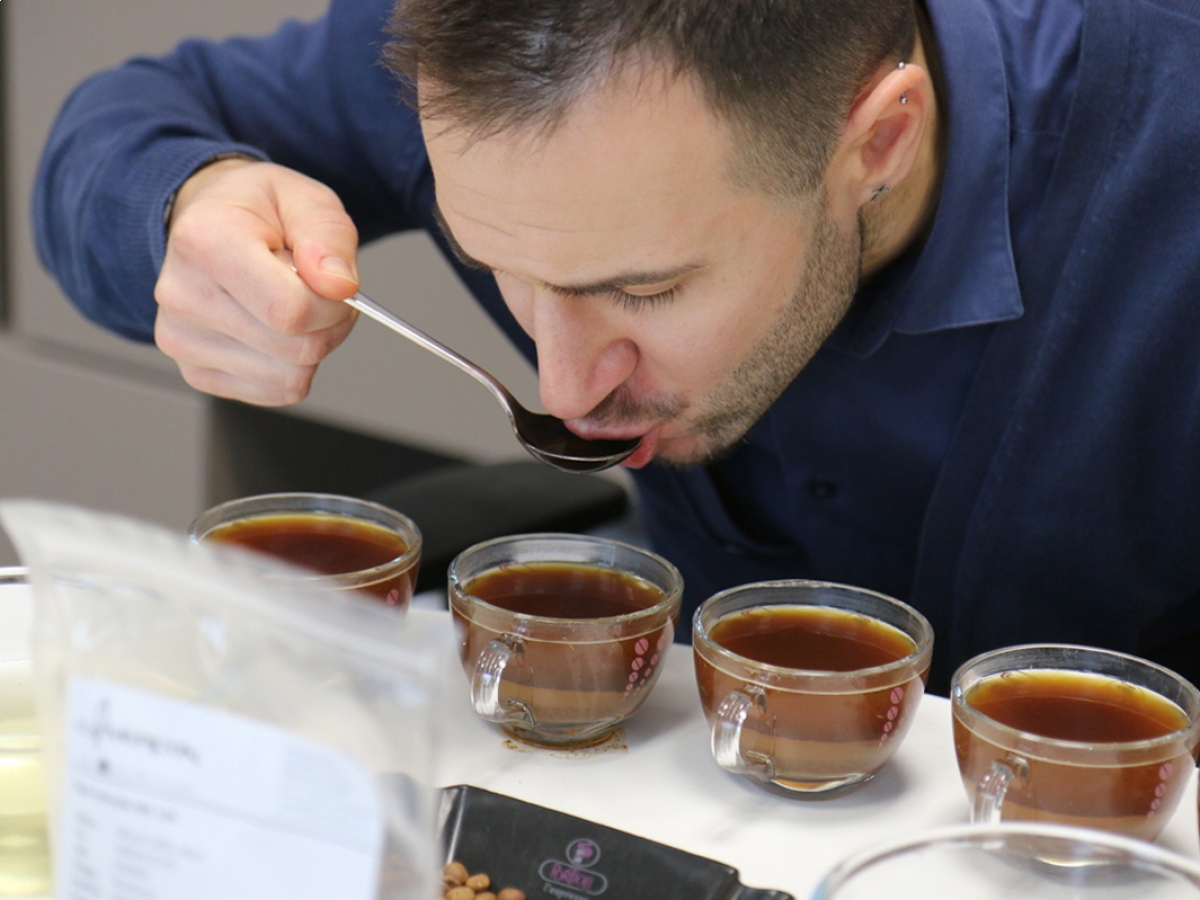
Coffee cupping - Definition
The coffee cupping technique is used to evaluate different coffees through an official card that defines the standards of the best coffee.
Read more
-

Another way to drink coffee – Aperitif time
The presence of espresso coffee has rightfully entered the world of mixology and coffee is now the basic ingredient in aperitifs and drinks.
Read more
-
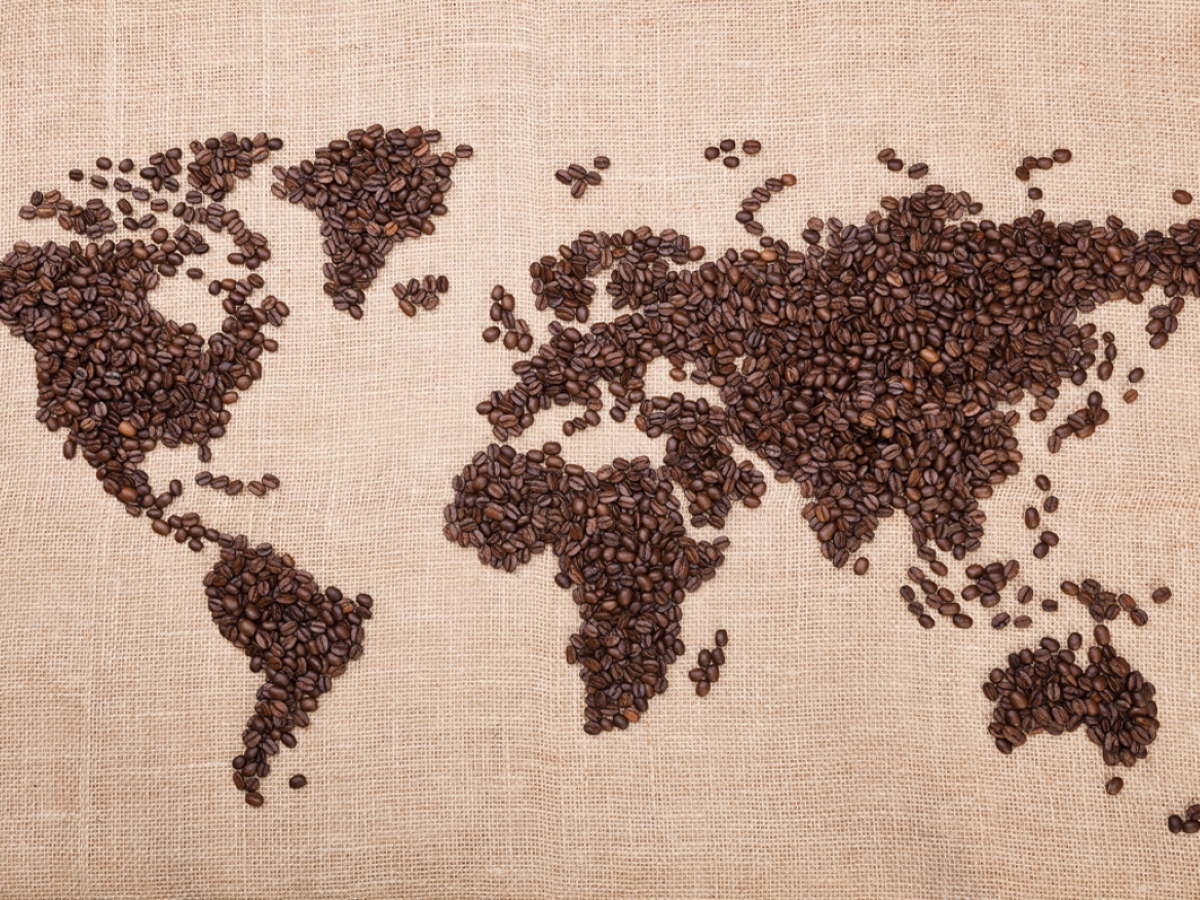
Curiosity - Where is the most coffee consumed?
Every day, 1.6 billion cups of coffee are consumed worldwide, but only few people know where the most coffee is consumed. Find out here more with Portioli!
Read more
-
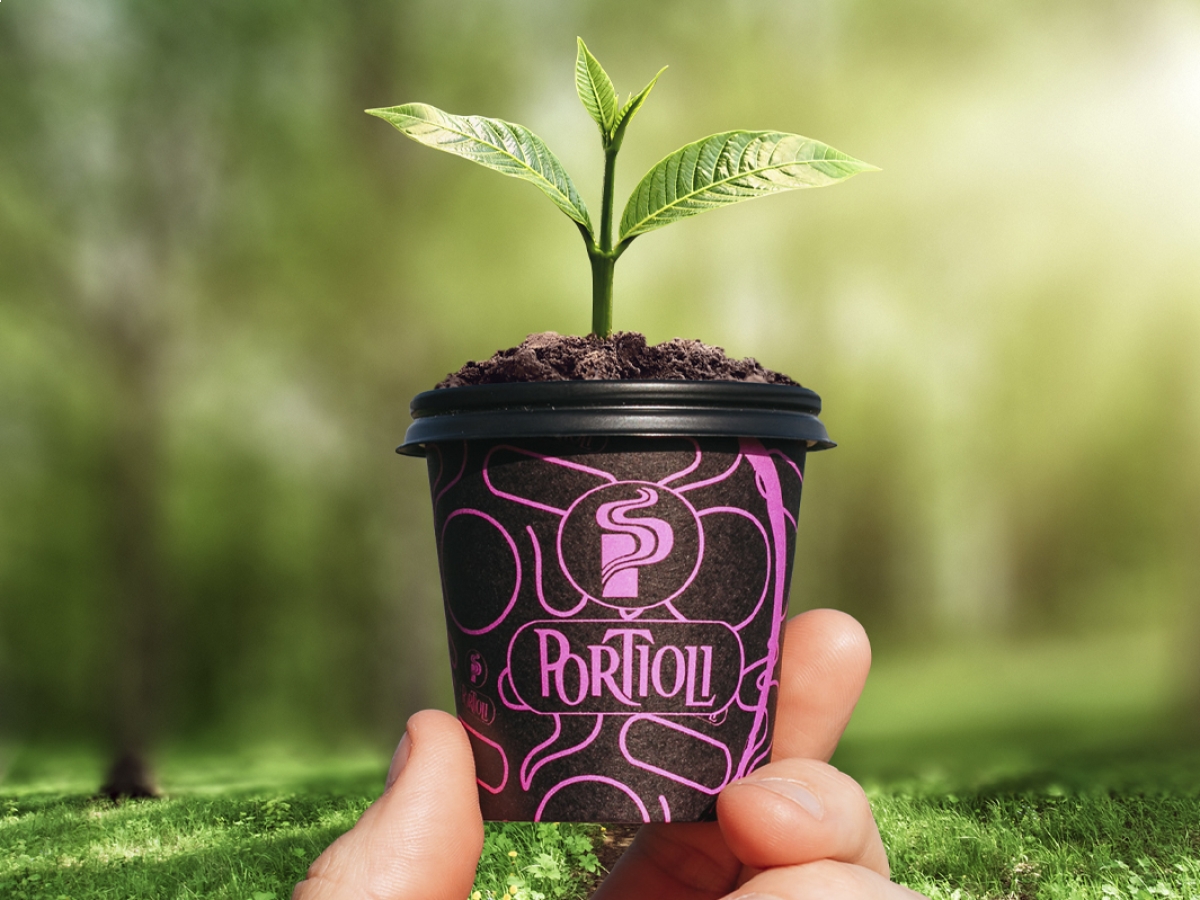
Sustainability in the world of coffee
Today we are hearing more and more about sustainability, a buzzword for economic, environmental and social sustainability along the coffee supply chain.
Read more
-
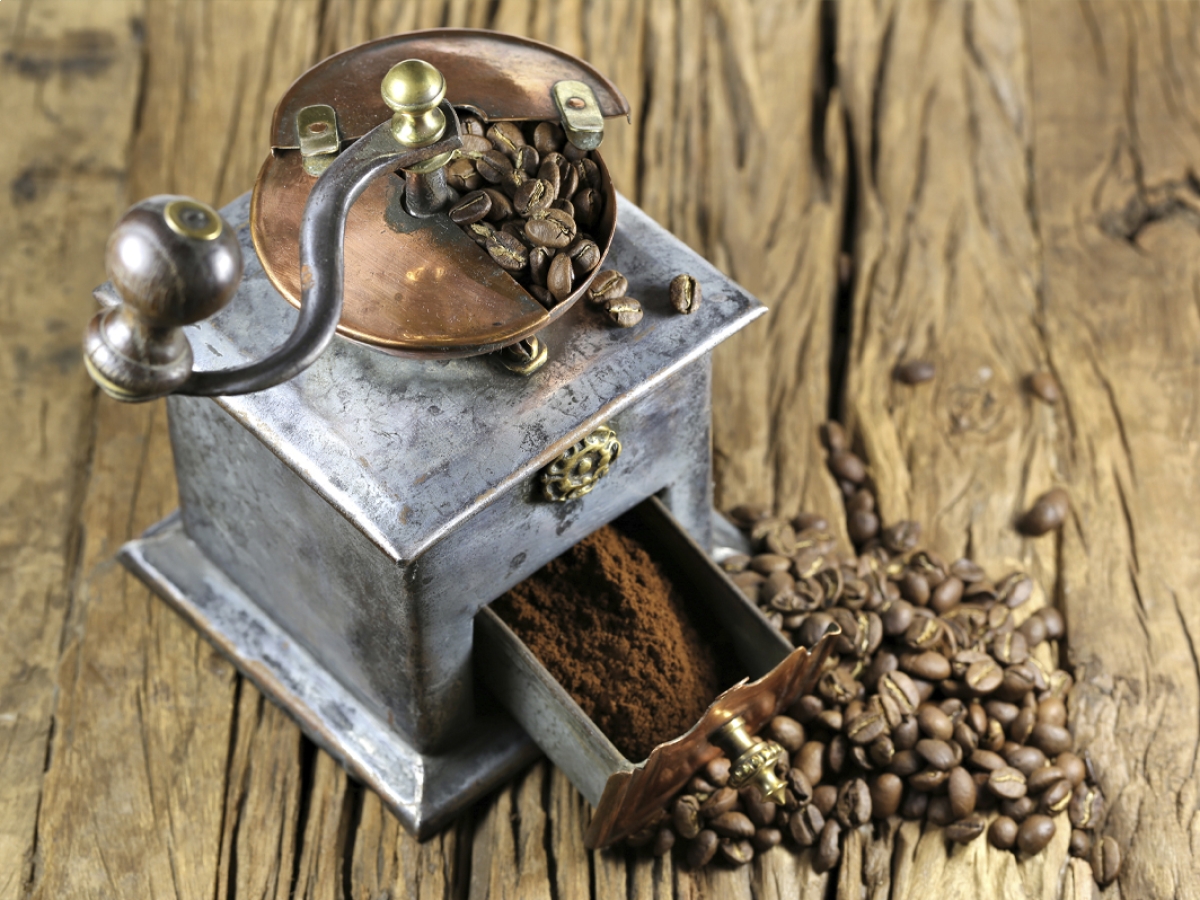
Machines, grinders, roasters - How are they made?
Coffee machines have always reflected the lifestyle of Italians and is often an elegant and artistic object. Discover here more!
Read more
-

Winning customers at the bar
Always finding new customers for your bar is not easy. The good bartender knows what people want and adapts the service. Here are some tips.
Read more
-
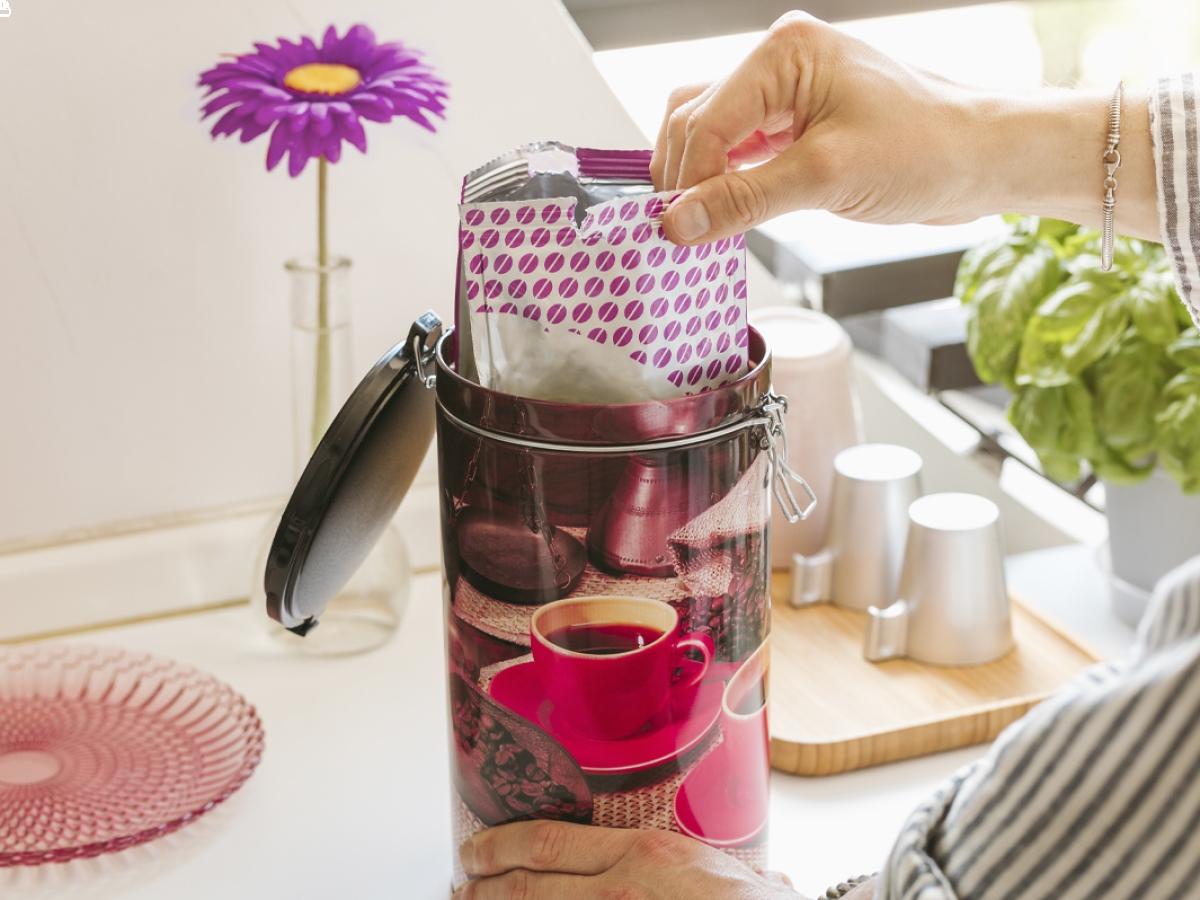
Coffee shelf-life - How to store it properly
The best coffee is one that retains its aroma and intensity over time and is one of the most popular beverages, so how should it be stored?
Read more
-

Gen Z - Young people and bars
What is Gen Z relationship with bars and coffee? Portioli decided to find out in a post dedicated to baristas.
Read more
-
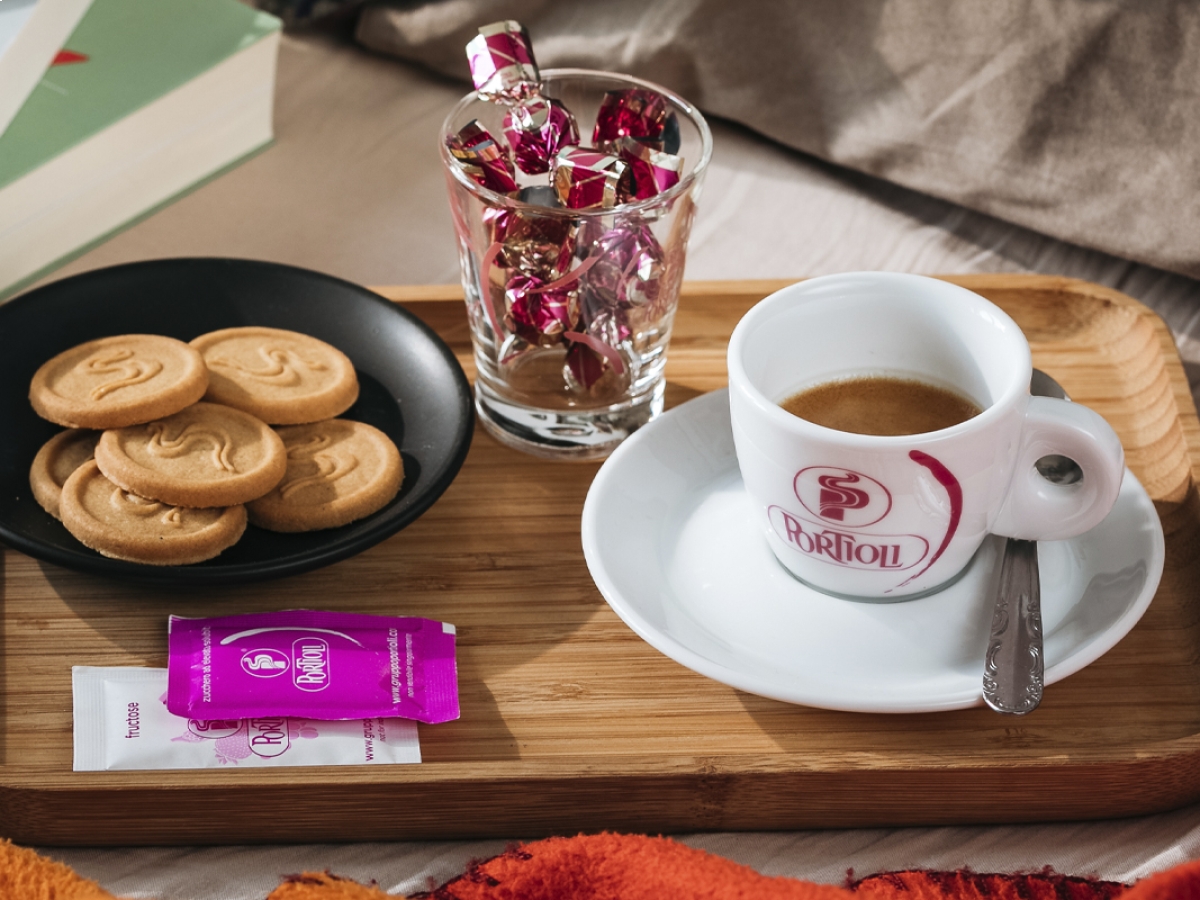
Coffee biscuits - Which ones to choose
Together with coffee, there are two types of sweetness: chocolate candies and biscuits. Use our Portioli advice to make your choice.
Read more
-
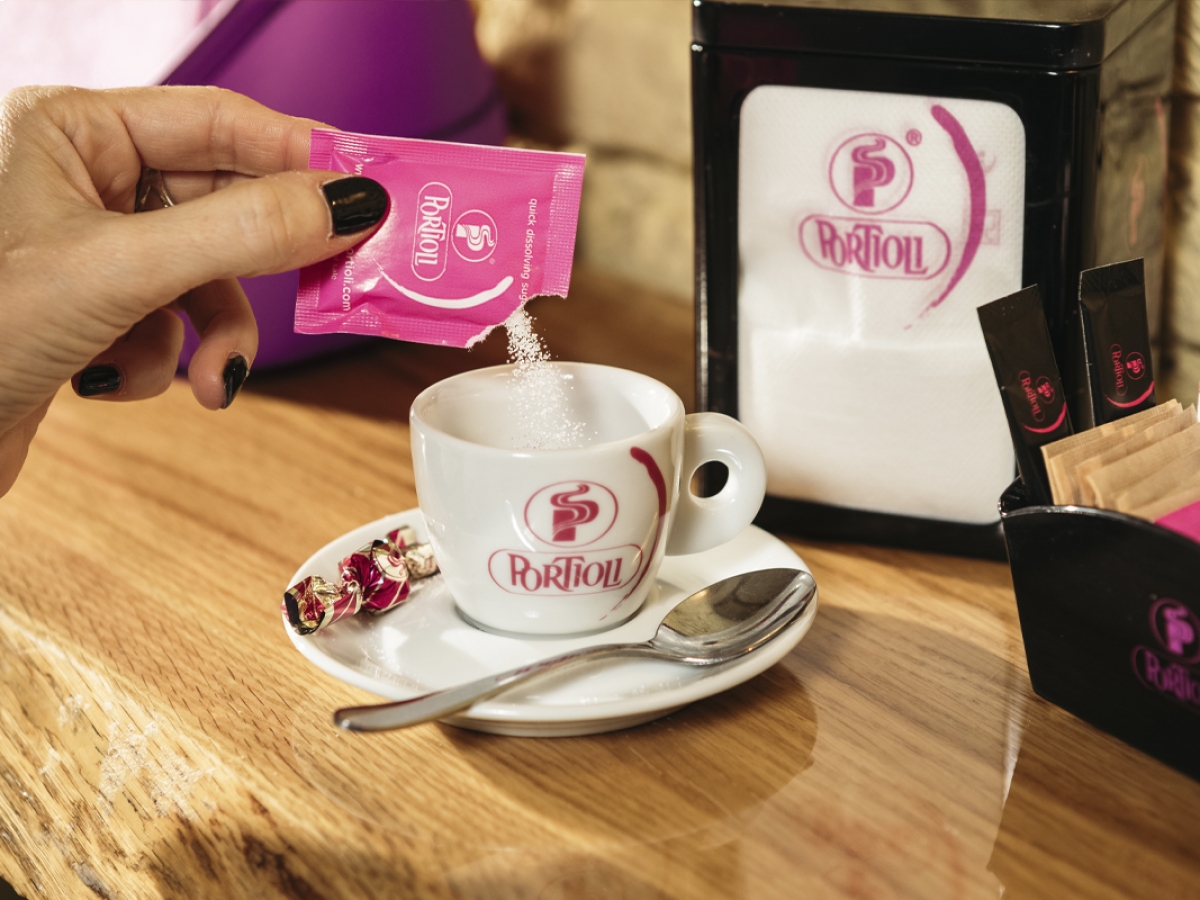
Coffee sweeteners – Which one to choose?
To sweeten coffee we all use white sugar, but few of us know that there are good alternatives for a good coffee. Find out here what they are.
Read more
-
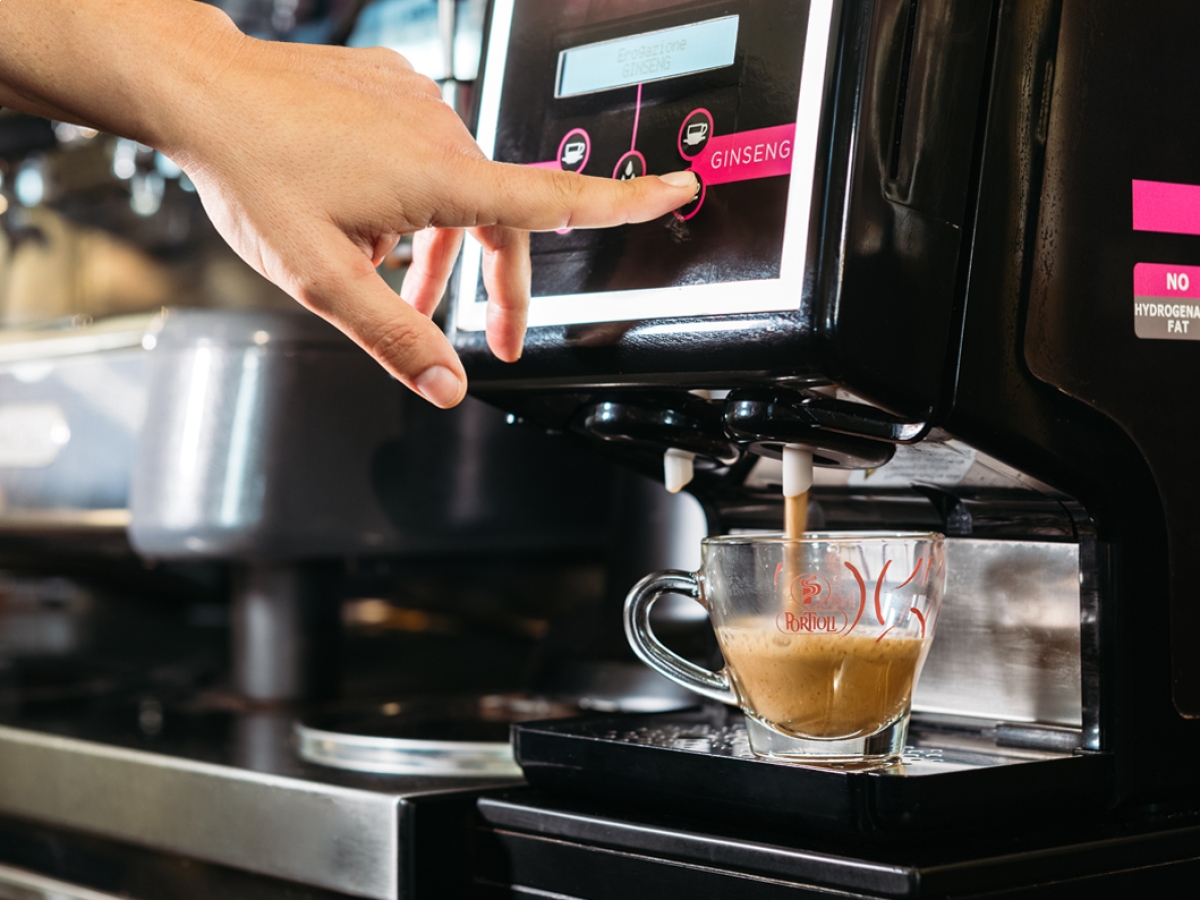
Ginseng coffee - Properties
Many people have at least once in their life tried or heard about ginseng coffee, a drink that Portioli also offers to customers.
Read more
-
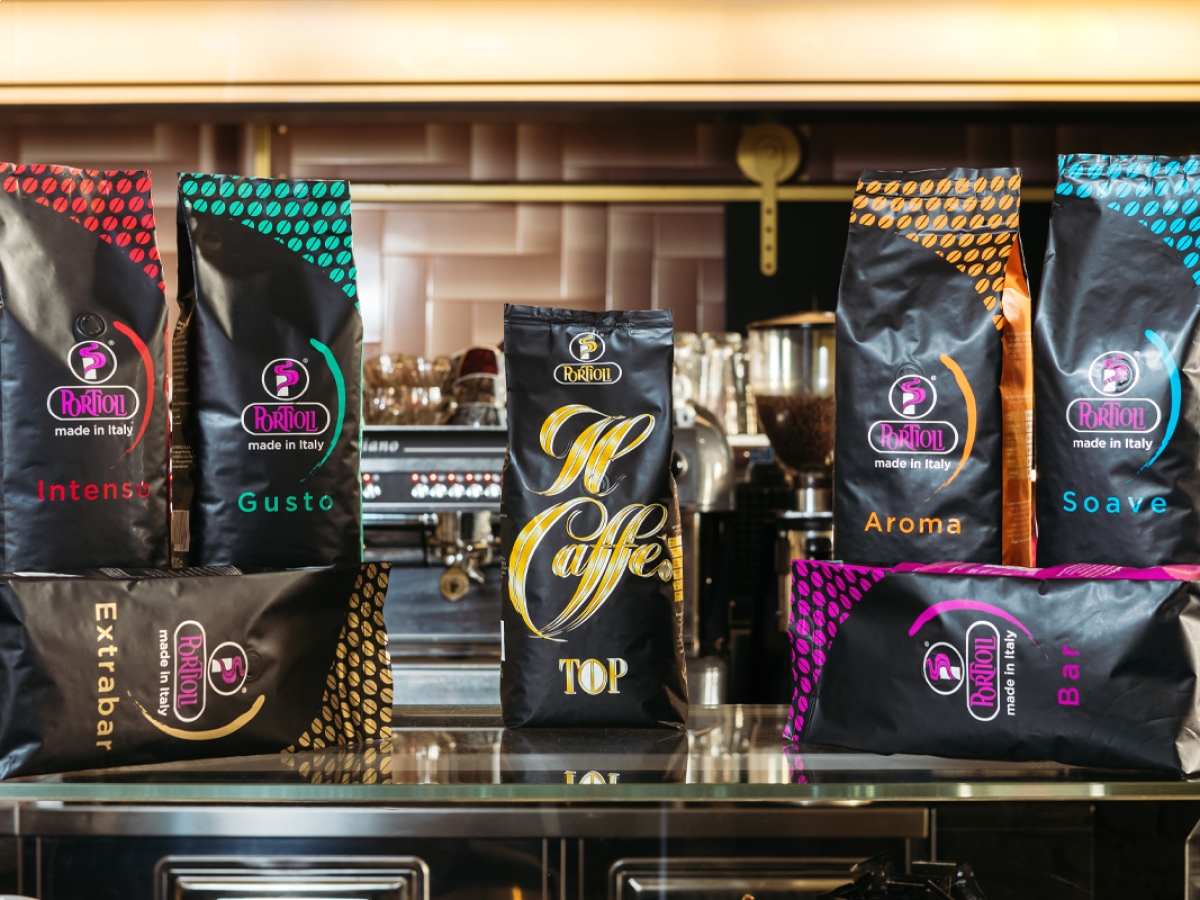
Italians at the bar – Beyond the cup
Coffee has always been a symbol of pleasure and this fact emerges from the research Italians and Coffee conducted by AstraRicerche.
Read more
-
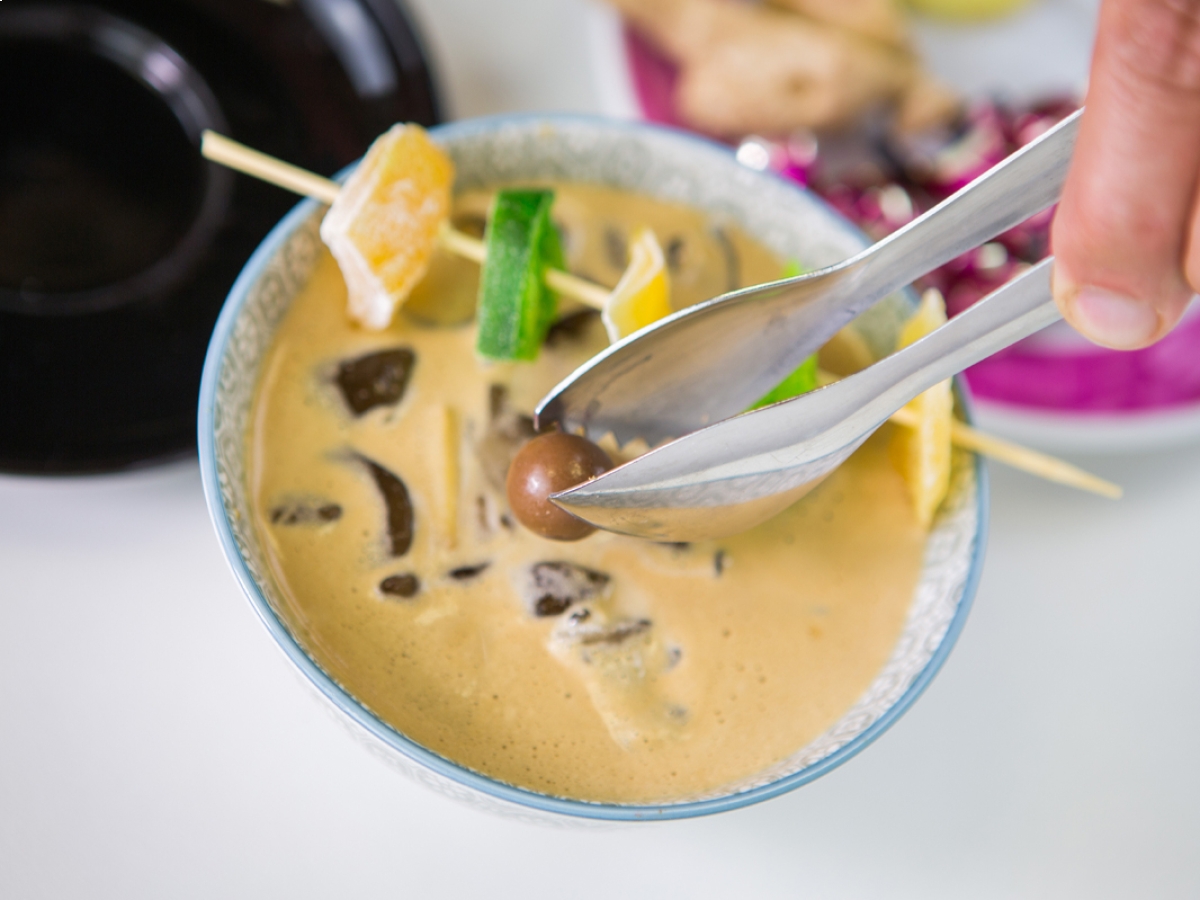
Coffee Mixology - Many tasty ideas
Coffee mixology requires knowledge of the ingredients that make up high quality cocktails, including coffee. Discover here more!
Read more
-
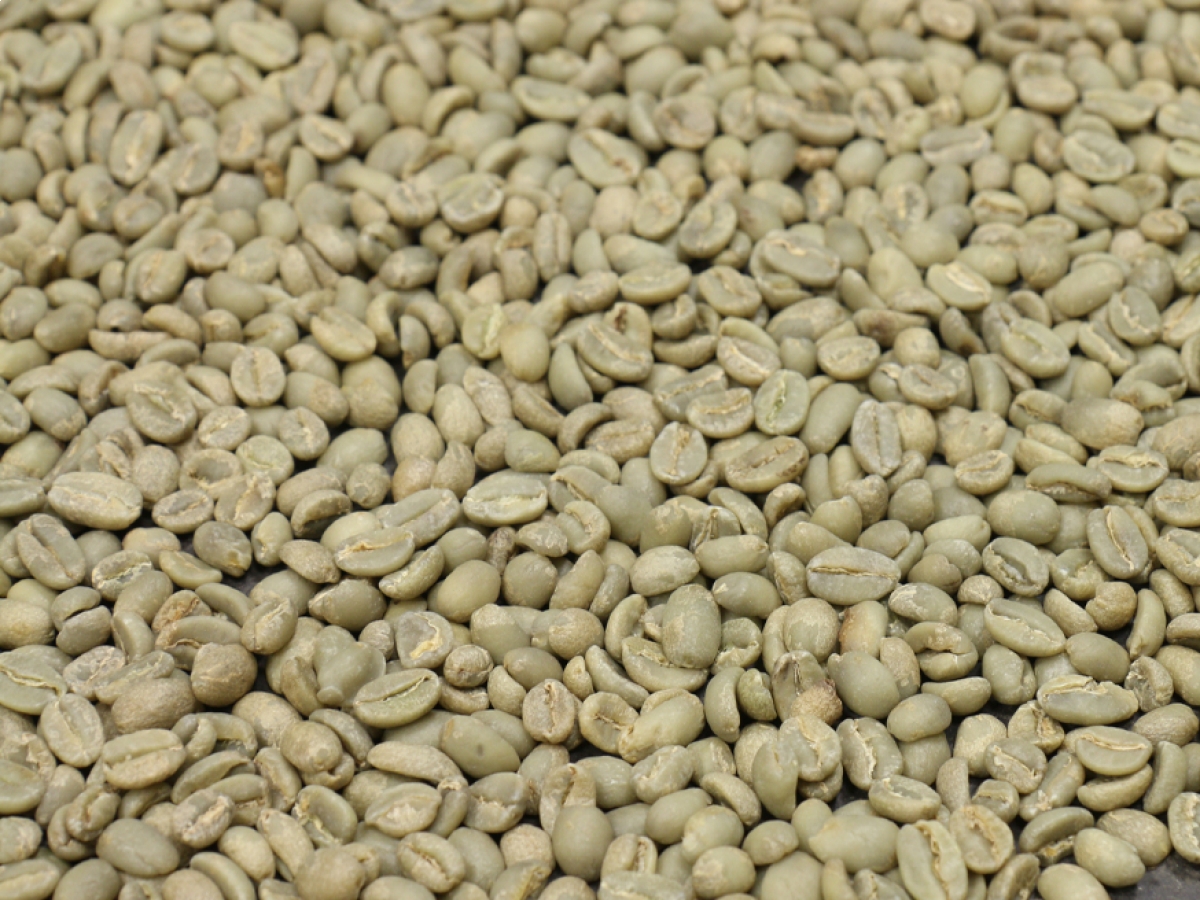
Raw coffee - The importance of knowing the raw material
Knowing raw coffee is essential to establish the quality of the raw material and to obtain the perfect cup of espresso.
Read more
-
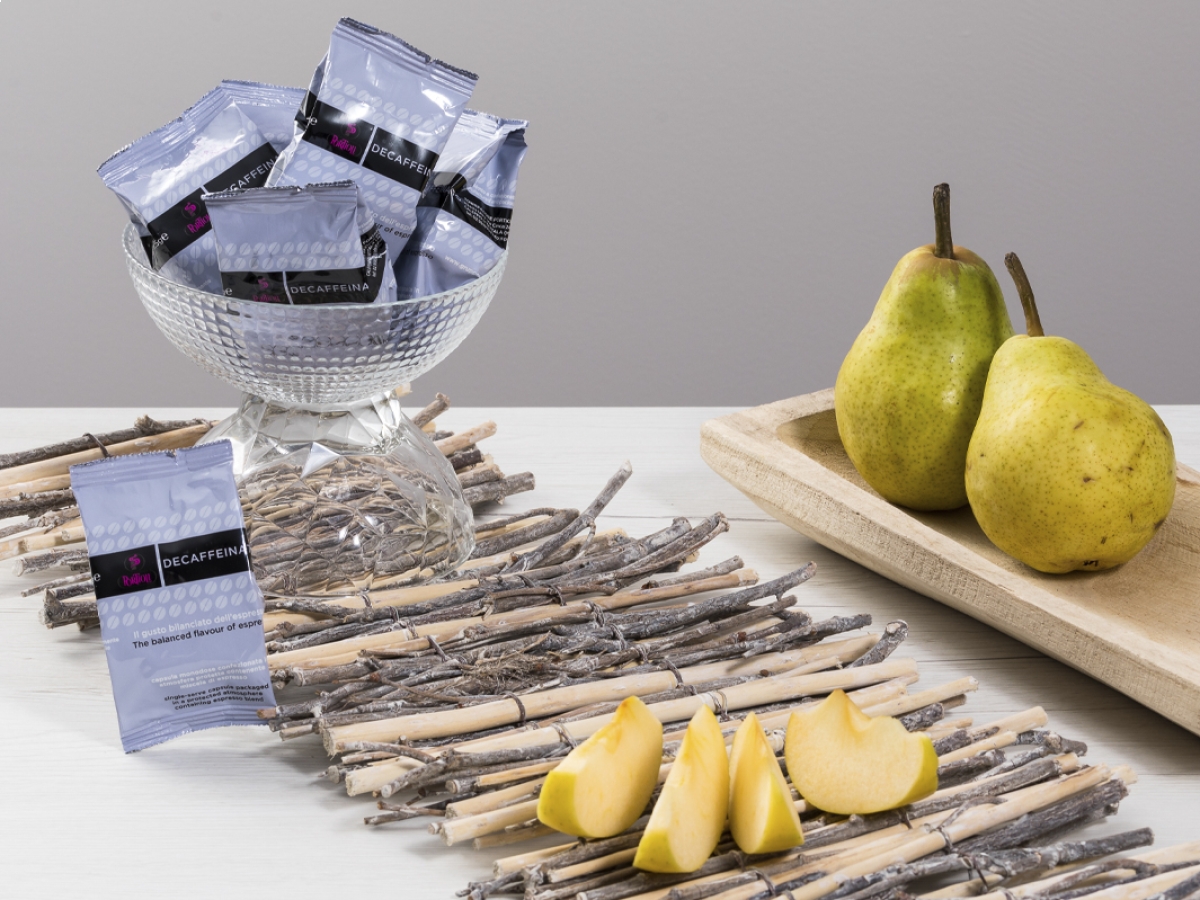
Decaffeinated coffee capsules - The refined taste of the blend
Explore the world of Portioli decaffeinated coffee capsules: a rich, full espresso with the advantage of a lower caffeine content.
Read more
-
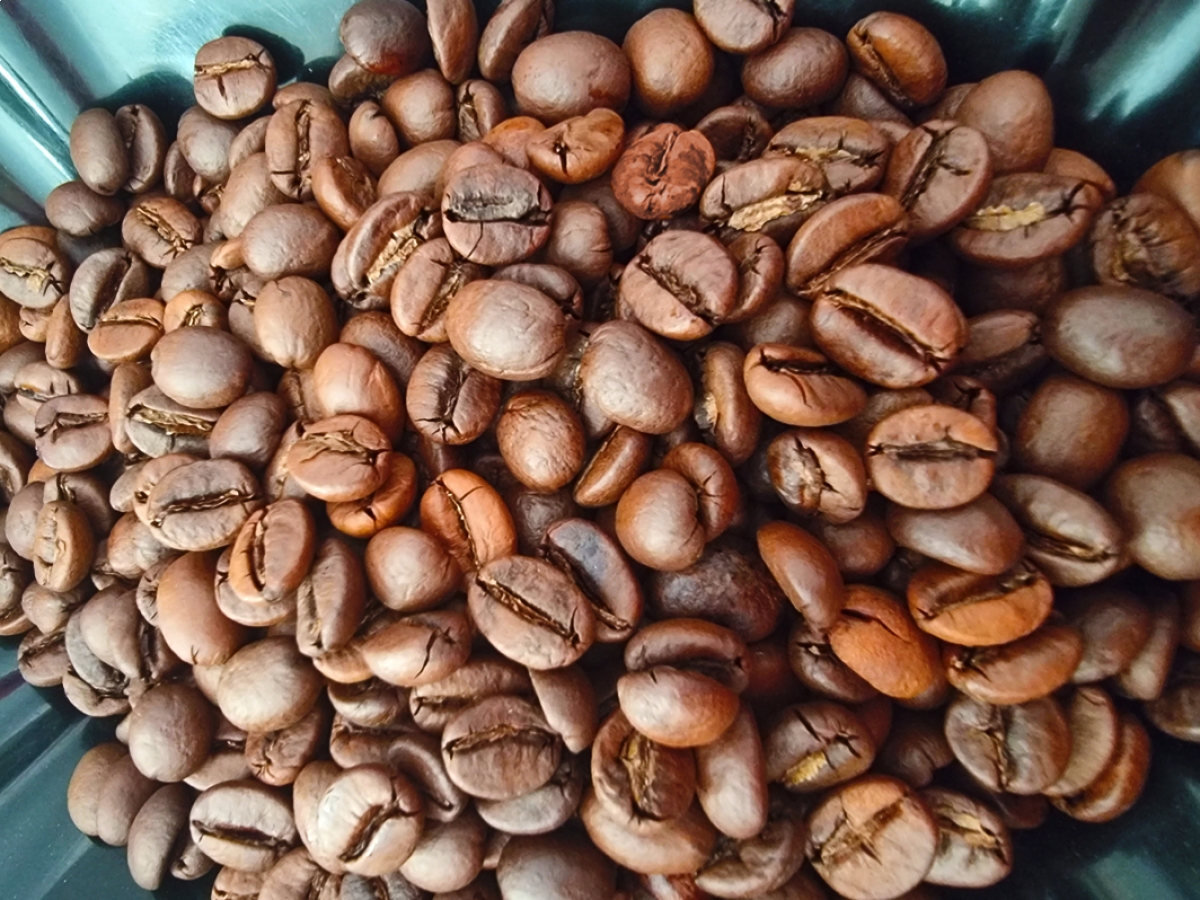
Robusta coffee - All the properties of this blend
We discover the characteristics of Coffea Canephora, the scientific term for Coffea Robusta, and the blends offered by Portioli to baristas.
Read more
-
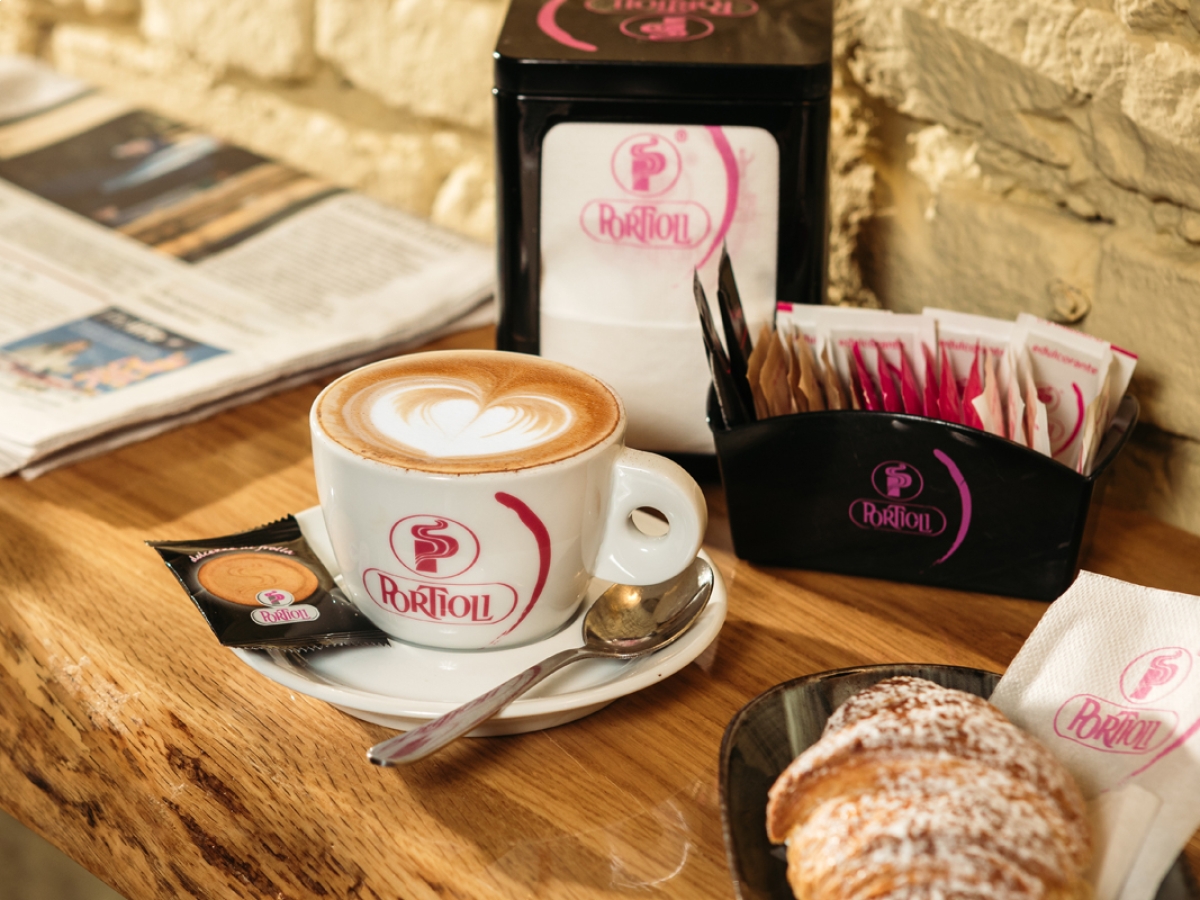
Coffee foam - Secrets
One of the pleasures of coffee at the bar is the foam or cream of the Espresso or Cappuccino, in which all the aromas are concentrated.
Read more
-

How to pamper your customers with LATTE ART
Latte Art is a special technique of decorating milk and coffee drinks, from cappuccinos to lattes. Here is what you need to get started!
Read more
-
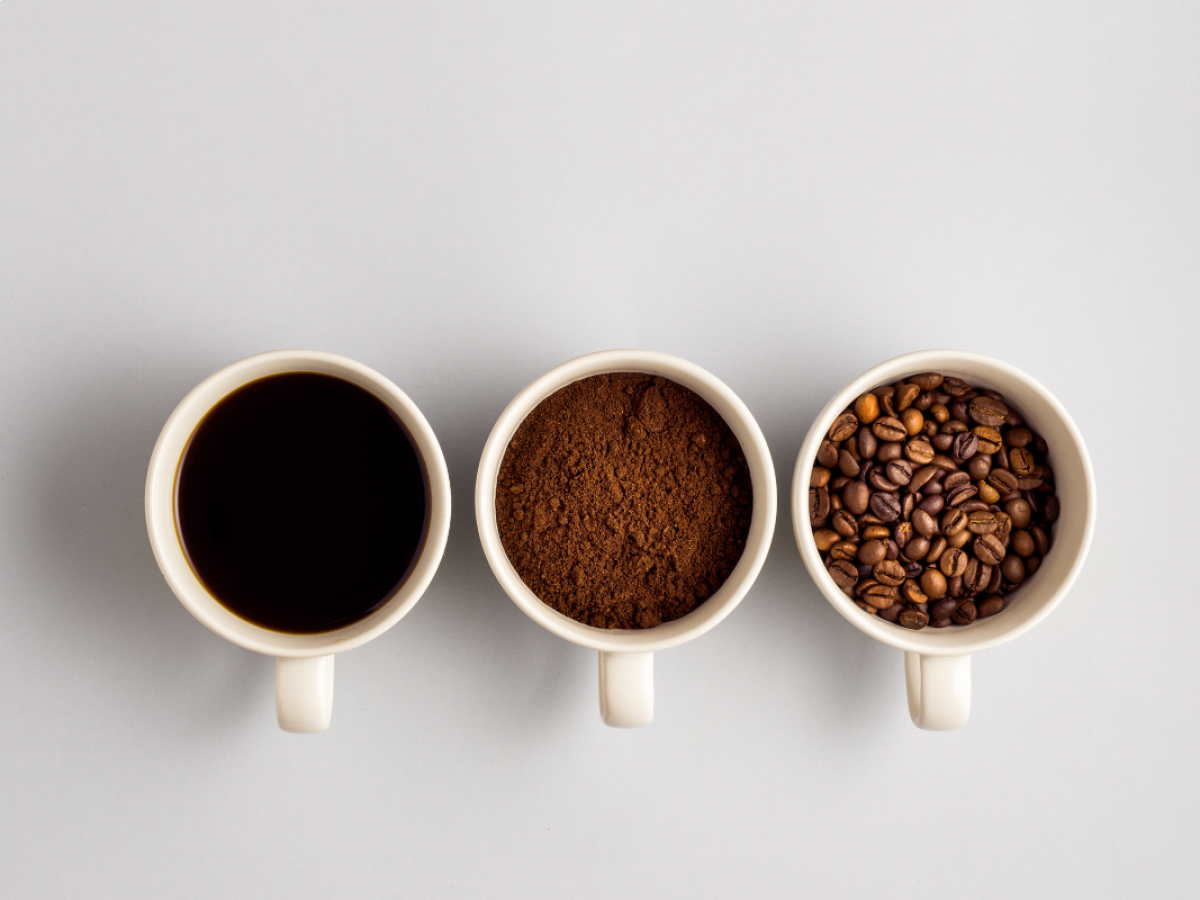
Perfect coffee: how to get it with the 5 M's rule
Espresso brewing has always been the best way to extract flavour and aroma from the coffee bean, but how do you make the perfect coffee?
Read more
-
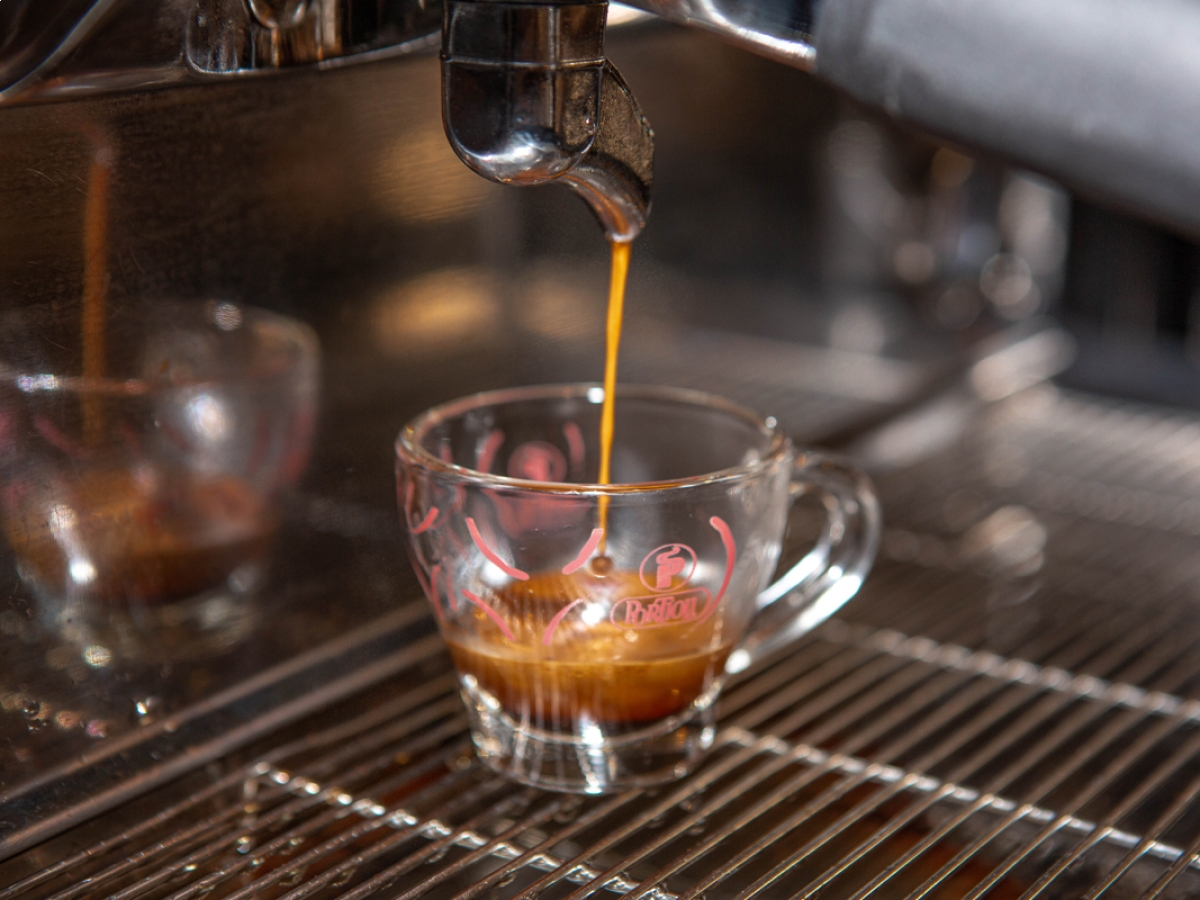
Coffee at the bar - Differences between ristretto, regular and lungo
Italian espresso, the one that bartenders and restaurateurs offer customers is never just one, and among the types are lungo and ristretto.
Read more
Portioli Express
Home and office shopping
Experience authentic Italian espresso right at home with our premium blends in a variety of formats.
Go to the shop









